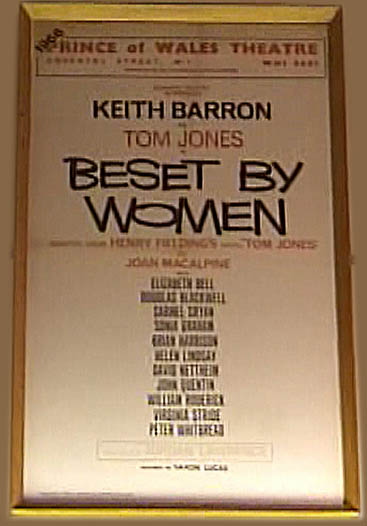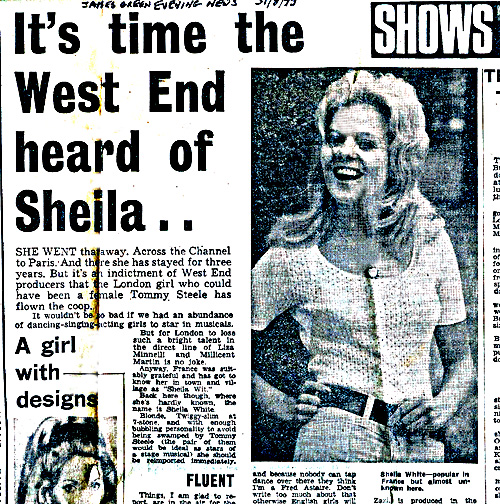From 1963 whilst Assistant to Bernard Delfont (who presented The Royal Variety Performance from 1958 to 1978)
General Manager and subsequently Director of Bernard Delfont Limited, the Company
managed
from time to time: The Shaftesbury, The Royalty, The Saville, The Palace, The Coventry Theatre, The New London,
The Comedy, The Prince of Wales, The Casino (later The Prince Edward) theatres:
ran the Talk of the Town and presented the following productions:
|
|
I started to work with Billy Marsh on 21st January 1963. Sitting in the same office as him was an education in the world of light entertainment. There he was, seated behind his enormous desk, a very slight stooping figure, very quiet, a cigarette permanently drooping from his lips, the ash cascading all over his jacket; (in fact, there was so much of it about, it felt as if I was back at the Wyndhams Theatre, raking out the boiler); very secretive, relatively unsocial and with a brilliant mind. Ruthless in business but away from it, was kind and gentle.
Among the many clients who Billy represented were Morecambe and Wise. Eric Morecambe said, ‘When I die, I would like to be cremated and have my ashes scattered on Billy Marsh’s jacket’. When Billy died, his request that he be cremated, and his ashes interred at the London Palladium was carried out. They were bricked up in a wall behind a ‘No Smoking’ sign. Later on, Paul Daniels pointed out to me that MR ASH is an anagram of MARSH.
Billy’s office overlooked the Haymarket; the furniture was minimal; a settee, some chairs and his very large desk. I sat opposite him at the desk with one phone at my disposal. He had three, plus an intercom to the rest of the offices which housed Keith Devon, a director of the agency, and Glynn Jones, an ex-road manager, who kept an eye on the artists’ requirements at the Talk of the Town, and was general gofer for the office, Keith Devon and several of the Delfont shows.
Glynn was a character, who had worked with some of the great Hollywood names as a road manager. His office was an armchair in Keith’s office. Since he wasn’t a great organizer, his filing was kept under the cushion
Among the other members of staff was Roy Mosley, an up-and-coming and very keen young agent who worked with Keith. Jack Ingham, who was previously the theatre critic on the London Evening Star, was in charge of publicity. There were miscellaneous secretaries, accountants and Douglas Harrison, who was a director of the company was in charge of accounts. Dougie was very astute and known throughout the business as a late payer. He considered he had failed in his duty to Bernie if he paid any accounts on time. Robert Nesbitt, the creative genius of the Talk of the Town, along with his very efficient and pleasant secretary, Rosalyn Wilder were based in a different building in Cranbourne Street.
The day always commenced with me under the eagle eye of Billy, opening the telegrams which came in code from all the Delfont shows in London and the provinces, deciphering them and entering them into a large red bound book known as ‘the figures book’. The code was 'Cumberland' - 'C' standing for 1, 'U' standing for 2, and so on. I don't think it would have been too much of a test for the wartime code breakers at Bletchley Park.
One day we received a telegram from one of our venues, which read 'C minus 1'. This completely baffled me, so I phoned the theatre in question and found out we had to cancel the performance that night. I would read the results over the phone to Bernie, who was based with his secretary Lena Gaston at the Prince of Wales Theatre. Then came the ceremony of opening the post. Every piece of correspondence always came to Billy’s desk first. I would open it, date stamp it and pass it over to Billy, who read everything. We then sorted it into piles, and distributed it to the various departments.
Nothing but nothing passed through the office without Billy seeing it first. Bernie was ultra cautious, ever since one of his previous chief accountants prior to Dougie, had embezzled a large sum of money, and had also emptied Bernie’s personal safe deposit box to which he had the keys.
Part of my learning curve was to sit opposite Billy, and learn how he put the light entertainment shows together; how they were balanced and how running times were allocated. This was relatively easy to pick up since, given that you had a big star attraction, which we always had, due to Billy’s wheeling and Machiavellian dealing, and the fact that he and Keith Devon represented a large percentage of the most important light entertainment stars.
Applying the right mix of supporting artists, their time and place in the running order, was more or less routine. I also had to listen and observe how he dealt with his stars; Morecambe and Wise, Frankie Vaughan, Norman Wisdom etc., etc. This although interesting, was not crucial to me, since it was never my intention to become an agent, but at least, it did give me a chance to back up Billy, in the unlikely event he was away from the office.
I was also assisting and advising Bernie on certain elements of his musical and legitimate productions. At lunchtime, I used to meet up with my friend Peter Charlesworth, have a quick lunch at Gerry’s club and go round the corner to the Empire Snooker Hall to have the odd game.
Peter, with whom I was to have many adventures over the years, was already quite a character. He told me about one of his early escapades in the 40s. He managed by some nefarious means to get hold of a dozen eggs which were in extremely short supply. Thinking he could make a few pounds on the black market, he sold them to a chef at one of the London hotels and was suitably recompensed. A little later he managed to obtain some more eggs, so he returned to the chef to offer them to him who said: 'Oh - it's you is it? That last lot of eggs you sold me were all hard boiled. Can I have my money back please?" Peter beat a hasty retreat clutching his eggs like a broody mother hen.
We used to play two-handed poker and when we played at his flat, even if we finished at 7 o'clock in the morning as I was bidding him farewell, he would already have the vacuum cleaner out and be hoovering the entire flat.
He could sometimes be a slow payer - in fact, he was so slow that when we played at his flat I used to say: 'Do you mind if I take away some of your antique guns as security until your cheque has cleared?'
Later on I insisted we both played for cash and in the 60s we used to meet at my flat, both having drawn out £5,000 in cash, change it into chips, putting the cash on a high shelf and then when one ran out of chips - the game was over.
I always used to cook him a meal prior to the game with the finest filet steaks, vintage champagne and Napoleon brandy - trying to ensure that he was pissed. However, I drank just as much as he did - so I guess we were both pissed. One night, having won all the money I said: 'the only way you can get out of trouble is if we go to a casino called The Pair of Shoes and play blackjack.' This we proceeded to do. He was so drunk - he could hardly sit on the stool at the blackjack table. The rest of the evening passed in a haze.
I think I left before he did but he told me when he woke up the next morning with the most terrible headache, he blearily opened his eyes and found his entire bedroom festooned in five pound notes. Apparently he had a tremendous win but he was so drunk - he didn't realise it.
He has never married, but he has always been keen on the fair sex. The younger - the better. In the 50s he was going out with eighteen year old girls. In the 60s and 70s he was going out with girls young enough to be his daughter. In the 80s and 90s - his granddaughter and as I write this - young enough to be his great-granddaughter.
His gambling has also increased in direct ratio to the age difference between him and his girlfriends. He has become a legend at the Victoria Casino where he he has been known to frequently to wager £25,000 on the turn of a card. Although this sounds a lot, he doesn't throw his money about. In fact, when he gives a £1 tip to a waiter, it is as if he were bestowing a benediction.
Good luck to you Peter. You are one of the great characters it has been my pleasure to know over so many years.
The Empire which had about ten snooker tables was owned by one of the Ganjou brothers of the famous adagio act, ‘The Ganjou Brothers and Juanita’. It was always jammed full of variety agents and acts - in fact more business was conducted there than in the offices.
Years before, Lew, Leslie and Bernie all used to spend a great deal of time there, but now they had grown too grand. When Bernie was struggling, he ran up a bill of several pounds for snooker table time (they used to give credit). When George, the manager, pressed him for the money, Bernie couldn’t pay, but he had a solution. Among other things, he was running the entertainment at the Locarno Ballroom in Streatham; he said to George, ‘Come next Wednesday night, make sure you’re dancing when we have the Spot Waltz prize, and I will see that you win it.’ He did.
Early on while I was with Billy in the summer of ‘63, Arthur Haynes, who was starring in ‘Swing Along’ at the London Palladium, was suddenly taken very ill, and Bernie asked Billy if he could persuade Tony Hancock to take over.
Billy arranged for Tony to come up to the office. The three of us sat together, me merely as an observer, watching Billy using all his powers of persuasion, trying to get the extremely reluctant Tony to agree to take over. ‘There is one extremely important proviso’, Tony said, ‘and that is, that I do need for my self-confidence, an awful lot of rehearsal in a theatre – but I don’t want anybody to hear or see me rehearsing. I must have your guarantee on this’. Billy said, ‘Don’t worry, I’ll sort it out’, and Tony left.
Billy and I pondered this, and came up with the idea that each night after the show had finished at the Prince of Wales theatre, and everyone had left, we would leave the curtain up with some working lights on stage. We would lock Tony in, so that the only other person present in the theatre would be the fireman, who had strict instructions to hide himself. To our surprise, Tony happily agreed to this, and every night he was locked in the theatre and rehearsed to his heart’s content, until such time as he felt tired. In the early hours of the morning, he would then summon the fireman, who would unlock the stage door and let him out.
After a short time, Tony announced he was ready, and he happily took over at the Palladium. His act onstage fell short of the triumphs he achieved with his various TV shows.
It seemed to me that it was about this time that the slow disintegration of his career gathered pace. He had previously divested himself of the people who had been such a solid support in his rise to fame, Bill Kerr, Kenneth Williams, Hattie Jacques, Sid James and finally, his writers, Galton & Simpson and Beryl Vertue, his agent. He desperately wanted to be a success in films, but this was not fulfilled, and this, together with his dependence on alcohol, created a downward spiral in his self-confidence, unfortunately manifesting itself eventually in his suicide at the age of forty-four in Australia in 1968.
What a tragedy; one of the all time greats of television, dying so young. My own personal recollection of Tony was that he was extremely polite and pleasant, certainly as far as I was concerned.
TONY HANCOCK QUOTE: "It's red hot, mate. I hate to think of this sort of book getting in the wrong hands. As soon as I've finished this, I shall recommend they ban it."
I had known his brother Roger, (who subsequently became an extremely successful agent), from the early ‘50s, when we both used to spend a great deal of time at the Player’s theatre. On one occasion, we were offered the part of the pantomime horse at the Player’s Theatre club, but I declined, since Roger insisted on playing the front end. We were both almost the same age and there was a remarkable likeness between us – in fact on occasions, we were mistaken for twins, (perhaps either his or my father had a fast bike). Some years later, I had an extremely bizarre conversation with a young lady; it took me a few minutes to work out that she was one of Roger’s ex-girl friends from years before; she thought she was talking to him.
Whilst during the day I was sitting opposite Billy in his office,in the evenings, I was still working on ‘Come Blow Your Horn’ at the Prince of Wales theatre. This was not an onerous task, and I sometimes had a half an hour nap in my dressing room whilst the show was running. (Years later, Michael Crawford, whose dressing room was next door, accused me of always being asleep).
There was a good reason for needing these naps, because as soon as the curtain came down I would depart to Crockford's Casino, or Charles Palmer’s house to play poker until the early hours of the morning - sometimes until 6 a.m. I would then drive home and go to bed, even if it was only for an hour, prior to getting up to be in time for the office. This as you can imagine, resulted in me having rather red eyes, but enter Shirley Eaton, who gave me a tip: ‘use some eye drops called Couleur Bleu’. This did the trick - my eyes immediately cleared.
Through this lack of sleep, I felt as if I had become something of an expert on the subject of dreams. It seemed to me that dreams were a subconscious way of clearing out the filing cabinet section of the mind - getting rid of all the unnecessary information that was clogging up the works. It didn’t matter how little sleep I had, the dreams seemed long and vivid. It was as if my mind knew it only had a short time to get rid of the extraneous information, and it went into overdrive. I was able to continue like this for some months; although my body was tired, my mind seemed to be refreshed.
‘Come Blow Your Horn’ finally closed in May of 1963, so I was able to play poker in the evenings and still get some sleep. I was also able to spend more time at the Talk of the Town in the evenings.
The format of the Talk of the Town was dining, dancing to a six piece band, a lavish, spectacular revue with a large orchestra, and a cast of about thirty-five, created and staged by Robert Nesbitt, running for about an hour; then more dancing, and finally, a big star, with a full orchestra for about an hour. The price of the evening’s entertainment plus food was only just over £2 to begin with - a great bargain - and we were always sold out.
Among some of the stars Billy had booked from 1960 up to 1963 whilst I was working with him were: Lena Horne, Max Bygraves, Sophie Tucker, Johnnie Ray, Francis Faye, Eartha Kitt, Frankie Vaughan, Shirley Bassey, Dolores Gray, Phil Ford, Mimi Hines and Jackie Mason - the latter was a then very promising up-and-coming young comic. Unfortunately, he was booked during the summer months when the room was full of Japanese tourists, and he sank without trace. Thereafter, the policy was to book singing acts only during the tourist season.
The most any of these artists earned was a basic £2,000 a week, with the chance to earn another £1,000 if we were full. The reason we were able to get them so cheaply was, because the Talk of the Town was the best and smartest venue in Europe; if anyone wanted the very finest showcase for their talent - this was it.
The Talk of the Town was the brainchild of Bernie and Robert Nesbitt. Robert was working in America, when Bernie asked him to fly over and meet him. Robert, who had been responsible for the overseeing of the development of one of the early Las Vegas venues, The Dunes, was extremely qualified to develop a high class theatre restaurant in London.
The plan was firstly to acquire the right theatre which could be converted. The Hippodrome theatre, which was located on the corner of Leicester Square and Charing Cross Road, was in a perfect situation and Bernie was able to acquire the lease from Prince Littler.
Then came the major problem - the money. The cost of the conversion and the production of the evening’s entertainment were going to be in the area of £400,000, (about £10 million at today’s prices). Bernie didn’t have it - in fact he didn’t have a tenth of it. Robert asked Bernie, ‘Where do we go from here?’ ‘Don’t worry’, Bernie replied. ‘I’m going to release a press story about this exciting idea of a theatre restaurant called The Talk of the Town, and I promise you, Charles Forte will be on the phone within twenty-four hours, asking if he can be involved’.
The press release was issued and received enormous coverage. Charles Forte was on the telephone to Bernie the next day, and suggested a meeting. At the end of the discussions, Charles had taken on the management of all the catering, put up all the £400,000, and Bernie was to receive a third of the profits. It was a very shrewd deal by two very clever men. Between them they created an enormous success, which ran for twenty-five years.
The show following ‘Come Blow Your Horn’ into the Prince of Wales was ‘On the Town’, starring among others, Elliot Gould, who asked Bernie if he would use his then relatively unknown wife, Barbra Streisand, in the next Royal Variety performance, which was due to take place later that year at the Prince of Wales theatre. Bernie promised faithfully that he would, but later on to his everlasting regret, changed his mind and used Susan Maughan instead. Not that Susan didn’t perform well - she was excellent. But Barbra Streisand !!!!!
The Royal Variety performance which took place on 4th November contained: Charlie Drake, Buddy Greco, Nadia Nerina, Steptoe and Son, Tommy Steele (who stopped the show, and forty-one years later at the Royal Variety Performance in 2004, at the age of sixty-eight, stopped the show again), Harry Secombe, Marlene Dietrich and the Beatles. When The Beatles came on to an ovation, John Lennon said, ‘Those in the dress circle applaud, those in the stalls, just rattle your jewelry’.
The Beatles were really beginning to take off that year, and the Delfont Agency could have gone with them. The previous year, Brian Epstein their manager, had a meeting with Keith Devon, and asked if he would like the sole agency of them, but would have to guarantee them £1,000 per week. Keith discussed it with Bernie, and they both agreed it was too much of a gamble. Oh well! You win some - you lose some.
Throughout the week of rehearsals for the Royal Variety show being there as a general dogs body, I watched enthralled as the master, Robert Nesbitt, put the whole thing together. He sat there on the centre aisle of the fifth row of the stalls, with a bottle of champagne and a glass on a small table at his elbow; immaculately dressed, and totally unflappable regardless of any problems. When it looked as if a major technical disaster was about to occur, Robert would just say a trifle tetchily, ‘I’m sure there’s a man somewhere who deals with this sort of thing’. And sure enough - there always was.
It was due to Robert’s genius at dealing with stars, that he was able to direct successfully over twenty Royal Variety Performances, with a minimum of major hiccups.
The final act to rehearse was Marlene Dietrich. Joe Davis could not make himself available on this occasion to do her lighting, so it was left to Robert Nesbitt, (known as the ‘Prince of Darkness’), who was just as good as Joe, to arrange it.
She appeared at 9 p.m; all the rest of the cast had gone home to get some well-deserved rest before the performance next day. The only people left in the theatre were Marlene and her pianist, the technical staff, Robert with his bottle of champagne at his elbow, and me sitting just behind him. The rehearsal dragged on and on; Marlene kept asking for the lighting and sound to be changed. Robert aware that the opening was not many hours away, was on the surface as unflappable as usual. ‘Yes, Miss Dietrich. Might I suggest - would you like to try it this way?’ Finally at midnight Robert said, ‘Do you think it would help things to go a little better if we had a glass of champagne. Richard, please pass a glass up to Miss Dietrich’. I duly obliged, and Marlene said, ‘Thank you. May I have one for my pianist?’ I took another glass down to the front of the stalls, and the pianist who had sat there without a peep for three hours, reached up and took it - it was Burt Bacharach. We finally made her happy at about 2.00 a.m. At the performance that evening she was sensational.
At the party after the show in the stalls bar, which was jammed end to end with celebrities, it seemed that nearly everyone, no matter who they were, just wanted the Beatles’ autographs. Nearly every time a photographer wanted to take a picture of The Beatles, Marlene introduced herself into the shot. The Beatles were very flattered by this attention from a superstar, but Miss Dietrich was extremely shrewd, and knew everything there was to know about publicity.
The following year, once I had learnt more about light entertainment, I was allowed by Bernie to play a small part in the selection process of the artistes for the Royal Variety Performance. This process first of all consisted of Billy Marsh, Keith Devon and me preparing a list of suggestions for Bernie. This list was added to by various agents putting forward their suggestions. Usually the most important of these were from American agents, since they would nearly always suggest headliners. There was furious lobbying from some of the agents in this country; ‘If you take (y), an up-and-comer, I’ll try and persuade (x) to star’. Not that they usually needed persuading, since it was the most prestigious light entertainment event in the calendar.
Once we had been through all the probables, it was then a case of evaluating a balanced running order; part of this took care of itself. There were always items with dancers and singers, usually to open the first and second half; then came the compere, then a specialty act, etc, etc, finishing up with the biggest star. Needless to say, there were occasions when star performers were peeved that they were not down to close the show when they thought they should be. Then finally, came the tricky part of allocating time.
Ideally, the entire show should take about two and three-quarter hours including interval, but most of the time this turned out not to be the case, as star acts overrun their time. On one occasion, the Queen was present when the show ran for nearly four hours. At the end of the show, Bernard Delfont took it upon himself to compliment the Queen on the beautiful dress she was wearing. ‘Thank you, Mr. Delfont’, she replied: ‘It’s the State Opening of Parliament tomorrow, and it’s so late, I probably won’t have time to change it’.
|
|
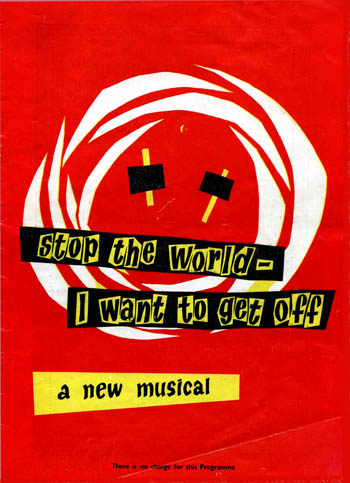 |
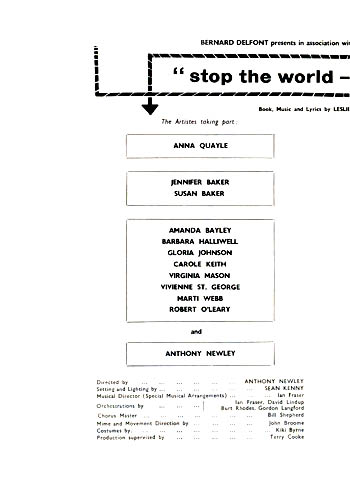
|
Apart from the tail end of the run of Stop the World, and its subsequent tour, the first musical I was involved in with Bernie was ‘Pickwick’which opened at the Saville, which was his theatre, on July 4th starring Harry Secombe. It was written by Wolf Mankowitz with lyrics by Leslie Bricusse, and music by Cyril Ordanel. The director was Peter Coe, and the designer Sean Kenny, who with Peter, had such a success with ‘Oliver’. ‘Pickwick’ was also a huge success, running at the Saville until February 1965. This was my first meeting with Harry Secombe, and everything I had heard about him was true. Without a doubt, he was one of the nicest people in show business. He needed to be, because earlier when he was doing ‘The Goon Show’ with Peter Sellers and Spike Milligan, he was the only one who could stop them from almost killing each other.
With Harry at the helm, the show was the happiest in London, with Anton Rodgers as Alfred Jingle, Peter Bull as Buzfuz, Teddy Green as Sam Weller, Jessie Evans as Mrs. Bardell, Julian Orchard as Snodgrass, Gerald James as Tupman and Oscar Quitak as Winkle. It was a wonderful cast; Harry kept everyone happy by throwing a party after the show once every four weeks in the stalls bar; he provided all the food and drink, and showed a film. Harry would prepare a list of films and ask the cast to vote on which one they would like to see.
The only problem that arose from ‘Pickwick’ was that Wolf Mankowitz had the idea of opening a new theatrical club in Cranbourne Street, called The Pickwick Club. Although it wasn’t very large, he persuaded Bernie to have the first night party there. It was like Dante’s Inferno when everyone tried to crush in. Half of Bernie’s guests couldn’t even get through the door, and those that did couldn’t find anywhere to sit, couldn’t get any food and just about managed to get a drink. To be fair to Wolf, he never anticipated such a large crowd. However, he pushed his luck when he presented the bill to Bernie for the party; he was told what to do with it in no uncertain manner. Bernie eventually settled for half.
Sean Kenny’s design for ‘Pickwick’ consisted of many large, tall, wooden platforms which had to be maneuvered in full view of the audience, by stagehands in costumes. There was the odd collision, but on the whole, it worked magnificently. One of the features of the set was a frozen pond on which Harry had to ice skate, then slip and somersault through a hidden trapdoor. It says a lot for Harry’s courage that in spite of his size and weight, he did this. I won’t say unflinchingly, because invariably he finished up bruised.
It was during the run of this show that I was to discover for the first time, the stupid intransigence of the Musician’s Union. At the opening of Act II there was a ballroom scene, and the music was supposed to be heard coming from upstage left of the scene, instead of the orchestra pit. I put it to the union that we could record the orchestra performing the music, and play it from upstage speakers, so it would sound as if coming from the ballroom. This would have given the musicians an extra fifteen minute break, on top of the interval. The musicians were obviously very much in favour of it, but the union said that under no circumstances could recorded music be played, even if it was the same musicians and would give them a break. I even offered them a recording fee, but they were adamant. Oh the stupid Luddite attitude of the unions in those days! Thank God it’s different in this day and age.
It was during this time that I first met Michael Sullivan, a sort of rogue agent, whom Bernie had decided to give a chance to, by allowing him to work within the Delfont agency. His office was literally the size of a broom cupboard; hence, he never met any of his clients there – it was elsewhere – usually in the bar of a hotel. Michael’s main claim to fame at that time was that he had discovered Shirley Bassey, but she subsequently left him for a new agent, Peter Charlesworth. Among Michael’s clients at this time were Dick Emery, Sidney James and Bernard Bresslaw.
Michael and l became friends and he reminded me of an incident which had taken place during ‘Come Blow Your Horn’. A young lady in the cast, Clare Gordon, was delightful but a bit of a scatterbrain – a sort of Goldie Hawn. She was invariably late in arriving at the theatre, and I constantly had to reprimand her.
On one particular Saturday it got to the half-hour of the first show and there was no sign of Clare. It then got to the quarter – still no sign. She’d never been this late before, so I was getting really worried. We arranged for the understudy to get ready. At the five minutes there was a phone call for me at the stage door; it was a doctor calling on her behalf, who said that she’d suddenly been taken ill, and she’d asked him to phone me. I got into a heated debate with him, asking why he hadn’t phoned earlier to give more advance warning. He responded by saying, ‘I don’t want to get involved in an argument with you. She’s too ill to phone herself and you ought to be grateful that I am calling you at all. I am a doctor – not a messenger boy’.
Michael told me that at the time he was having an affair with Clare; they were in bed together, and suddenly she looked up at the clock, and said, ‘My God – I should be at the theatre - I’m late for the first show’. Michael said ‘Don’t worry – leave it to me’, phoned up and pretended to be the doctor.
He was single at the time, having been divorced from his first wife. He had just become smitten with the French film star Dany Robin, whom he met when he was seated next to her on a London to Paris flight. She was married, but Michael pulled out every conceivable stop to woo her. He wrote to her, phoned her, sent her flowers and gifts, but nothing could shake her resolve not to get involved. He played his trump card when she told him that she was going on a cruise across the Atlantic, unaccompanied. He booked himself on the same cruise without telling her, locked himself in his cabin, and after three days at sea he suddenly appeared beside her at the ship’s rail, while she was gazing out to sea. That cracked it.
Eventually, she got a divorce, and they were married on 23rd November 1969. It was an enormous wedding; virtually everyone in the light entertainment side of show business was present. No expense was spared; a team of ten violinists played everyone into the reception. There were giant bears carved out of ice holding bowls of caviar; the champagne flowed unremittingly.
He had prepared a special comedy film of himself getting prepared for the wedding, which he showed to us all. At the same time, he showed us a ‘Candid Camera’ film which he had arranged, taken during they early stage of the reception, which most of us were on. He had a pretend waiter who kept coming up to us, interrupting our conversations, insisting on serving us things which we didn’t want, and not taking no for an answer. This resulted in some rather rude comments from the guests who were being pestered.
At the end of the reception, a helicopter landed, and Michael and Dany were whisked away to London Airport to get on a flight to begin their honeymoon – except that they didn’t. Michael had told me previously, that he wanted to hold a small, even more intimate reception for their closest friends, and he asked me to drive to his house once the helicopter had left. It was a good way to get rid of the majority of his guests and to continue the celebrations with a few intimate friends. I don’t suppose the guests would have had any cause for complaint anyway – they certainly had a marvellous time with unstinting hospitality. Just a small caveat - I’m not sure that Michael ever paid the bill.
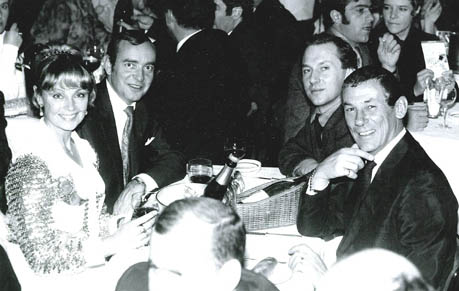
At The Lido in Paris - Dany Robin, Richard Mills,
Michael Simpkins (the lawyer) and Michael Sullivan
Prior to his involvement with Dany, we went out together a few times. One night, April Wilding invited me back to her flat at the Prince of Wales Drive, Battersea; April had a particularly attractive flatmate. I asked if she minded me bringing my friend Michael Sullivan; she said no, she didn’t.
We had a very good dinner, quite a lot to drink, and as the evening wore on we decided to play strip poker, with the winner claiming as his prize, one of the others. The girl I was particularly keen on was the flatmate. Michael was ambivalent, and the girl who had invited me was only keen on me. The flatmate wasn’t the remotest bit interested in me, so when I came to claim my prize as the winner, it resulted in an impasse, but it certainly helped break the ice on my first outing with Michael.
He thought I was lucky for him; he called me his lucky leprechaun and whenever he went to a gaming club, he would ask me to accompany him in order to bring him luck. If he won, he would give me some of the winnings.
|
|
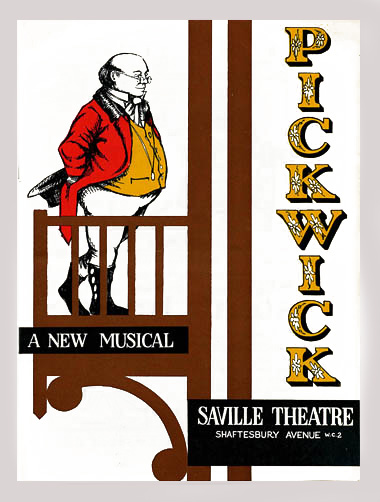 |
| |
‘PICKWICK'
In order of Appearance:
...
|
Hot Toddy Seller |
|
Norman Warwick |
Cold Toddy Seller |
|
IAN BURFORD |
Turnkey |
|
Brendan Barry |
Pickwick |
|
Harry Secombe |
Roker |
|
Reg Grey |
Tony Weller |
|
Robin Wentworth |
Sam Weller |
|
Teddy Green |
Mr Wardle |
|
Michael Logan |
Augustus Snodgrass |
|
Julian Orchard |
Tracy Tupman |
|
Gerald James |
Nathanial Winkle |
|
Oscar Quitak |
Mr Jingle |
|
Anton Rogers |
Mary |
|
Dilys Watling |
Mrs Bardell |
|
Jessie Evans |
Rachael |
|
Hilda Braid |
Dr Slammer |
|
Brendan Barry |
Bardel Jnr. |
|
Terry Collins |
1st Officer |
|
Roger Ostine |
2nd Officer |
|
Norman Warwick |
Skater: |
|
Donald Graham
Joan Ismay |
Isabella |
|
Vivian St. George |
Emily |
|
Jane Sconce |
Fat Boy |
|
Christopher Wray |
Landlord |
|
Brian Casey |
Dodson |
|
Michael Derbyshire |
Fogg |
|
Tony Simpson |
Judge |
|
Colin Cunningham |
Usher |
|
David Harris |
Sergeant Snubbins |
|
Brendan Barry |
Sergeant Buzfuz |
|
Peter Bull |
Directed by Peter Coe
Decor: Sean Kenny
Costumes Roger Furse |
| |
| |
|
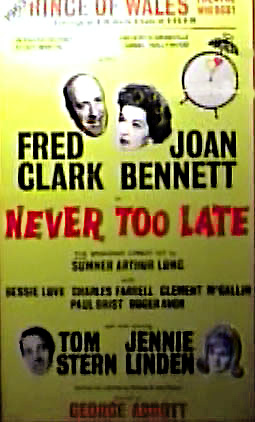
|
| |
‘NEVER TOO LATE '
In order of Appearance:
|
Grace Kimbrogh |
|
Bessy Love |
Harry Lambert |
|
Fred Clark |
Edith Lambert |
|
Joan Bennett |
Doctor James Kimbrogh |
|
Clement McCallin |
Charley |
|
Tom Stern |
Kate |
|
Jennie Linden |
Mr Foley |
|
Roger Avon |
Mayor Crane |
|
Charles Farrell |
Policeman |
|
Paul Grist
|
Directed by George Abbott
|
| |
| |
|
1964
|
Arthur Lewis, the American producer, director and writer, had arrived back in London in 1963 to run the Shaftesbury Theatre. Arthur had previously worked in this country as the director of ‘Guys and Dolls’ at the Coliseum theatre in 1953. He then returned to America, where he was the associate producer of ‘Can Can’, ‘The Boyfriend’ and ‘Silk Stockings’.
In London, he joined up with Bernie and co-produced with us ‘A Thousand Clowns’, starring James Booth and Roy Kinnear at the Comedy theatre, which opened on June 2nd. Later on this year, we were to co-produce with Tom Arnold and Emile Littler, ‘Little Me’, book by Neil Simon, music by Cy Coleman, lyrics by Caroline Leigh and starring Bruce Forsyth. It opened to rave notices, but it failed to capture the imagination of the British public and although it had a respectable run, it lost money.
During the rehearsal period there was an almighty row between Emile Littler, (who controlled the Cambridge Theatre where we were opening), Bernie, and Tom Arnold. Emile wanted to bar one of the major critics from the theatre, since this particular critic had upset him on a previous occasion. Bernie and Tom argued vehemently that he couldn’t do this, because it might result in a boycott by all the other critics. It got down to the stage of solicitors’ letters, but eventually it was resolved. The critic came and gave us a fair notice.
Emile was rather preoccupied with litigation. He had previously crossed swords with the master, who could out-litigate anybody - Harold Fielding, who, when he presented ‘Half a Sixpence’, starring Tommy Steele at Emile’s theatre the Cambridge, queried some of the expenses Emile charged him with. The lawyers grew fat on the missives which sped to and fro between the two adversaries - the highlight of which was Counsel’s opinion being sought on whether an India rubber constituted part of box office stationery, since Harold contested that he should not have to pay for it. He won, cost Counsel’s opinion £200, cost India Rubber 3 pence, a pyrrhic victory – but that was Harold.
On a later occasion when we were co-producing ‘Sweet Charity’ with him at the Prince of Wales theatre, he saw the property master boiling a kettle on a gas ring to make a cup of tea. ‘Who is paying for that gas – the theatre or the producers?’ he asked; but on that occasion it was decided not to seek Counsel’s opinion.
We presented ‘Round About Piccadilly’, starring Max Bygraves, which was running at the Prince of Wales quite successfully. Freddie Granville was still active with Bernie at the Phoenix theatre, co-presenting ‘Caligula’, directed by Peter Coe and starring Kenneth Haigh.
Early this year, Bernie sold his agency to Leslie Grade for £100,000 in cash, and 200,000 shares in the Grade Organisation. This was seen as a family monopoly by some of the press, but it was nonsense, because the brothers were always in strong competition with each other. Nothing much changed; Bernie joined the Board of the Grade Organisation in a non-executive role, and thereafter concentrated on the West End shows and theatres.
Billy Marsh was left to carry on as always, and continued to book all the summer season shows and the headliners for the Talk of the Town. Bernie had been asked by the Cunard Line to book all the entertainment on their ships, and this became my particular province. Booking the artists was easy, but the paperwork - getting them to join the Seamans’ Union, getting special visas for some ports of call, etc., etc., was astronomic. It wasn’t something I enjoyed.
I was still playing a lot of poker. Charles Palmer had decided to branch out from his private games, and opened a poker club called The Sorbonne, in the Cromwell Road opposite the Natural History Museum. He did very well there - and so he should have, since he was taking five per cent out of every pot, which meant that most of the players’ money finished up in his pocket rather quickly. It was such a lucrative operation that some local villains tried to muscle in, by offering him protection. Charles, less than politely declined, saying, ‘I’ll take care of that myself, thank you’. By coincidence, one of these villains disappeared, and rumour had it, that he was helping prop up one of the supports of the Hammersmith flyover.
Apart from the poker, I also had my fair share of cricket. Playing in a match against the Cross Arrows at Lord’s, I was batting at one end and at the other end, was a butch ballet dancer from New Zealand who danced principal roles with the Royal Ballet at Covent Garden.
His name was Brian Ashbridge, and he was to dance a leading role in a new ballet, which was due to open that night at Covent Garden. In those days, helmets for batsmen had not been invented. He received a ball from the quick bowler, which caught the top edge of his bat and smashed him straight in the face, which rather re-arranged his features. We carried him back to the dressing room, and he mumbled, ‘What am I going to do? I’m due on stage in three hour’s time’. ‘Leave it to me’, I said. I phoned up the theatre, and did a ‘Michael Sullivan’, explaining that I was Brian’s doctor; that he had been stricken with a virus and was unable to perform that evening.
I said to Brian, as we loaded him into a taxi to take him home, that the virus was going to have to last at least two weeks if he didn’t want the ballet company to see what state his face was in. I only mention these matters to point out that there was a little more to my life than just show business.
|
|
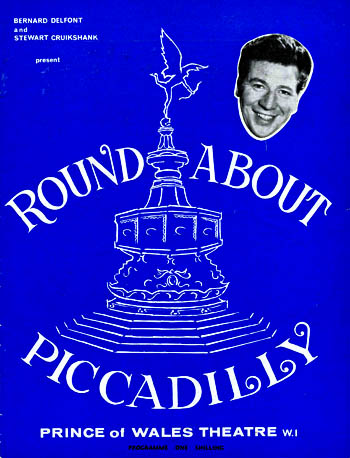
|
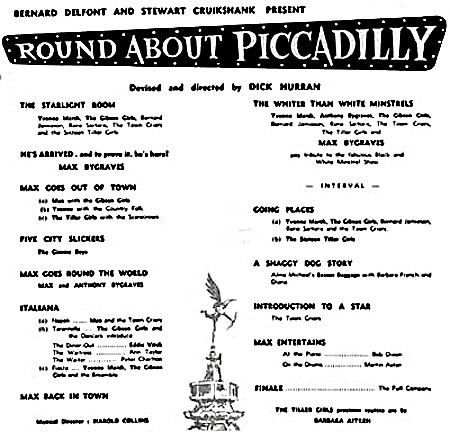 |
| |
|
| |
|
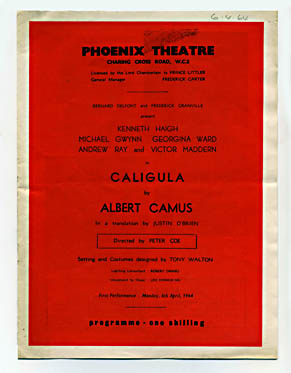
|
| |
‘CALIGULA'
by Albert Camus
Translated by Justin O'Brian
In order of Appearance:
|
Octavius |
|
Geoffrey Russell |
Lucius |
|
Norman Pitt |
Old Patrician |
|
Frederick Farley |
Cassius |
|
Rob Inglis |
Trebonius |
|
Tony Caunter |
Helicon |
|
Victor Maddern |
Lepidus |
|
Sean Curry |
Patricius |
|
Murray Scott |
Guards: |
|
Paul Grist
Barry Jackson
Eric Mason |
Cheria |
|
Michael Gwynn |
The Chamberlain |
|
Jeffrey Wickham |
Scipio |
|
Andrew Ray |
Mereia |
|
David Nettheim |
Mucius |
|
Walter Hall |
Caluligua |
|
Kenneth Haigh |
Caesonia |
|
Georgina Ward |
Mucius's Wife |
|
Rosemarie Dunham |
1st Poet |
|
David Nettheim |
2nd Poet |
|
Walter Hall |
3rd Poet |
|
Paul Grist |
4th Poet |
|
Murray Scott |
5th Poet |
|
Sean Curry |
6th Poet |
|
Tony Caunter |
Slaves: |
|
Paul Grist
Barry Jackson |
Directed by Peter Coe
Decor: Tony Walton |
| |
| |
|
| |
|
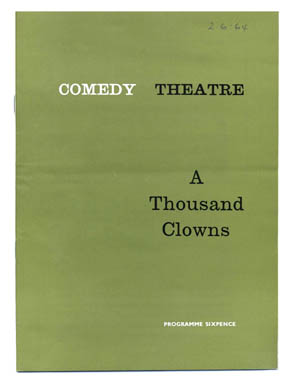
|
| |
‘A THOUSAND CLOWNS '
by Herb Gardner
In order of Appearance:
|
Murray Burns |
|
James Booth |
Nick Burns |
|
Chris Barrington |
Albert Amundson |
|
John Cater |
Sandra Markowitz |
|
Andree Melee |
Arnold Burns |
|
Sydney Tafler |
Leo Herman |
|
Roy KInnear |
| |
|
|
Directed by Herbert Hirshman
Decor: George Jenkins |
| |
| |
|
Following the success of ‘Stop the World I Want to Get Off’ in 1961, Bernie was about to present another musical by Tony Newley and Leslie Bricusse, entitled, (after a great deal of debate), ‘The Roar of the Greasepaint the Smell of the Crowd’. Bernie put me in charge of the production, which starred Norman Wisdom with Tony directing, and Gillian Lynne choreographing. Among the cast were two sixteen year old girls, Elaine Paige and Sheila White. I didn’t notice Sheila at the time but twenty years later, I was to marry her.
Rehearsals were rather volatile with Norman and Tony continually falling out. On one occasion, it nearly developed into a fight. Fortunately for Tony, it didn’t, since Norman had been flyweight champion of the Army during the war.
We opened in Nottingham on August 8th and it wasn’t well received. Bernie said that unless it was improved during the five-week tour we had booked, he wasn’t prepared to bring it into London. Leslie and Tony worked very hard during the next four weeks, but no matter what they tried, it appeared to get worse. It had a great score, ‘The Joker is Wild’, ‘On a Wonderful Day Like Today’, but the book was the problem. So Bernie reluctantly closed it in Manchester.
David Merrick (who was once called the abominable showman) asked Bernie if they could co-produce it on Broadway, subject to the fact that Tony starred in it. Bernie agreed, and it went on to become a hit. This cemented Tony as a star in America, and for the next fifteen years he was an enormous attraction on the No. 1 cabaret circuit, particularly in Las Vegas.
Stars at the Talk of the Town this year included Shirley Bassey, Alma Cogan, Bruce Forsyth, Nina and Frederick and a return visit from Lena Horne. On 19th February, it was time for the great Ethel Merman to play a season.
For many years Merman was the First Lady of Broadway. Musicals were written for her. Cole Porter wrote five, including 'Anything Goes'. Also written for her were 'Annie Get Your Gun', 'Call Me Madam' and 'Hello Dolly', which was originally written for her, but she didn't appear in it until the 70s as the last Dolly Levi. What however was considered her finest performance was in 'Gypsy'. She was very briefly, for a matter of weeks, married to Ernest Borgnine.They were both about 60.
There is an apocryphal story that Merman came home one day to find Borgnine with his nose buried in the sports section of a paper and she announced: 'I've just been to see Jack Warner at the film studio and he told me that I had the legs of an 18 year old - the bust of a 25 year old and the face of a 30 year old. Borgnine wearily lifted his eyes from the sports page and asked: 'Did he say anything about your 60 year old c**t? 'No, she replied, 'he didn't mention you at all'.
She was the first artist to appear in this country who used a radio mike. It was her own personal property, and she brought it over from America. Now why Ethel Merman, (whose voice could stop a train), should need a radio mike, was I suppose, for the linking dialogue between her songs. She certainly packed a punch. She made her entrance from the front of house, bursting down the centre gangway, belting out, ‘There’s No Business Like Show Business’. She looked totally unstoppable; it puts me in mind of what Ernest Borgnine was purported to have said when he was married to her. ‘Kissing Ethel Merman is like kissing a Sherman tank’. And that’s what she was like – unstoppable as a tank. What a performer!
The radio mike created more problems than it solved. It was operating on a frequency which was used by taxi cabs, so in the middle of her act, she often got a call asking if she could go somewhere to pick someone up. It didn’t finish there; the police intervened and said it was operating on an illegal wavelength, which was close to the wavelength used by police and ambulance services. They threatened Bernard Delfont with arrest if he didn’t stop it. Fortunately, Bernie had some friends in high places that also happened to be fans of Ethel Merman, so the whole thing was smoothed over. She could certainly have earned a few extra bob during those four weeks, operating a taxi service.
Ethel Merman quotes: - "I can hold a note longer than the Chase National Bank"
"Some things in life aren't even worth regretting. You're better off passing them like a freight train passes a hobo".
Surely this is totally politically incorrect. Hobo should be an itinerant person with few material possessions and no visible means of support. As for the freight train, (since machines are more and more considered to think for themselves), would it not be upset to be considered uncaring.
Will you excuse me for a moment I just have to take my computer for a walk in Richmond park. |
|
|
..................................American Production
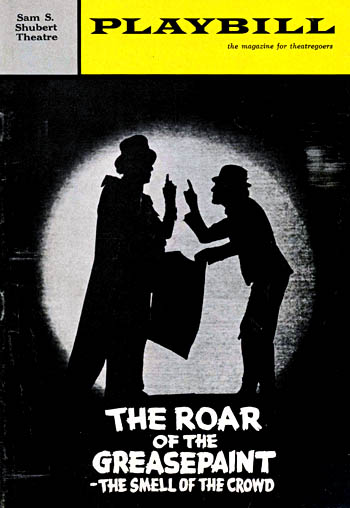
|
............... ....American Production cast list
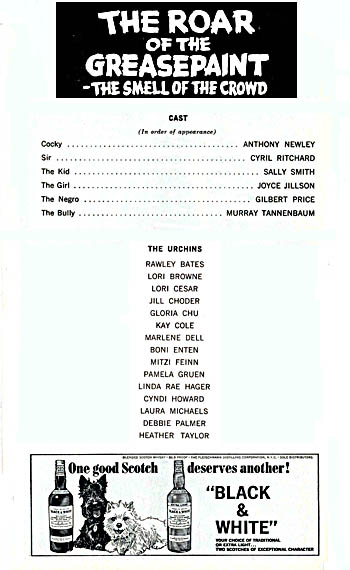
....
|
We produced ‘Maggie May’ which opened at the Adelphi Theatre in the Strand on 22nd September 1964, after trying out at the Palace Theatre, Manchester. The music and lyrics were by Lionel Bart, with book by Alun Owen. It was directed by Ted Kotcheff, and choreographed by Paddy Stone. As always, Paddy’s work was great. He even managed to create a dance routine out of the dancers jumping up and down on the same spot. It stopped the show, but years later created lots of problems in the joints of some of the dancers who performed it.
Sean Kenny was the designer. It was a typical ‘Sean’ design; very complex interlocking machinery, all driven by electric motors. I was very nervous of this, and asked him if we could have some manual winches as a back-up. His reply was, ‘Richard, one day they are going to land a man on the moon, and they’re not going to winch him up’.
Rachel Roberts and Kenneth Haigh played the leading roles. Playing a small part ‘The Balladeer’, was the, as yet unknown, Barry Humphries, who opened the show as a one man band, singing a number entitled ‘The Ballad of the Liver Bird’. I can’t remember why, but he left during the run.
Someone else who went on to do quite well for himself was a stagehand, who was in charge of the revolve, which operated all the scene changes. He didn’t always push the right buttons at the right time. On one occasion, he pressed a wrong button and the scenery, with the cast on it, finished up belting out a number facing the back wall. His name was Eddie Shah, and he went on to become a multi-millionaire in the publishing business. Another young hopeful in the chorus was Julia McKenzie, who went on to become a great leading lady.
Rachael Roberts told me during the run, that her friend and my ex-girlfriend Jessica had had a burst pipe in her flat. A plumber came round to fix it and she finished up marrying him.
The show was reasonably well received by the press, and ran for over a year doing steady business, during which time we changed the leading lady twice, Georgia Brown taking over from Rachael Roberts and then Judith Bruce from her; the leading man was also changed twice. Bernie came out of it very well, having pre-sold the film rights to United Artists for a quarter of a million pounds.
Later on I was with Sean having a drink in the actor’s club Gerry’s in Shaftesbury Avenue. I mentioned that having done several shows with him, it would be nice to have an original design as a keepsake. ‘No problem’, he said. He asked Bunny May who was running the club, if he could have one of his saucers. He then produced a Phelp pen, and drew me a striking picture on it which he signed. I took it home with great pride, and put it on the sideboard.
When I returned from the office the next day, it was missing. I asked the lovely lady, Mo Daly, who was the caretaker in the block of flats where I lived, did all my cleaning and generally looked after me like a son, if she had seen it. ‘Oh, don’t worry about that dirty saucer. I’ve washed it up for you’. I didn’t have the heart to tell her.
Some years later, Sean asked to see me in my office. He had been asked to advise on the design of a new theatre in Drury Lane, which was to be on the site of the now derelict Winter Garden, to be called The New London, in which we were to have an interest and administer. He said he would appreciate my advice about various elements, as producer and a man who ran theatres.
After a discussion lasting about three hours, in which I outlined what I considered to be the perfect theatre; one that seated about twelve hundred people, so that it could be intimate enough to present large scale plays as well as musicals, together with plenty of depth and wing space, which would be needed for a reasonably sized musical. And last, but by no means least, the orchestra pit to be large enough to hold twenty-four musicians. He thanked me profusely, and left.
The theatre was finally built in 1973. The front of the stalls and the stage revolved to form a circle. The stage was very shallow; there wasn’t enough wing space. The orchestra pit was a narrow slit, which at a push, could accommodate seven musicians, and the auditorium only seated nine hundred. It was everything I had suggested it shouldn’t be. We struggled for years trying to make it work, and finished up using it mainly for conferences. However, Sean had the last laugh. In 1981, it eventually became the home of ‘Cats’, at one time the longest running musical in the histoy of the West End.
Back at Jermyn Street, I was still in the same office as Billy Marsh, but by now, I had my own desk. I was doing my thing on one side of the room, and he was doing his on the other. I was having some difficult, protracted negotiations with the agent of one of the featured artistes in ‘Maggie May’. This went on for several days, and I noticed that Billy would always pay particular attention when these conversations took place. I discovered some time later, that the artist I had been discussing, was the previous husband of Billy’s wife, Mary. Billy always played his cards so close to his chest – he never told me.
Spike Milligan was appearing in ‘Oblomov’ at the New Lyric Hammersmith. After a week or two of playing it straight, he decided to reinvent the piece, filling it full of ‘Goon’ type comedy. It became a rip roaring success; Michael White came to see me to arrange a transfer to the Comedy theatre, which we were then managing.
The title was changed to ‘Son of Oblomov’ and it opened on 2nd December. Spike was as usual his eccentric self, nobody in the cast knowing what he was likely to do next. On one occasion, just five minutes before the curtain was due to go up on a matinee, he called the Company Manager into his dressing room, to inform him he didn’t wish to do the show. (Being Spike, he didn’t have an understudy). The Company Manager replied, ‘But Spike, you can’t do this at such short notice - most of the audience are already seated, waiting for the performance to begin’. Spike said, ‘Well - invent something. Tell them that I was suddenly taken ill and I’m in intensive care in hospital, but have just managed to phone, to say how dreadfully sorry I am to inconvenience my public. I wouldn’t let them down for the world – but there’s nothing I can do about it’.
The Company Manager made an announcement from the stage conveying Spike’s message - saying they could have their money refunded, or tickets for another performance. As the audience shuffled disconsolately from the theatre, Spike Milligan, with a bucket and leather ,was happily washing his car on the corner in full view of passers-by. I was never quite sure how Michael White managed to deal with the subsequent complaints.
I went to a very special Sunday night concert at the Palladium in November. It was Judy Garland performing with her daughter Liza. I think it was the first time they had ever worked together on stage. For all I know it might have been the only time – but it was a truly magical evening.
It appeared to me that Judy was a little cautious about the vast talents of Liza which she was nurturing. Perhaps she felt she was in danger of being occasionally upstaged. But this was probably only my opinion. Judy was a great star – but I felt she was starting to decline a little. Incidentally what is a star? Well I suppose first of all we have to put them into three categories. Megastars – like The Rolling Stones who played to over 1m people in a concert held on the beach front of Rio de Janeiro – Barbra Streisand who played to an audience of 150,000 in New York in Central Park in 1968 – obviously The Beatles.
THE NEXT 2 PARAS NEED REWRITING
Then we have Superstars who can sell out a concert tour in stadiums seating upwards of 20,000 people, Shirley Bassey, Elton John. Actors who can sell films by the very fact that they are appearing in them. This is usually allied to you know what you are going to get – for instance when Bruce Willis or Arnold Schwarzenegger appear in a film. Is Johnny Depp a Superstar? Because you never know what you are going to get with him – but it’s usually pretty good. Stanley Matthews, the famous footballer was a superstar. When he was playing, it could put 20,000 people on the gate.
Then we have stars who, although they don’t sell tens of thousands of tickets in a one off situation, can help a play or musical playing to capacity for a reasonable length of time.
Incidentally after stars we have what is known as booking names which doesn’t necessarily mean the public will pay to go and see them – but because of their profile in the entertainment business they help to launch the film or find a West End or Broadway theatre for a play or musical.
Anyway, whatever category stars are in, is it somebody that sells tickets at the box office? Partially – yes. There are a lot of film actors who sell tickets but I don’t consider them stars. Is it someone who has a great talent? I have seen many performers with great talent – Alan Badel being one. But they are not stars. Is is someone who trades on a reputation of all the things they have done in the past? Is it someone who is unique? Is it someone who when you see them perform makes the short hairs on the back of your neck stand up? Oh yes – that’s definitely part of it. Angela Lansbury did that to me when I saw her performing in Gypsy as did Barbra Streisand in Funny Girl. There are many others but I won't go through the list. Is it someone who is breathtakingly beautiful like Garbo? Not necessarily but the helps. Is it somebody who is multi-talented? Roy Castle certainly was but he wasn’t a star. Vocal talent obviously makes a star. Frank Sinatra, Barbra Streisand, etc. etc. Voice helps – John Gielgud, Richard Burton, Peter O’Toole, Katherine Hepburn – all had a particular unusual quality but finally it is charisma. I can’t define it – its just there. In my opinion, one of the great stars was Sammy Davis Jnr.
Upon reflection of the above, a film star is probably created because although films are made for distribution to millions of people, in my era when we gazed at the silver screen we were oblivious to everyone else – it was just a highly personal contact between us and the actors in the film and we associated with them. I’m sure every girl wanted to be either Shirley Temple or Judy Garland and the boys wanted to be Tarzan or Robin Hood but as we grew up we decided we couldn’t swing from lampposts or shoot arrows into traffic wardens pretending they were the Sheriff of Nottingham.
We therefore switched our allegiance to actors like Clark Gable and Marlon Brando whilst the girls wanted to be Scarlett O’Hara or Marilyn Monro. The girls then fell in love with the male actors and the boys fell in love with the female actors – or vice versa. This helped to create the film stars.
But the most emotive of the arts which is easily able to arouse feelings of exhilaration, pleasure, nostalgia and sadness is music. So probably the greatest crowd-pulling stars of all are vocalists, but not musicians. Because we can identity with vocalists – 99% of the population are guilty of singing in the bath and thinking (thanks to the acoustic qualities of the bathroom) that they sound like Frank Sinatra or Barbra Streisand. Now it's difficult to play an instrument in the bath – but if Yehudi Menuhin had made a film called ‘Stringing in the Rain’ undoubtedly someone, somewhere, would try and give a soggy version of Handel’s Water Music on the violin under the shower.
The above doesn’t necessarily define what creates a star, but at least it provides an opportunity for my idiosyncratic rambling.
|
|
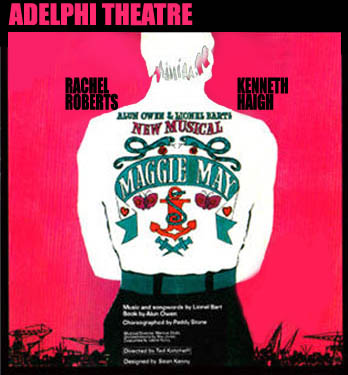 |
| |
‘MAGGIE MAY '
Book by Alan Owen
Music and Song Words by Lionel Bart
In order of Appearance: |
A Balladeer |
|
Barry Humphries |
Young Priest |
|
Stephen Taylor |
Mrs O'Brian |
|
Janette Gail |
Mrs Casey |
|
Margot Cunningham |
Mother Monica |
|
Charlotte Howard |
Maggie May as a child |
|
margaret Howe |
Sister Mary |
|
Janet Webb |
patrick Casey as a child |
|
Malcolm Collingham |
mrs Nugent |
|
Marie Conmee |
parish Prist |
|
Vernon Rees |
Willie Morgan |
|
Andrew Keir |
Marget Mary Duffy (Maggie May) |
|
Rachael Roberts |
Maureen O'Neill |
|
Diana Quiseeky |
1st Chinese Sailor |
|
Victor Mansi |
2nd Chinese Sailor |
|
Stanley Fleet |
Milkman |
|
Fred Evans |
Children: |
|
Carol Bird
Jaquaeline Lewis
Terry Brooks
Peter Newton |
Old Dooley |
|
Paul Farrell |
Cogger Johnston |
|
Michael Forrest |
Terry Collins |
|
Billy Boyle |
Gene Kirenan |
|
Geoffrey Hughes |
Patrick Casey |
|
Kenneth Haigh |
Stevedore |
|
Joe Sealy |
Crane Driver |
|
Geof L'Cise |
Nora Mulqueen |
|
Marie Conmee |
Ned |
|
Stanley Fleet |
Miss Singleton |
|
Paul Bell |
Police Sergeant |
|
Sean Curry |
The Nocturnes: |
|
David Wilcox
David Foley
David Elias
Francis Sloan
Keith Draper |
Police Inspector |
|
Vernon Rees |
Sergeant/Corporal |
|
Vincent Mansi |
| |
|
|
Directed by Ted Kotcheff
Decor: Sean Kenny
Costumers: Leslie Hurry |
| |
| |
|
| |
|
LIONEL BART QUOTE: "I hated money and had no respect for it. My attitude was to spend it as I got it."
At the Arts Theatre we produced ‘In White America’, directed by Peter Coe. We had thought that it was going to be difficult to cast, since at the time, there were a limited number of black actors in this country; however, it transpired that the actors we found performed magnificently. It was only a short run, but an artistic success, which is all we ever expected it to be.
|
| |
|
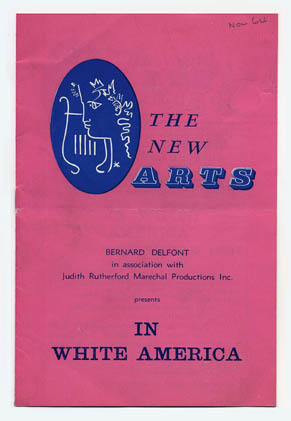 |
| |
‘IN WHITE AMERICA '
A Documantary Play
By Martin B. Duberman
...
|
Robert Ayres |
|
EARL CAMERON |
Bunny Clarke |
|
GORDON HEATH |
Bessie Lve |
|
NEIL MCCALLUM |
| |
|
|
Narrator:: EDWARD BISHOP
Musician: : fITZROY cOLEMAN |
| |
Directed by PETER COE
|
| |
| |
|
| |
|
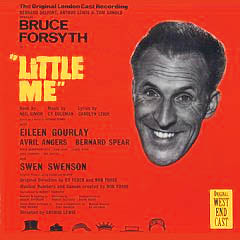
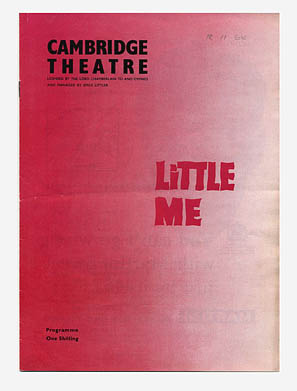
|
| |
BRUCE FORSYTH
‘LITTLE ME '
Book by Neil Simon
Music by Cy Coleman
Lyrics Carolyn Leigh
based on the novel by Patrick Dennis
In order of Appearance: |
Noble Eggleston
Mr Pinchley
Val Du Val
Fred Poitrine
Otto Schnitzler
Prince Cherny
Yong Noble |
|
Bruce Forsyth |
MC
Butler |
|
Ted Gilbert |
Patrick Dennis |
|
David Henderson-Tate |
Miss Poitrine |
|
Avril Angers |
Mum Hoggs Father |
|
Bee Duffell |
Belle
Baby Belle |
|
Eileen Gourlay |
George Musgrove
(as a boy)
1st Sailor |
|
James Land |
Cecil |
|
Jamie Fraser |
Daphne |
|
Rosemary Smith |
Lydia |
|
Elizabeth Edmiston |
Lady Eggleston |
|
Enid Lowe |
Bentley
Doctor
Tennis Pro
Preacher |
|
Tim Bamber |
Miss Kepplewhite |
|
Susan Robinson |
Nurse
Woman |
|
Doreen Croft |
Kleeg |
|
Robert Simmons |
Golf Pro |
|
Elwyn Hughes |
Seargeant
1st Steward
Newsboy
|
|
John Howard |
Bernie Buxgrave |
|
Jack Francois |
Benny Buxgrave |
|
Laurie Webb |
Colette |
|
Diane South |
George Musgrove |
|
Swen Swenson |
Announcer
Victor
Soldier |
|
Glenn Willcox |
Red Cross Nurse |
|
Glennis Beresford |
German Soldier
General Schreiber
Pinchley Jnr.
Ship Captain
Assistant Director
Yulmick
Defense Lawyer |
|
Bernard Spear |
2nd Sailor |
|
Michael Tye-Walker |
2nd Steward
Pharaoh |
|
Michael Billington |
Directed by Arhur Lewis
Decor: Robert Randolph
Costumes: Robert Fletcher |
| |
|
| |
|
| |
|
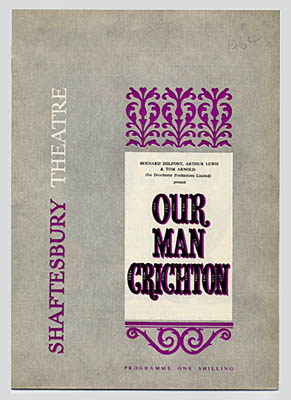 |
| |
‘OUR MAN CRICHTON '
Based on the Admirable Crichton by J.M. Barrie
Book and Lyrics by Herbert Kretzmer
Music by David Lee
In order of Appearance:
|
Tweeny
|
|
Millicent Martin |
Crichton |
|
Kenneth More |
Henry, The Earl of Loam |
|
George Benson |
Lady Mary |
|
Patricia Lambert |
Lady Agatha |
|
Dilys Watling |
Lady Catherine |
|
Anna Barry |
The Hon. Ernest Woolley |
|
David Kernan |
Rev. John Treherne |
|
Peter Honri |
Countess of Brocklehurst |
|
Eunice Black |
Lord Brocklehurst |
|
Glyn Worsnip |
Carruthers |
|
Ken Lacey |
Robbins |
|
Jeff Hall |
Kelly |
|
Trevor Willis |
Housekeeper |
|
Peggy Rowan |
Ladies' Maids: |
|
Elinor Heslop
Mary Murphy
Jean Collins |
Dockers: |
|
Dennis Reynolds
David Wheldon-Williams
Hugh Elton |
|
|
Jeff Hall |
1st Officer |
|
Chris Robson |
Directed by Clifford Williams
Decor: Michael Annals
|
| |
|
KENNETH MORE QUOTE: "Oh, Mr Coward, sir - I could never have an affair with you, because you remind me of my father!"
|
|
|
Bernie asked me to move from Billy Marsh to an office next to him, in the Prince of Wales theatre. His feelings were, that he had so much on the cards, it would be better if I were close by. It was goodbye to: Billy, the Cunard Line, (thank God), the agency, and all of the light entertainment, (or so I thought).
‘Round about Piccadilly’ closed in March 1965, and its place was taken by ‘Travelling Light’ which opened on 8th April, starring Michael Crawford, Harry H. Corbett and Julia Foster. This didn’t do very well and subsequently closed after one hundred and forty-eight performances.
Wolf Mankowitz was in the process of producing a new musical, ‘Passion Flower Hotel, adapted from the novel by Rosalind Erskine, book by Wolf Mankowitz, lyrics by Trevor Peacock and music by John Barry. There were no stars as such; just a plethora of young talent, including: Pauline Collins, Francesca Annis, Jane Birkin, Nicky Henson, Bill Kenwright, (later to become an extremely prolific producer), and my friend, Bunny May - a man of diverse talents.
Having read the book, I listened to the music, and told Bernie that although I didn’t think it would set the town alight, I thought it had a fair chance. I went up to see its opening at the Palace Theatre Manchester, prior to coming to London, and was still ambivalent. It wasn’t successful. It opened on 24th August, and closed after one hundred and forty-nine performances. The notices were okay, but not good enough.
Later on that year I went to see a musical at the Adelphi theatre, which opened just before Christmas and was castigated by the press - apart from one good notice in the Sunday Express which ran to about eight lines. It was called ‘Charlie Girl’ and it ran for over four years. I believe it had its finger on the pulse of what the general public wanted; it also had the right cast; Anna Neagle, Joe Brown and Derek Nimmo, and a brilliant marketing strategy from the ace showman, its producer, Harold Fielding.
I had been playing cricket with the Stage Cricket Club for fourteen years, and although I had played reasonably well, scoring many fifties and a few seventies, eighties and nineties, I could never reach the magic figure of one hundred. Then, on July 4th, against the City of London College at Grove Park, I scored 109 not out, and immediately followed it a week later against the Royal Exchange Assurance at East Molesey, with another 100 not out, and they say buses always come along together.
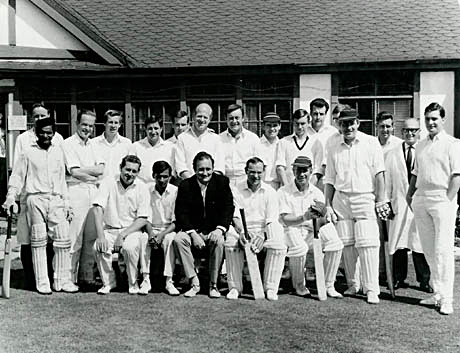
Me, seated 2nd from right ready to open the batting -
my pads were not as clean as they should have been
Earlier in the year, we produced ‘The Solid Gold Cadillac’ with Margaret Rutherford and Sidney James, which opened on 4th May and was not a success – nor was Neil Simons’ ‘Barefoot In the Park’, which we opened on 24th November at the Piccadilly theatre. It starred Mildred Natwick, Daniel Massey and Marlow Thomas. Although a big hit on stage in America, and later on a film – as I wrote earlier, the Neil Simon magic just didn’t fully work in London.
|
|
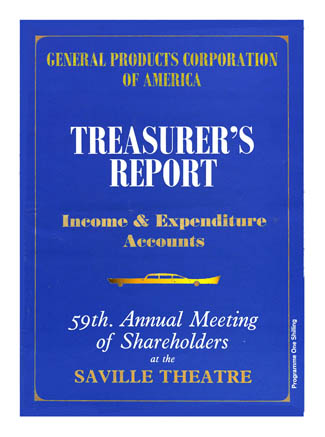
|
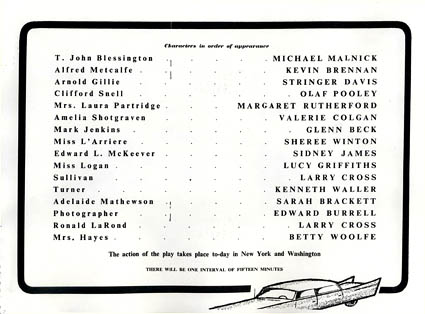 |
MARGARET RUTHERFORD QUOTE: "You never have a comedian who hasn't got a very deep strain of sadness within him or her. One thing is incidental on the other. Every great clown has been very near to tragedy."
|
|
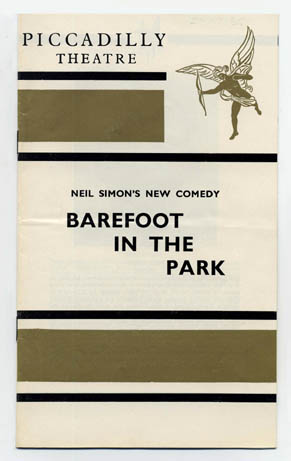 |
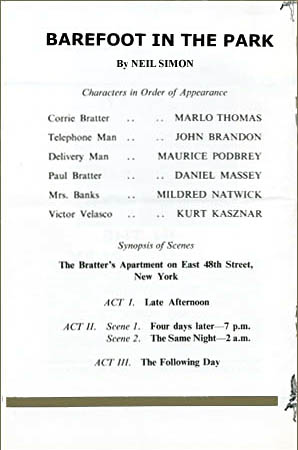 |
NEIL SIMON QUOTE: "New York is not Mecca. It just smells like it."
Our failures during this year might have been viewed as minor shipwrecks, because looming up at us, was the Titanic of all musicals – ‘Twang’.
Lionel Bart was on a roll. He started in 1959 at the Theatre Royal Stratford East, working with Joan Littlewood, where he wrote ‘Fings Ain’t Wot They Used T’Be’ which transferred to the Garrick, and ran for two years. Then, ‘Lock up your Daughters’ (lyrics), ‘Oliver’, ‘Blitz’ and ‘Maggie May’. Most of what he touched turned to gold. When he approached us to present his new musical ‘Twang, we jumped at the chance. This was to be produced in association with John Bryan, a film producer, who was backed by Universal Films.
The creative team was Joan Littlewood, (the Queen of improvisation), to direct, Oliver Messel the world-renowned painter, architect, designer and who was responsible for the sets and costumes. Paddy Stone was the choreographer, (he was probably the finest in Europe, and was among the top six in the world)
Paddy had a very short fuse, many times stopping just short of physically assaulting his dancers. He did actually throw a chair at one during the subsequent rehearsals. My theory about Paddy’s frustration was, that he was full of brilliant and inventive ideas, and the dancers, with one or two notable exceptions, just weren’t supremely talented enough to execute them. He was like a painter, who was capable of great art, but found he didn’t have all the necessary colours in his palette. This team, together with Lionel Bart, was either going to be dynamite or oil and water.
James Booth, Barbara Windsor, Bernard Bresslaw and an up-and-coming Ronnie Corbett, were the stars. The rest of the cast, numbering about forty-five, were made up of actors, dancers, singers, tumblers and acrobats. The show took some time to set up. The first inkling of a stormy passage ahead, came when Lionel, who we had been pestering for months to give us a script, suddenly appeared triumphantly, waving seven pages. ‘Where’s the rest of it?’ we asked. ‘Oh, don’t bother about that. Joan is brilliant at improvisation. She’ll just make it up as we go along’, Lionel replied.
The opening date hadn’t been set yet, and we needed to establish the date of the first rehearsal. In those days, a musical would usually rehearse for four, or at the most five weeks. ‘Since you’re making it up as you go along, will five weeks be enough rehearsal time?’ I asked Lionel. ‘Oh no, we need three or four months’, he replied.
After I recovered my composure, I explained that this was out of the question, since, after four weeks of rehearsal pay, the artists all had to be paid full salary. Lionel suggested to me that we wouldn’t officially rehearse; we would just invite all the principal performers to a three or four month party at his large house, which was a converted monastery he had just bought in Fulham, and there they could make it all up with Joan. Not having a lot of choice, I told him we would go along with it, if the artists agreed. Since they were all part of Joan’s company (‘my nuts’), as she called them, from Stratford East, they did.
Instead of getting the script right, Lionel seemed to be more interested in what the front of house sign should look like. He spent a great deal of time discussing it with me, saying he wanted a big neon lit target on the front of the Shaftesbury theatre with neon lit arrows being fired into it from across the road. It took a great deal of time and effort on my part to explain to him that regardless of the wonders of modern invention, this was not a practical proposition. Eventually he reluctantly gave way.
The party for the principals commenced, and arrangements were made for the rest of the company to start rehearsing in two months time. Timothy Burrill, who is today a successful film producer, was assistant to our co-producer, John Bryan. Tim used to pop in from time to time to see how rehearsals were going, and several times found Joan trying to work him into a scene, instead of having him just watching. Joan liked him. But because he was from films, not theatre, she used to say to me, ‘He’s not like you - he doesn’t know how to make cakes’. At first I was puzzled, but then I realised she was alluding to ‘theatrical cakes’. Anyway, Tim was a great guy to work with, and although he couldn’t make theatrical cakes, he could certainly make films.
I paid very few visits to the improvisations at Lionel’s, on the basis that, until they had sorted themselves out, there was nothing I could do. On one of the occasions I did attend, Joan was improvising a scene in Sherwood Forest, when one of the principle actors, (I can’t remember which one), asked Joan if he might be excused to go to the loo. She agreed, and he was away for about five minutes. When he returned, he asked Joan whereabouts he should be standing in the scene. Joan told him not to bother, as she had written him out of the scene in his absence. His response was ‘Christ Joan! I only went to take a piss and you’ve written me out of the scene. Thank God I didn’t go for a crap - otherwise you would have written me out of the musical!’
After two months of improvisation at Lionel’s house, without any appreciable improvement in the script, we commenced rehearsals in earnest with the thirty-five other members of the cast; singers, dancers, acrobats etc.
The rehearsals were held in a complex in north London, which had a very large hall and several large rooms; so the dancers would be in the hall with Paddy Stone, the singers in another room with the vocal coach, and the principals split up into one or two rooms as required. Paddy was working well with his dancers, and the singers were making progress, but the script still lacked cohesion and direction.
Oliver Messel, the designer, had by now started to panic. He didn’t know what sets he was supposed to be designing. Joan had told him not to worry - the shape of show would soon be fixed. Oliver patiently explained that first of all he had to know what all the scenes were; then he had to design them; then they had to be approved, and then, they first of all had to be built, and then painted.
I pointed out to Joan that the time scale for this, for a major musical, even if everyone worked flat out, was five or six weeks. ‘Well in that case’, said Joan, ‘since Oliver knows we need at least a forest and a castle, let him design those, then he can do whatever he wants with the rest of the sets, and I’ll improvise the book around them’.
Since there was no alterative, I conveyed this to Oliver, and between us we worked out what the other scenes might be; village green, banqueting hall, drawbridge, Maid Marion’s bedroom, battlements of the castle etc, etc. Slightly mollified, this he proceeded to do.
We were now fast approaching our opening date, which was to take place at the Palace Theatre, Manchester. The book was still in a mess, and tempers were becoming increasingly frayed. Paddy had choreographed one scene in the forest, where the acrobats were doing cartwheels and turning somersaults; dancers were swinging from trees and generally leaping about.
The costumes for the dancers and acrobats, which Oliver had designed, arrived from Bermans, the costumiers, and although they looked magnificent, they weighed about fourteen pounds each. The acrobats and dancers could barely move in them - let alone perform Paddy’s routine. Paddy had a fit, and it was back to the drawing board with the costumes.
About a week before we were due to open in Manchester, we were rehearsing in the Shaftesbury Theatre, when suddenly, I spotted Harvey Orkin in the stalls; I had played poker with him a few times. Harvey was a theatrical agent from New York, and well-known as a writer for magazines and TV. He had won an Emmy for his contribution to the ‘Sergeant Bilko’ series, and had become a TV celebrity, through appearing in various British. TV shows. ‘What are you doing here Harvey?’ I asked. ‘I’m collaborating with Lionel on the book’, he said. ‘You weren’t yesterday’, I replied. ‘Well, I won part of the show in a poker game with Lionel last night, and thought I’d better come and see if I can help protect my investment’.
We moved to Manchester and staggered through the dress rehearsals. It was still chaos. Bernie and John Bryan had arrived for the first night to join Timothy Burrill and me. When the curtain went up, the four of us were sitting in the centre aisle seats of row F in the stalls. Bernie was on the gangway, with John Bryan next to him, then Tim Burrill and me.
After the musical had lurched its way through the first twenty-five minutes, Bernie rose from his seat and said, ‘I’m going to the bar’. Ten minutes later, John Bryan joined him. We then reached a moment in the plot where Barbara Windsor had to deliver the sort of line that everyone in show business dreads, when a show is not going well. ‘I don’t know what’s going on here’, said Barbara. ‘Neither do we’, came a loud voice from the stalls. Barbara stepped forward to the footlights, and addressed the audience. ‘I’m awfully sorry that it’s a bit of a mess, but we are working on it, and I’m sure we’ll get it right. Now back to the plot’. At this moment I turned to Tim Burrill, and found that he had left as well. I, poor fool, stayed on to the bitter - and I do mean bitter end.
Bernie informed me that he was going back to London the next day, and he would leave me to sort it out.( Thanks Bernie )He asked me to phone him each day to give him a full report.
After a couple of days without any improvement, Joan suddenly vanished, and although we were informed on good authority, she was still in Manchester, no-one could find her. In the meantime, every day we were besieged by the press, who were waiting for the company at the stage door. In the morning when we came in to rehearse, there were between fifteen and twenty reporters. They had smelt blood; they thought this was going to be the biggest disaster in theatrical history - they were right. Every day, there were stories on the front pages of the national press, recounting some new piece of disaster they’d sniffed out.
When Joan disappeared, I took it upon myself to call the entire company onstage, to tell them she had vanished, and delivered a pep talk, saying that we would sort it out, but in the meantime, we should all pull together, and we would somehow make it work. I also asked them not to tell the press. It was headlines the next day.
That evening, becoming aware that Joan might not be reappearing, I called a meeting at midnight, with the production team and Paddy Stone. I didn’t invite Lionel, because I knew what the outcome would be.
At the meeting, I said that since Joan was missing, Paddy would have to take over; Paddy very reluctantly agreed. At that point, Lionel stormed into the room, and asked why I had called a meeting without him. ‘Because, I want you to get on with rewrites and composing the new numbers we need, without further distraction. ‘I’ve persuaded Paddy to take over the direction for the moment’, I said. ‘Oh no he won’t’, said Lionel, ‘I will’. Now we were really in the shit. And it just got deeper, and deeper.
Against my will, Lionel had previously persuaded me to let the musical director also be the orchestrator. Inevitably, the result was that he was asked to do three jobs at the same time; do all the orchestrations on any re-written material, rehearse the orchestra on the new material, and conduct the show in the evening. Unfortunately, since he wasn’t a superman, he found it rather nerve racking to say the least, in trying to perform all functions to the best of his ability. We were in the middle of a fierce storm and he wasn't a lightning conductor. (Sorry about that!)
Meanwhile, we were desperately trying to locate Joan, but she had well had truly gone to earth. I believe she saw, that in spite of all the magic she had been able to weave on her improvisations with her other extremely successful shows, this magic was definitely not going to work on a major, mega musical; so, rather than go down with the sinking ship - she got into a rowing boat and buggered off.
I think if we’d had any sense we all, would have got into the rowing boat with her, but I secretly had one hidden away, and I was ready to jump into it, when, not if, the severely holed musical began to sink beneath the waves. Nevertheless, we continued to bale out furiously. We called in Burt Shevelove to direct, we flew in various script writers, but the more it was worked on, the deeper it sank.
I was keeping a running budget on the estimated costs of the show, and what the final financial implications would be, if and when, we transferred it into London. Each day, I would make my way in through the stage door, beating aside the swarm of reporters, who started to resemble sharks in a feeding frenzy – and boy, were they being fed. No matter what happened, they always found out. I guess we must have had so many moles in the company, we could have formed a colony.
Each day, I would phone Bernie, give him an update on the additional costs, and suggest that we close the show down. Each day, Bernie said, ‘Let’s give it another day’.
Days went by. In the midst of all the mayhem, if there were any improvements to the show, they certainly weren’t apparent to me. Finally, I phoned through to Bernie, and gave him the latest possible deficit figure. I can’t remember what it was, but it was a magic number. Bernie said, ‘Right, that’s it - we’re out of there’. I was packed, and on a train to London within the hour. Bernie phoned John Bryan, our co-producer, and said, ‘we’re pulling the plug - are you joining us?’ John Bryan’s attitude was - well you’re more expert in these matters than me, so let’s forget it.
The news was conveyed to Lionel, who probably had half the product of Columbia up his nose at the time. (There was an occasion during rehearsals, when Barbara Windsor was chatting to Joan Littlewood, complaining that Lionel wasn’t delivering as he was supposed to. Joan replied, ‘It’s probably the fault of all this bloody LSD’. Dear naïve Barbara replied, ‘Well, darling, I suppose we’re all in it for the money’).
Lionel was beside himself, (his favourite position). He begged. He pleaded with the film company who were bankrolling the whole thing, not to close the show, but to put up more money, so that it could be taken into the West End. This, they refused to do. Lionel, whose ego was the size of a mountain, could not bear the fact that he, who was so far Golden Boy of the West End, was going to have a failure; so much so, that he guaranteed the proceeds from practically everything he had ever written, to cover the costs.
He made a television appearance on a chat show, referring to Bernie, saying that people sitting in offices behind desks didn’t know anything about show business.
The show opened at the Shaftesbury on 20th December 1965. Father Christmas didn’t come early that year, and the show got what it deserved. Some people say Lionel got what he deserved. His sense of self-importance cost him all his money, and most of his future royalties. From being the ‘Golden Boy’ of British musicals, whose mere name could open any door, he became someone who producers shied away from.
To the best of my knowledge, nothing he ever wrote after that was produced - he was a ruined man. All he had to do was admit in Manchester that – okay - one failure after all those successes, isn’t bad – let’s forget it and move on, but he didn’t
Some years later, he came to us – and indeed went to many people, with a musical he had written about the hunchback of Nôtre Dame, and I said I’d read it. On the first page it read, ‘the overture strikes up and through gauze before our very eyes from a bare stage we see the massive Nôtre Dame cathedral being built’. I read it. In my opinion it was no good, and I told Lionel we couldn’t even afford the overture. He also showed it to Noel Coward.
NOËL COWARD QUOTE ON BLITZ: "Brilliant dear boy. Did you write it while you were on drugs?"
NOËL COWARD QUOTE ON THE OPENING NIGHT OF LIONEL BART'S OVERBLOWN "BLITZ": "It seemed much louder and twice as long"
Lionel died on April 3rd 1999. Shortly before he died, some part of his previous glory was restored to him, when Cameron Mackintosh triumphantly reproduced Oliver at the London Palladium, and without being legally obliged to, paid Lionel royalties.
|
|
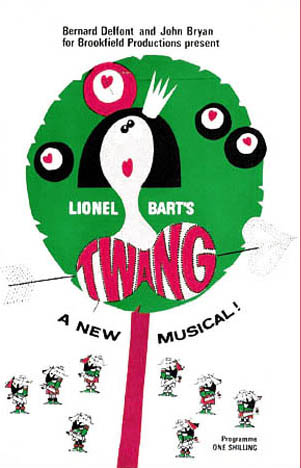 |
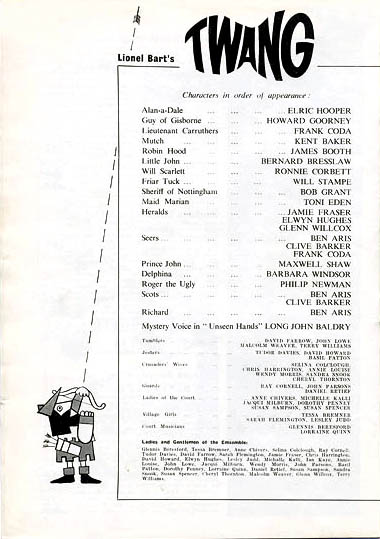
|
| BARBARA WINSOR QUOTE: "At one point I thought I'd had a great life and prayed that if I went to sleep I wouldn't wake up." |
|
|
We were stuck for an attraction at the Prince of Wales following the closure of ‘Passion Flower Hotel’, and although we had ‘Funny Girl’, starring Barbra Streisand booked in for April, we needed to fill the gap. Ray Cooney had mentioned to me that he wanted to present ‘Doctor at Sea’ in the West End, starring himself and John Slater. I told Bernie that I didn’t think it would be a long runner, but we might possibly get two or three months out of it.
I arranged a meeting in Bernie’s office with John and Ray, and we hammered out a deal. Ray has always said that the deal was so onerous, that they would have had to play to capacity to break even. This was of course, an exaggeration, but certainly, if the show had worked, the theatre also would have done well – which is fair enough. Sad to say, it didn’t; it closed after twenty-six performances, which still left us with a gap, so we hurriedly filled in with ‘Saturday Night and Sunday Morning’, produced by Michael White and directed by Frank Dunlop. This was the stage version of the film. Once again - no luck. It only ran for thirty-eight performances, so we still had an empty theatre.
We were asked to see a play by Phil Hyams, who was a great friend of Bernie’s. Phil and Sid, his brother, had a chain of cinemas in the 30s, which were, I believe, the first to mix variety and films.
Phil knew Bernie since he had appeared on some of their variety bills with his act, Delfont and Toko. Phil and Sid subsequently moved into the property business, and became very successful. Phil still retained an interest in the theatre; he was one of the people backing the Thorndyke theatre, Leatherhead, which was run by Hazel Vincent-Wallace. The theatre had just opened with a play, ‘Tom Jones’, which was loosely based on the film. It was a big success at Leatherhead, but this was of course a theatre supported by local people, who obviously had a vested interest in any show which was presented there.
Phil asked Bernie if he could have a look at the show, to see if there was any possibility that it might work in the West End. At Bernie’s request, I went to see it with Phil. I considered that it was pleasant enough, but didn’t think it would exactly barnstorm the West End. However, since we did have a gap to fill at the Prince of Wales, I suggested to Bernie that we might give it a whirl. Phil was very happy with this, and put up most of the finance.
We changed the title to ‘Beset by Women’. Keith Barron played the lead, and the rest of the cast were solid actors, without being known names. It opened at the Prince of Wales on 9th March. The critics considered that it was more suitable for provincial theatre than the West End, which I suppose was fair comment; it closed after twenty-one performances. So, we’d had three unsuccessful plays in a row, but at least we filled the gap until ‘Funny Girl’ was due to open. My meeting with Phil Hyams was to prove later on, to be most fortuitous.
|
|
|
We booked ‘On the Level’ into the Saville theatre; book and lyrics by Ronald Millar, music by Ron Grainer and directed by Wendy Toye. A young girl was plucked from the chorus, given a song to sing called ‘Bleep, Bleep’ and stopped the show. It was Sheila White. Although she had started in the business as a twelve year old in ‘The Sound of Music’, this was a big breakthrough, and it started her off on a very successful career.
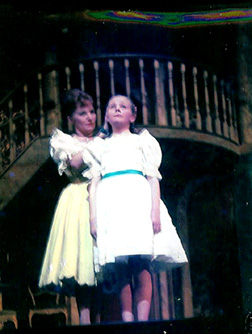 Sheila White aged 12 as Brigitta in
Sheila White aged 12 as Brigitta in
'The Sound of Music' with Jean Baylis |
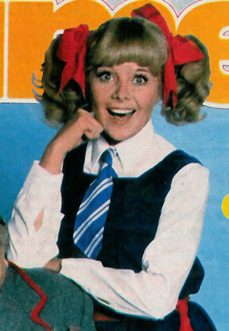 Sheila White 'Bleep Bleep' -
Sheila White 'Bleep Bleep' -
'On the Level' |
On 1st March we also co-presented with Geoffrey Russell a musical called ‘The Matchgirls’ at the Globe, now the Gielgud theatre. Book and lyrics by Bill Owen, (of subsequent fame as Compo in ‘Last of the Summer Wine’), starring Vivienne Martin and directed by Gillian Lynne. This was based on a true story and was set in Bryant & May’s factory in the East End of London in the 1880’s. It was about a fight against the appalling working conditions suffered by the women, some of whom were affected by the phosphorous used in making the matches. They were working fourteen hours a day for a pittance, which was reduced even further by a system of fines. With the encouragement and advice of a lady called Annie Bessant, who was well-to-do and a writer of newspaper articles, 1,400 women went on strike. After a few weeks they won; the company improved the working conditions and ended the fine system.
Peter Bridge was planning to present a musical called ‘Strike a Light’ which was based on exactly the same subject. In spite of all our entreaties that having two musicals with the same story running at the same time was not a good idea, Peter Bridge was too heavily involved to back out, so it opened at the Piccadilly theatre on 5th July. Neither show was successful; not a great piece of timing by either of us.
|
|
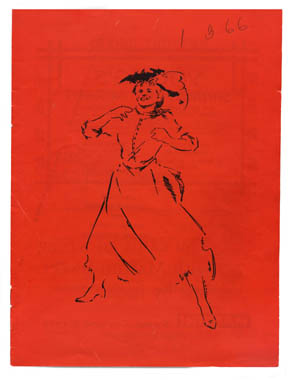 |
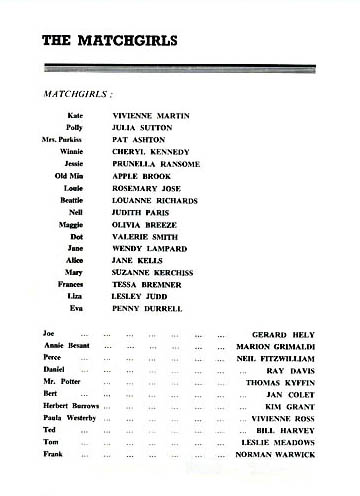
|
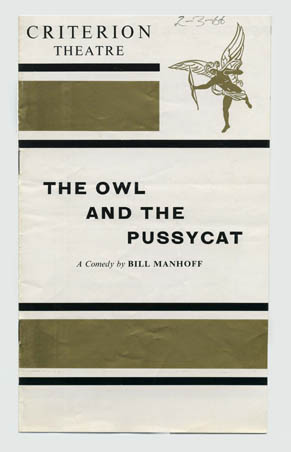
|
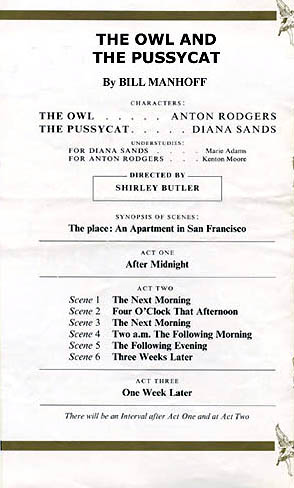
|
Barbra Streisand had just come to the end of her run on Broadway, in the phenomenally successful musical, ‘Funny Girl’. During this, she became one of the biggest stars in the world. She was scheduled to do a concert tour of one night stands across America, at a fee of $100,000 a night, but there was a gap in her schedule, and regardless of money, she wanted to appear in ‘Funny Girl’ in the West End. We were fortunate enough to be the management to present her, in association with Arthur Lewis and Ray Stark, (whose wife was the daughter of Fanny Brice, the original real-life Funny Girl).
Barbra was happy for the show to be presented at the Prince of Wales theatre. She already knew it from when Elliot Gould was appearing there in ‘On the Town’, but she could only spare twelve weeks of her time for the run of the show. We knew that with a short run, we couldn’t possibly recover the cost of a major musical and pay her. ‘O.K’, she said. ‘Just pay me £1,000 a week, which will help towards the expenses of my flat and my maid etc., but I will only do seven shows a week’. We calculated that we could just about get our money back and make a small profit, if we played to capacity. But the money wasn’t the issue. The prestige of presenting Barbra was the overriding factor.
To come over to London with her, and recreate their roles from the Broadway production, were Kay Medford and Lee Allen. The rest of the cast, and the male leading role (which was played by Sidney Chaplin on Broadway, and subsequently in the film by Omar Sharif), were to be cast in London.
After a great deal of searching, Michael Craig was finally selected as the leading man. He was very charming and handsome, and had played several leading roles in films .The fact that he wasn’t a singer didn’t matter, since the vocal demands of the part were minimal.
At that time, the absolute top price for a ticket in the West End was two pounds, and we spent days agonising if we could break the price barrier. We finally grasped the nettle, and charged two pounds five shillings, but we were very worried that there would be price resistance. (These days it costs more for a programme).
We needn’t have worried - we didn’t have to spend a penny on advertising. As soon as we made the press announcement, we were besieged with letters - the phone lines were jammed and there was a permanent queue, which stretched round the block for the box office. The going price by ticket touts on the pavement outside the theatre was twenty pounds per ticket, and we had been worried about charging two pounds five shillings! We could have made a fortune, if we had only anticipated the fantastic demand to see Barbra.
We agreed with Barbra that among the previews, we would do a special free show on Sunday, which would only be for theatre people working in the West End. Everyone was invited, but we had to limit the numbers of tickets allocated to each theatre, since we could have filled the Prince of Wales theatre, (which seats 1,200), five times over. I can’t recall that there was ever such an event staged purely for pros. The evening was electric - surpassing even the subsequent first night.
After the first night, we arranged to have a party in the very large stalls bar. Unfortunately, it was not big enough to cope with the number of people we had to invite, so we had to take over a pub which was just across the road, as well. Barbra, being the main attraction, flitted backwards and forwards between the two places. She insisted that she organised the catering for the party, and among the delicacies available was a mountain of hot dogs, which she had flown in especially from New York.
Barbra had the reputation of being difficult and a control freak. Well, it is my experience that 99% of star performers aren’t difficult if you give them what they want, and since they had created their own stardom, and knew what was right for them, providing it is not totally beyond reason, why not?
She guarded her musical like a lioness guarding her cubs. Each night after the curtain came down, she would have a meeting onstage which would be attended by the musical director, ballet mistress, stage management, sound operator, the heads of all technical departments and on many occasions, me. I can’t recall any lack of validity in any of the notes she gave.
When she first arrived in London, I took her to see the dressing room she was to occupy, which consisted of her make-up room, which was about 5ft. by 6ft, a sitting room, which was 7ft by 5ft, a toilet and shower. I was nervous that she wouldn’t consider it grand enough for her, although we had decorated it as best we could. I opened the door and showed her in. She peered around the two miniscule rooms, whilst I nervously explained we had done the best we could. Instead of the explosion I had expected, she said, ‘Oh Richard, you have given me a lovely little doll’s house. Thank you’.
Because we were pushed for time, the photo call for publicity photographs could not be specially posed, but had to be taken during a dress rehearsal. I had heard that she was paranoid about what pictures were taken of her, but when I took the proofs to show her for her approval, she was particular, but most understanding. She even asked me what I thought of her selection, although this was probably just politeness. In any event, who was I to disagree? She didn’t mind any shots that showed her nose to be rather large. In fact, as she sang in a song many years later, ‘I kept my nose to spite my face’. Maybe she was genuinely happy with it, or maybe she felt if she had it altered in any way, it might affect her singing. But to compensate, if that was necessary, she had one of the most stunning figures I have ever seen. One of the pictures taken of her used to have pride of place at the Prince of Wales theatre, but when the theatre was refurbished in 2004, it vanished.
While she was appearing at the Prince of Wales, stories abounded about how difficult she was - all untrue. The press would constantly ring me and everyone connected with the show, to try and get an adverse quote. I’ll give you a sample of a call to me. ‘Is it true Miss Streisand will not let anyone have a dressing room on the same floor as her?’ Answer: ‘there are no other dressing rooms on her floor’. Question: ‘is it true she won’t let the rest of the cast use the same staircase as her?’ Answer: ‘her dressing room is next to an indoor fire escape staircase, which leads down to the side of the stage, and as she has a lot of quick changes, this is her fastest route’. Question: ‘is it true that she insists on carpet being laid from her dressing room to the side of the stage, for her to walk on?’ Answer: ‘yes. Most of her dresses are long and flowing, and she wants to keep them clean by not trailing them along stone floors’. Question: ‘does she call everyone on stage every night in order to tell them what to do?’ Answer: ‘no. She has been given artistic control of the show, like a director, and in order to maintain the integrity of the production, she has a meeting on stage each night, with all the heads of the various departments, in order to run over any problems which may have arisen during that evening’s performance’. And so it went on. To the best of my knowledge, the press never got an authentic bad story.
I became rather friendly with Barbra, and sometimes, if Elliot Gould, her then husband, was not in London, we would go out together. On several occasions I took her to the Curzon House club, which was a very up-market restaurant and casino. On one occasion, she asked me if I knew how to shoot craps (play dice). When I said I didn’t, she said, ‘Okay, I’ll teach you - come with me’. We went to the dice table and started to play, with her explaining the rules to me. After a short time, Julie Styne, the composer of ‘Funny Girl’, who happened to be in the casino, (when wasn’t he?) joined us.
Julie loved to gamble. I am told he spent most of the royalties he earned from the marvellous musicals he wrote, on dice tables across the world. There I was, between Barbra Streisand and the great Julie Styne, the composer of ‘Funny Girl’, ‘High Button Shoes’, ‘Gentlemen Prefer Blondes’, ‘Gypsy’, ‘The Bells are Ringing’, ‘Peter Pan’, and many other songs, including ‘Three Coins in a Fountain’, ‘It’s Magic’, ‘Time after Time’, etc. Julie used to modestly say that without the rendition, there is no song. With people like Barbra Streisand, Ethel Merman in ‘Gypsy’, Carol Channing in ‘Gentlemen Prefer Blondes’, and Judy Holliday in ‘Bells are Ringing’, he certainly had plenty of high-class renditions.
Barbra said, ‘Julie - Richard doesn’t know how to shoot craps, so I’m teaching him.’ Julie said, ‘I’ll teach as well, because I know more about it than you do’. So there I stood in between them - Barbra saying, ‘Do this’ and Julie saying, ‘No, don’t do that - do this’. And so it went on for an hour or so. I was slightly embarrassed that at the end of the lesson, they had both lost and I had won.
On another occasion when Elliott Gould was in New York, Barbra asked me to have dinner at Trader Vics; ‘just a few friends, and bring your wife’. Lynda was delighted to attend, but wasn’t too happy about Barbra splitting up couples and sitting next to me, while Lynda was at the other end of the table.
I once asked Barbra which of the various entertainment mediums she enjoyed the most. ‘Not theatre’, she said, ‘because I’m a little self conscious and nervous – and, because it’s live. You can’t correct what you are doing. For better or worse, it’s done until the next time. Television is the same - a lot of it is live, or if it isn’t, there are only a limited number of re-takes you can do. Concerts you can’t retake and you are to a certain extent, in the hands of others, particularly the sound operators. What I like most is recording. It’s something you can do over and over again until you get it right, and there are no outside distractions’. This was of course before she started making films. So I suspect her answer today would be filming.
Barbra was nominated for the Evening Standard award for Best Actress in a Musical. The presentation was to be at a luncheon at the Savoy. Elliott was away, so I arranged a car and picked her up from her flat. When we arrived at the Savoy, I took her to the entrance of the restaurant where the award was to take place and said, ‘Here you are Barbra’, and turned to leave. ‘Where are you going?’ she asked. ‘I’m not invited’, I replied. ‘You are, I’m inviting you’. I said, ‘You can’t. All the seating arrangements have been made’. ‘I’m not going in without you’, she said. ‘I don’t want to be on my own’. After a couple of minutes, I managed to persuade her it would not be in my best interests if I was seen as trying to crash the awards, by using her. She was mollified by this, but said, ‘Well, if I win, perhaps we can have a celebration drink later’. She did of course win, and we did have the drink.
About seven weeks into the run, one Friday afternoon Barbra asked me to go and see her backstage. ‘Richard’, she said, ‘I’ve got something to tell you. I’ve been to see my doctor today, and he tells me I’m pregnant. If I don’t want to risk losing the baby, I mustn’t play two shows tomorrow, or at any time’. With this bombshell in my lap, I didn’t know quite what to do. Bernie Delfont’s office was also in the theatre, so I said, ‘Look Barbra - I don’t want to be the one to break the news to Bernie Delfont and Arthur Lewis. Will you come and tell Bernie yourself?’ She agreed, and we went up to Bernie’s office.
When she gave him the good news, he was dumbstruck for a moment; he then said, ‘Barbra, you can’t do this. We are totally sold out, and since it is a limited run, we can’t offer your fans tickets for another performance’. ‘I’m sorry’, she said, ‘there’s nothing I can do about it. It’s an act of God’. Bernie replied, ‘It’s not an act of God - it’s an act of your husband - Elliot Gould!’
When the smoke had cleared, Barbra remained adamant that she was only going to play one show on Saturdays. After she left, Bernie, Arthur Lewis and I went into a huddle. What were we to do? We couldn’t give them tickets for another performance - they’d paid to see Barbra. We would have to give them their money back. This of course meant that all our budgetary plans had gone out of the window, and we were now going to make a big loss. Also there was no way of reaching the people who had bought tickets, (this was pre-computer days).
The three of us were sitting there with our heads in our hands, when suddenly it came to me. ‘Gentlemen’, I said, ‘I’ve got the answer. Which performance in the West End for any show always does well, regardless of how poorly the show is doing? Saturday night! So we’ll get Barbra to play the matinee tomorrow, and put the understudy on in the evening. We’ll probably keep the majority of the audience, since there’s nowhere else for them to go to, and they won’t want to go home.In any event it's a great show even without Barbra ’. They asked, ‘Are you sure it will work? It seems a little extreme’. ‘I guarantee it’, I replied.
Only we three, Barbra and her understudy, who was sworn to secrecy, knew that she was going to miss a performance the next day. My plan was that we played the matinee as normal, with no-one knowing that she was going to miss the evening performance. Then, we opened the house for the second performance. Since there had been no way of informing the audience before they turned up, we still held back the information, since if we told them on the way in, there would have been pandemonium in the foyer, and the result might have been that no-one could get through to be seated. We would never have been able to get the curtain up, so, even those who wanted to stay and see the understudy, would have been disappointed. With the audience seated, just before the overture was due to start we would give them the news, and say anyone who wanted, could have their money back.
Bernie and Arthur nodded and said it might work, but they would leave me to deal with it, because they both suddenly remembered they urgently needed to go to the country for the weekend.
The day dawned, and I had drawn several thousand pounds out of the bank for possible refunds. After the matinee was over, I took the box office staff, and Brent Maxfield, the manager of the theatre, into my confidence and swore them to secrecy. Now, I thought, who is going to tell the audience? Brent, the manager, will be positioned in the foyer ready to deal with possible refunds - I wasn’t really too keen on the idea of doing it myself. I know, I thought, and went to see Michael Craig in his dressing room. ‘Michael’, I said. ‘I’ve got a bit of bad news for you. Barbra won’t be on tonight’. When he recovered from the shock, I explained the reason and the strategy. ‘Now’, I said, ‘the only problem is, who is going to inform the audience? I would do it, but they don’t know who I am, so it would be better coming from someone they know. Would you like to do it?’ ‘I’m not sure about that’, he said. ‘Well, look at it this way, you are her co-star and they know you from all your films - they will really respect you for breaking the news’. I could see that he was beginning to accept this suggestion. ‘Do you really think so?’ he asked. Lying through my teeth, I said, ‘I’m absolutely certain’. ‘I’ll do it’, he said.
Cut to one minute prior to the scheduled commencement of the overture. Brent the manager is positioned in the foyer - the box office is ready with the cash - I am standing at the back of the stalls. Bear in mind that this audience have not only got tickets for ‘Funny Girl’, which are unobtainable, but they have them for Saturday night, which is like having the crown jewels. And doubtless, they have told all and sundry, and all and sundry are just a little bit envious. The house tabs part in the middle - Michael walks through as a star and takes his applause. He then makes the announcement. For about three seconds there was a stunned silence - you could hear the proverbial pin drop.
Then the storm broke - booing, shouting, ice cream tubes and programmes hurling at the stage. Michael shot back through the tabs, and as one man, the audience stood up, and poured like a tidal wave trying to get out of the auditorium into the foyer. Brent Maxfield who was waiting to greet them and arrange refunds, was swept back and was pinned three feet in the air on the front of the box office, receiving verbal abuse from everyone who could get near him. The mood was so bad, that at one stage that I thought it might become violent. After about half an hour everything settled down.
One third of the audience went on their way with their refunds and a very angry two thirds, remained. The overture was played, the curtain rose on the first scene – an empty backstage set and guess who was to make the first entrance? That’s it - the understudy, Lisa Shane. She was not very welcome and was booed by some of the audience. (It’s the first time I’ve heard of a performer getting the bird before they’ve done anything). I was now standing at the back of the stalls pretending to be a customer, since I had no wish to be the main event at a necktie party. I shouted in a voice as loud as I could, ‘give the girl a chance’. After a pause, there was applause and general approbation from the audience. The performance went ahead – Lisa gave a great performance, and like in all show business stories, received a standing ovation at the end.
On subsequent Saturday evening, even when the public were aware that the understudy was playing, we still had a full house. If you are wondering if Michael Craig ever forgave me, I doubt it.
We did consider trying to replace Barbra when it was time for her to leave, but decided that she would be impossible to follow, so we reluctantly closed the show when the time came. It was for me, one of the highlights of my show business career - to have worked with, and known, Barbra Streisand.
|
|
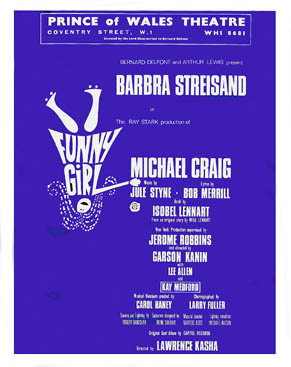 |
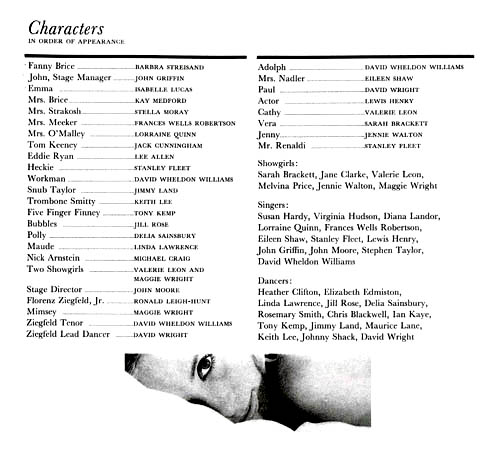 |
BARBRA STREISAND QUOTE: "I am simple, complex, generous, selfish, unattractive, beautiful, lazy, and driven."
Earlier in the year, following the closure of ‘Funny Girl’ at the Prince of Wales, we asked Shirley Bassey’s husband and manager, Kenneth Hume, if Shirley would consider appearing for a couple of weeks. He agreed on her behalf, but insisted that he should be the producer, saying that he knew just about as much as we did about putting a supporting bill together. Because we wanted Shirley, rather than argue, we agreed.
Shirley was to perform the second half only. In order to save money, Kenneth Hume cast the first half with the very cheapest acts he could find. It opened on 18th August. The first half was a disaster. The acts Kenneth had booked would have been struggling in a third rate working man’s club.
The relatively sophisticated Shirley Bassey audience were not prepared for what Kenneth Hume served up to them. After about ten minutes of tolerance, the natives started to get restless. ‘When is Shirley coming on? How much longer do we have to put up with this rubbish?’ Another five minutes; ‘If she doesn’t come on soon I’m going to the bar’, somebody shouted. The rest of the audience echoed this sentiment. Another five minutes - most of them did leave the auditorium; some to the bar and some just to stand in the foyer, or on the pavement outside.
The second half was a triumph for Shirley as usual. I went backstage after the show, as soon as the curtain came down, to find her berating Kenneth Hume up and down the side of the stage, for what he had done to her. It was not a very happy two weeks for the entertainers performing in the first half, although their time was cut dramatically – but we did sell out, and the bar takings were very good.
In April 1966 Leslie Grade suffered from a stroke. Lew was too busy with ATV to take over, and one of the other heads of the agency, Robin Fox, was ill. It was left to Bernie to fill the gap and take over as head of the Grade Organisation. Bearing in mind it was something Leslie really wanted, Bernie persuaded Michael Grade to give up his job as a sports journalist and join the agency under the wing of Billy Marsh.
Shortly after, the Chairman of EMI Sir Joseph Lockwood, and the Managing Director, John Reid, approached Bernie about the possibility of purchasing the Grade Organisation. Part of the deal was that because Leslie was not well, Bernie should run the leisure business on behalf of EMI. In return for this, EMI promised Bernie as much money as he required for show business investments, with a free hand on how to spend it. Both he and Leslie signed five year service agreements. The purchase price was £12m, most of which was shared between Lew, Leslie and Bernie. Bernie resisted moving to the EMI offices; he wanted to stay in his office at the Prince of Wales.
At the London Palladium we presented ‘London Laughs’ with Harry Secombe, Jimmy Tarbuck and Thora Hird; a very happy show. Harry and Jimmy got on very well together, sometimes playing practical jokes on each other.
There was one scene in which Harry Secombe and Thora Hird had to make an entrance on a horse and trap. Jimmy had been chatting to the man who looked after the horse, and casually asked him how he prevented the horse from misbehaving on stage. The gentleman told him that you don’t give the horse anything to drink for a long time before the performance, and you give him very little to eat. Under no circumstances must you ever give him any sweets, because within five minutes he’ll want to relieve himself. Jimmy said ‘Oh, is that a fact?’ and then just before the horse’s entrance the next day, when no-one was looking Jimmy fed it a handful of sweets.
Harry and the leading lady were happily driving across the stage, when suddenly the horse relieved himself. The lady was very embarrassed, but Harry quipped his way out of it. The next night Jimmy did exactly the same with the same result. This time the lady let out a shriek and said, ‘Oh Harry, he’s done it again!’ I think Harry cottoned on it was possibly Jimmy’s doing, but he couldn’t quite work out how.
We presented another musical later on in the year – ‘Joey Joey’, which starred Ron Moody and Vivienne Martin. It was the story of Grimaldi, the legendary clown; music, lyrics and story by Ron Moody, book by Keith Waterhouse and Willis Hall.
We opened in Manchester and had a very stormy ride. Ron was very dogmatic about the shape the piece should take, which I suppose was reasonable, given that it was mainly his brainchild, but this meant that there was a great deal of conflict between him and Arthur Lewis (the director), Keith Waterhouse and Willis Hall. It opened at the Saville theatre in October, and sad to say, in spite of a virtuoso performance by Ron, it was unsuccessful.
|
|
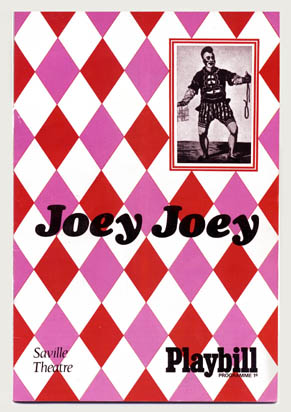 |
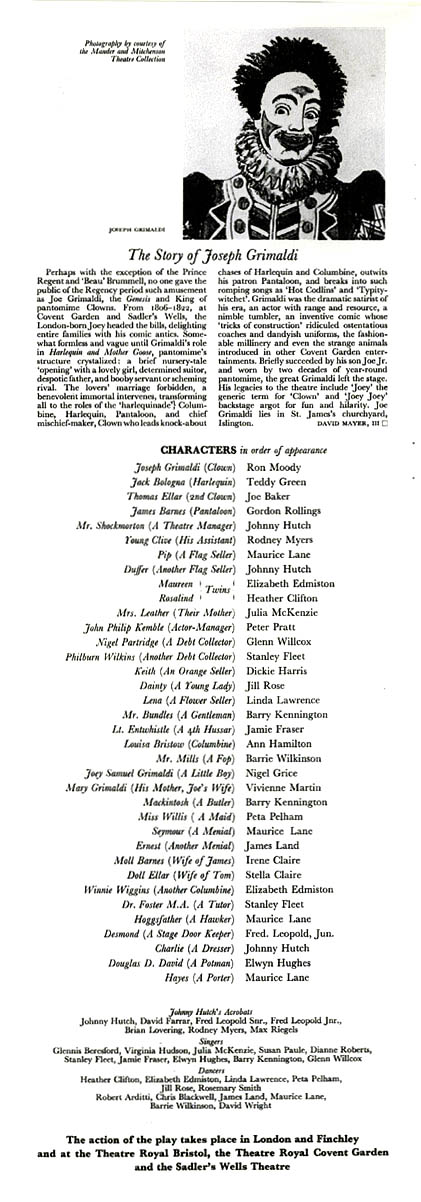
|
RON MOODY QUOTE - "For me, making the show work was getting belly laughs - like most variety artists. But the straight actor believes you fix your performance in rehearsal and that's it."
|
|
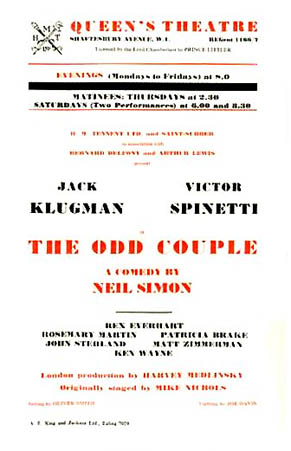 |
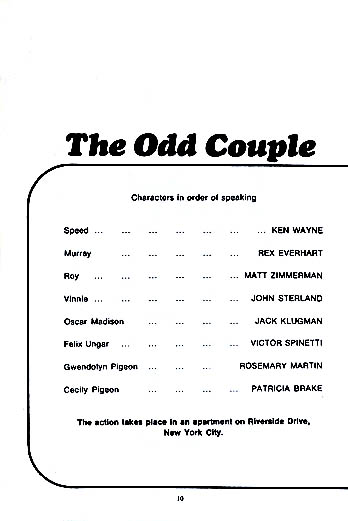
|
NEIL SIMON QUOTE: "If no one ever took risks, Michaelangelo would have painted the Sistine floor."
Our next production was a comedy review at the Prince of Wales in November entitled ‘Way Out in Piccadilly’ starring Frankie Howerd and Cilla Black. It was written by Galton and Simpson, directed by Eric Sykes with choreography by Irving Davies. The title was a trifle pedestrian. Galton and Simpson had suggested ‘Frank Incensed and Her’ which I thought was very clever, but might have been over some people’s heads. Apart from her singing, Cilla had to appear in sketches with Frankie. Cilla acquitted herself very well.
Frankie was born in York. His father, who was a Sergeant Major in the army, died when Frankie was three. He obviously had a taste for the theatre as a boy, since he joined a youth club dramatic society at the age of thirteen. When he was eighteen, he auditioned for RADA, but failed.
For the next few years he tried comedy in the army; when he was demobbed he appeared at the stage door canteen in London, where he signed for a touring show. He started to become famous in the radio show ‘Variety Bandbox’ , which he stayed with for several years, at the same time topping the bill at various provincial theatres. He then went out of fashion until there was resurgence of his career, when he appeared at the Establishment Club in London; following various television performances he was back once again at the peak of his popularity.
In deciding who to appoint as choreographer to stage Cilla Black’s numbers, as Paddy Stone was not available, my thoughts turned to his partner, Irving Davies, whose work I had seen in other shows, and I had been very impressed. Irving didn’t let me down; he did a great job. At one stage in the rehearsals, I remarked that one of his routines was a bit slow. The next day, I found Irving had invited Wendy Toye and two other leading choreographers to a rehearsal. Irving asked them in front of me, ‘Do you think the number’s too slow?’ He wasn’t very happy when they agreed with me. He was I believe, the very best person to work with Cilla, and they became enduring friends.
The show was an unqualified success; Frankie was on top form. One critic described him, ‘looking at the audience like a dishevelled moose’ – drawing them into his confidences – complaining about ‘him upstairs in the office’ - Bernard Delfont, and the fact that he wasn’t paying him enough - referring to me as the Deputy Fuhrer, saying that it was probably my fault that he was so poorly paid; generally indulging in all the wonderful asides that the public had come to love.
In actual fact, Frankie in real life was not a bit like his stage persona. He very rarely made jokes; in fact he was extremely serious. He was very bitter about the middle period of his career, when he was rejected, with very few people wishing to employ him. ‘It’s show business, with the accent on business’ he used to say. But apart from the bitterness he could be a generous friend. I was invited to his house to dinner several times by him and his loyal partner, Dennis. It was always entertaining; the time was spent mainly in swapping show business stories; the bitchier - the better.
Among the other things that happened during that year was England winning the World Cup on 30th July. On the day in question, I was playing with the Stage Cricket Club at the elite Hurlingham Club. While fielding on the boundary, I started chatting to a pretty girl who was on her own watching the match. She told me she was a member of the Hurlingham Club.
The two cricket teams were so keen to watch the World Cup, that they had installed a television set in the changing room, so when the time came for the kick-off, they agreed to have a break and watch the football – such was the excitement.
However, I had some excitement of my own, since the girl I was chatting to on the boundary said, ‘Don’t go and watch the football – come with me’, and took me to a secluded part of the Hurlingham Club grounds, where I had a much better time than watching England win the World Cup. This relationship continued for a little while and my friend, Peter Charlesworth, used to allow us to use the spare room at his flat in Holland Park Mews, although he was guilty on more than one occasion, of peering through a crack in the door to see what was going on.
There was an interlude at the end of the cricket match in question. The changing room was next to the mixed bar in the main building of the rather grand Hurlingham Club, and Bill Franklyn, my late landlord of Schweppes fame, mistook the doors, (one was to the changing room and the other to the bar), came running out of the shower stark naked into the mixed bar shouting: ‘Hello darlings – here I am!’ and retreated just as quickly.
We had a good selection of stars at the Talk of the Town this year; Cliff Richard and The Shadows, followed by Max Bygraves, Liza Minelli for her first cabaret performance in this country, (which although slightly tentative was brilliant), Pearl Bailey and Johnny Mathis. We once again had a gap at the Prince of Wales. Johnny had enjoyed himself so much at The Talk of the Town, playing to a London audience, that I asked him if he would consider expanding his act and do three weeks at the Prince of Wales. This he agreed to do. He opened on 7th August, and sold out for twenty-nine performances.
For the Royal Variety Performance it was wonderful fun; watching the rehearsals with stars including Frankie Howerd, Tommy Steele, Jerry Lewis, Sammy Davis, and a special novelty act called Marvo and Dolores, who were actually Morecambe and Wise doing a cod magic act.
Some weeks before this Royal show, Bernie’s mother Olga said: ‘Bernie, each year you’re in the box with the Royal family but I never get to meet any of them. The neighbours are beginning to talk’. Bernie said, ‘We’ll soon solve that problem Mum. This year you can present the bouquet to the Queen Mother when she arrives at the theatre’. When the time came for the presentation, the Queen Mother, being very charming, said to her: ‘Oh, Mrs Winogradsky, I’ve heard a lot about you and your three boys. You must be very proud of your children’. Olga replied, ‘Oh, yes I am – and you must be very proud of yours’.
|
|
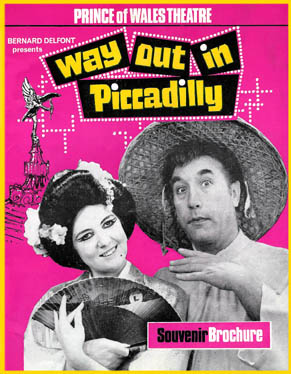
|
| |
|
Frankie Howard |
Cilla Black |
Glenn Melvin |
The Charlivels |
Peter Vernon |
The Irving Davies Dancers |
| |
Written by: Ray Galton
Alan Simpson
Eric Sykes
Directed by Eric Sykes
Music Numbers staged by Irving Davis
|
| |
| |
|
FRANKIE HOWERD QUOTE: "Titter ye not- oh well, please yourselves."
|
|
1967
|
Bernie Delfont made me a director of Bernard Delfont Limited during this year, saying he was rewarding me for my efforts, and as an additional bonus, he gave me a very generous cash present. He knew that I was in the process of getting a divorce, and asked me where I was going to live when I finally split with my wife; I told him I hadn’t sorted that out yet. ‘I’ve got just the place for you’, he said. ‘My mother has a two bedroom flat at 65 Wimpole Street’; (Michael Grade was brought up by his grandmother, Olga, in the smaller of the two bedrooms after his mother ran off with another man, leaving him with his father. Leslie Grade not being able to cope with him on his own, asked Olga to look after him), ‘and my brothers and I have decided that as she is getting older and frailer, she shouldn’t be left on her own, so we’re arranging for her to have a service flat in the Grosvenor House. We are renting the flat in Wimpole Street at the moment, but I know that my old friend Phil Hyams who owns the building is about to sell the flats off’.
Before she moved out, Bernie took me to see his mother, and had previously said, ‘No matter what she suggests, just say yes to it - I’ll take care of it’. I met Mrs Winogradsky at the flat with Bernie; she took me round and started trying to sell me the contents she wasn’t taking with her, i.e. curtains, carpets etc. She drove a very hard bargain, but I saw Bernie out of the corner of my eye nodding his head, so I said ‘yes’ to everything. When she had finished compiling my shopping list, she said to me; ‘I know I’ve made a tough deal, but you must understand that I’m trying to earn a few pounds, so I can leave it to my children’. Later on, Bernie arranged that the excessive prices were reduced.
I moved into the flat, and shortly after, Phil Hyams who I’d met when we were presenting ‘Beset by Women’, phoned me and said: ‘We’re selling the flats at £14,750 each, but as you are a good friend, in spite of my General Manager’s objections, you can have yours for £10,000 – but whatever you do, don’t argue with any of the contents of the lease, just get it signed as quickly as possible’.
I needed a lawyer to conduct the transaction for me; I went to someone who was very highly recommended, Michael Mitzman. I explained the situation to him, and with great speed he conducted the transaction. Michael has remained my lawyer and friend ever since, as well as undertaking the task of being a trustee for two of my children’s settlements. I consider myself very lucky indeed to know Michael. For all the care and attention he has given to me, and in particular to the trusts; for this I am very thankful. I know that he has never charged me at the full going rate. He has also been most kind and considerate of all the problems with Matthew, my autistic son, who was born in 1986. Thank you, Michael.
On October 3rd we purchased the Coventry theatre from Sam Newsom. I think he saw us coming. The theatre had been very successful during the previous years, running pantomimes and seasonal shows in spring and autumn, together with touring productions. However, theatregoing was slowly going out of fashion, and we struggled hard for many years, trying to make the theatre commercially viable, before giving up.
During the last ten years of our tenure, virtually every large theatre in the provinces received a subsidy from the local authority; but Coventry steadfastly refused to help us with our problems. They obviously weren’t particularly concerned whether the theatre continued or not. To be fair, I believe they felt they were contributing enough to the arts, by their support of the newly built Belgrade theatre.
‘Way Out in Piccadilly’ continued to run. Cilla, having fulfilled her contract left after six months, and her place was taken very successfully by Anita Harris. The show finally closed after 394 performances. Once it had closed, it allowed Frankie Howerd to indulge in his passion for dog racing.
Every night when there was racing at the White City, Frankie would be there in the restaurant, holding court at the premier table opposite the finishing line. Bernie and I used to go together occasionally and sit at a nearby table. Frankie would always approach us with his lugubrious expression, and usually tell us some tale of woe or other. Also, always present in the restaurant was Al Burnett, who had been there rain or shine for many, many years. He had a dog called Pigalle Wonder, which had won the Greyhound Derby some years earlier.
Al was a comedian who had spent many years in America during the 20s. During his time there, apart from working as a comic, he became involved in the bootlegging business. He returned to England and worked in variety theatres, and then ran nightclubs.
His first club was at 18 Greek Street called The Nut House, which became one of the most successful clubs in London. It was destroyed by a bomb in an air raid, but he soon found new premises, and reopened in Regent Street. All the business side of the club was managed by his delightful wife Celia, whom he had married just after the beginning of the war. After a short time, the club was closed down for harbouring undesirables, which was rather draconian. Al decided he wanted to open another club, but since legally he was not entitled to, Celia became the owner. It was called the Merry Go Round, and Celia ruled it with a rod of iron, as Al was frequently away entertaining the troops with ENSA. Although at the time Celia was busy looking after their son Barry, who had just been born, (Barry later on became an extremely successful agent and a close personal friend), and she managed the club extremely well. She took care of all the administration and Al, when he was there, worked as MC and comedian.
Shortly after the war, they opened the Stork Room. During the 50s, all the big stars would visit the Stork, to relax in the evenings. Al and Celia were making a great deal of money, but as fast as they made it, Al would lose it at the dogs.
Later on, they also acquired the Pigalle, which was a club on a much larger scale. In 1960, following urging from his teenage son, Barry, (who thus proved his powers of persuasion which were so useful to him in his later years as an agent); he signed Sammy Davis for his first appearance in this country, at the Pigalle.
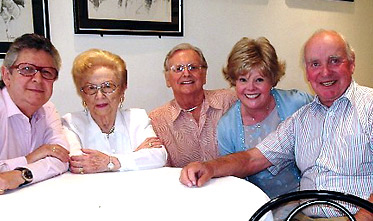
Barry, Celia, Richard Wellington, (Barry's partner), Sheila and me -
needless to say this was taken many years later
Al and Celia shoehorned every conceivable body into the Pigalle’s limited available space. They set up long tables and everyone sat side by side, with hardly an inch in between them; the diners could barely lift their elbows to manoeuvre their knives and forks for the dinner which had been laid on. There were two dishes; one was chicken in a basket – I’ve forgotten what the other one was, but it didn’t particularly matter. We could put up with the food which we almost couldn’t get up to our mouths, because we were being entertained by the great Sammy Davis. Bernie subsequently presented Sammy on 21st July 1961 at the Prince of Wales for fifty-five performances, which were a total sell-out.
Al was a great friend of Bernie's. When Bernie was in terrible trouble financially, he would lie awake in bed thinking the only way to get out of trouble was to win the football pools.
In the early hours of the morning he would wait for a sound - the sound of Al Burnett on his way home from the clubs - pushing pound notes and fivers through the letterbox onto Bernie’s carpet. This kept Bernie going from day to day, and he never forgot Al’s generosity.
Years later when the Pigalle had faded a bit and Al wanted to sell it, Bernie arranged for it to be purchased by Charles Forte. We then changed its name to the Carousel, and tried to turn it into a mini Talk of the Town, with Robert Nesbitt producing the shows; unfortunately, it was not a success.
Al’s wife Celia who was such a tower of strength, tells the story of when she was living in Brighton with their son, Barry, whilst Al who was working in London and staying at the Mapleton Hotel in Coventry Street. One day Celia asked Al for some money for some shoes for their son, Barry. All pleaded poverty and said he couldn’t afford it. A few days later, she went up to London to visit him and when she knocked on the door of his room at the Mapleton and said, ‘Al, it’s Celia’; she heard the sound of furniture being moved about. What’s going on, she thought. Has he got a woman in there?
When Al opened the door of the tiny room, she noticed that the bed was wedged against the front of the wardrobe. Well, she thought, I’m sure he hasn’t got a woman locked in there, although it seemed a little strange. She remained in the room while Al went down stairs, and as soon as he left, she pulled the bed away from the wardrobe, opened the doors, and bundles of white fivers fell out. She put them all back. When Al returned, she said to him; ‘you told me you couldn’t afford shoes for Barry - what about all this money in the wardrobe?’ ‘That’s not shoe money’, Al said, – ‘that’s gambling money’.
At the dogs every night, Al would have a man posted at each of the four bends of the track. At the end of each race, they would all come and report to him as to what had happened at the bend - i.e. number five impeded number two, number six bumped into number one, etc. This gave Al a clear picture of what had happened. Using this information for each race, he used to print his own form news sheet. He knew everything there was to know about dogs - he lost millions.
When Bernie and I were at the dogs, he would come up before each race to us and say to Bernie, ‘Back so and so in the next race – it’s a certainty’. If it won, he would return and say, ‘I told you so’. If it lost – he stayed away. Regardless, Bernie had very good cause to be grateful to Al for all the help given to him in the past.
There was a brief moment when Bernie thought he wouldn’t need Al’s help anymore. One day he was sitting at his desk with his head in his hands, when there was a knock on his office door and his old retainer, Harry Shuff, who was in charge of the stores where all Bernie’s scenery and costumes were kept, came in and said, ‘Can I have a word with you governor; I’m afraid I’ve got some bad news’. ‘Oh dear’, Bernie said, (thinking no, not more problems), ‘what’s that’. ‘There was a fire at the stores’, Harry said. Bernie’s heart leapt - all that insurance money he thought. Harry then said, ‘But it’s alright governor - I managed to put it out’. Hiding his disappointment, Bernie pressed a fiver into his hand and said, ‘Thank you very much Harry, well done’. Back to waiting for Al Burnett’s visit in the middle of the night.
Lord Ted Willis asked Bernie if he would present his musical ‘Queenie’, book and lyrics by Ted Willis, music by Dick Manning and Marvin Laird. Arthur Lewis directed and we presented it at the Comedy theatre. It starred Vivienne Martin and among others, also featured Bill Owen and Paul Eddington. Vivienne, who assured me that she had never missed a performance in her life, came to watch me playing cricket, got sun stroke and was off. Needless to say, Arthur Lewis blamed me.
‘Queenie’ was not a success and we followed this with a production called ‘A Day in the Death of Joe Egg’. It was first presented at the Glasgow Citizens theatre in May, and I tried to acquire the rights, but Memorial Enterprises, which were run by Albert Finney and Michael Medwin, got in first. This was a success.
Slightly earlier in the year, John Hanson was out touring with a production of ‘The Desert Song’. It had been staged with a very limited budget, and it showed. Billy Marsh, whose client was John Hanson, the star of the show, knowing that the Palace theatre was available, decided he would try and sell the idea of a West End production to Bernie. Bernie would have none of it but Billy persisted, and kept reiterating the fact that it was very cheap.
Bernie finally capitulated, and it was agreed to present it at the Palace theatre. Bernie turned to Michael Grade who at that time was assisting him, and said, ‘I can’t believe what I’ve just done. I’ve sold this third rate production to Bernie to be put on in the West End’. It opened at the Palace on 13th May. It was so bad that it became a cult thing to see and was successful.
We booked the revival of ‘The Boyfriend’ into the Comedy theatre, and it enjoyed a successful run.
|
|
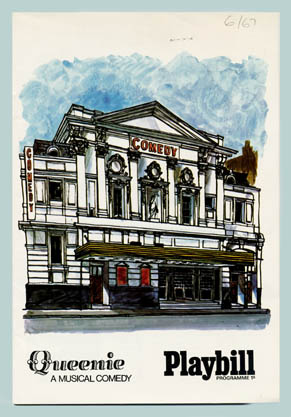 |
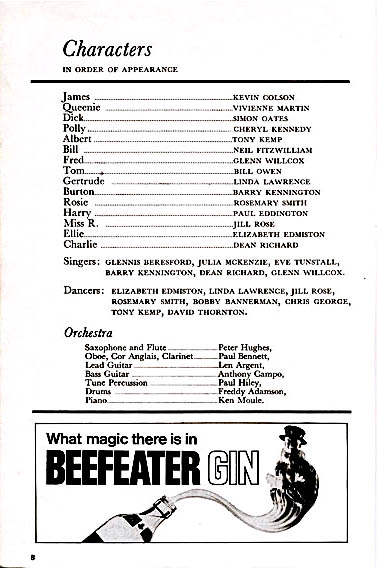 |
| |
|
Bernie had acquired the rights to two musicals, ‘Sweet Charity’ and ‘Mame’. They came as a joint package from the producers Joe Harris and Bobby Fryer. No other producer wanted the joint package – they all wanted ‘Mame’, but not ‘Sweet Charity’. Bernie took the opposite view – he thought ‘Sweet Charity’ more likely to be the most successful. We co-presented this with Harold Fielding, starring Juliet Prowse. The book was by Neil Simon, music by Cy Coleman and lyrics by Dorothy Fields. The original production was staged and choreographed by Bob Fosse.
Rod McLennon played the juvenile lead, and Juliet Prowse’s two side-kicks were beautifully played by Paula Kelly and Josephine Blake A member of the chorus playing a small part was someone who was later on to stumble across a bear in a cupboard – Roger de Courcy. The bear – ‘Nookie', took charge of Roger’s career and made him a success. The show was a big hit until Juliet’s contract came to an end and we had to replace her. The business then fell away and the show closed shortly afterwards.
During this year I met Ann, a former Miss World; we had a brief fling which came to an end when I invited her to a party. She said she couldn’t come because she had made a date to see a girlfriend. Not knowing I was going to be at this particular party, she turned up on the arm of Rod McLennon, whom she subsequently married and later divorced.
The marriage nearly didn’t take place. Shortly before, Rod was dating Juliet Prowse. When Juliet went back to Las Vegas after finishing in her run in ‘Sweet Charity’, she arranged that Rod would fly out later to join her; they were to get married the next day. The day before he was due to leave, she sent him a telegram telling him it was all off. She had become involved with Frank Sinatra. I assume she thought he was a better catch.
|
|
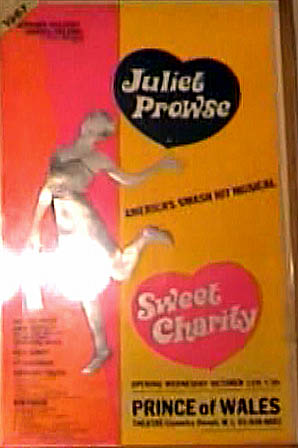 |
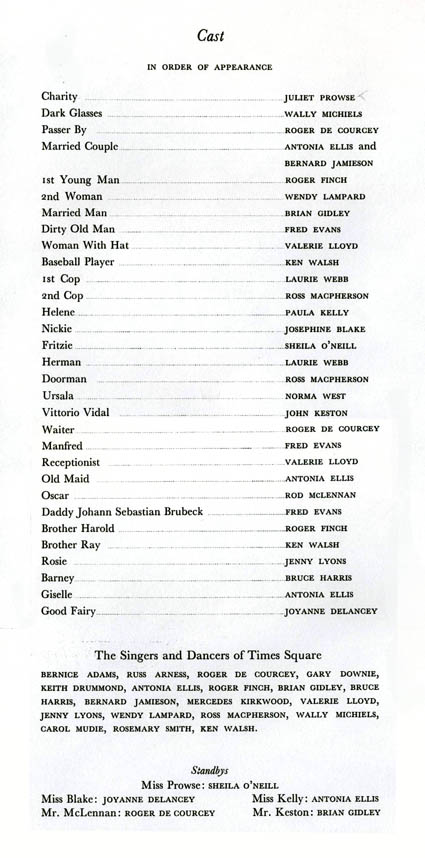 |
JULIET PROWSE QUOTE: "I was as much flattered as I was in love. He (Sinatra) was a complex person, and after a few drinks he could he very difficult."
Our next production was to be ‘The Four Musketeers’ starring Harry Secombe, book by Michael Pertwee, music composed by Laurie Johnson with lyrics by Herbert Kretzmer. This was planned to be the largest musical seen at the Theatre Royal, Drury Lane since before the war, almost with expense no object. The magnificent costumes were designed by Loudon Sainthill. Sean Kenny designed the sets which used the entire depth of the stage, the largest in London, and big enough to have room for two large musicals, one behind the other.
All the under-stage machinery which had been used before the war for earthquakes, train crashes and floods etc., was refurbished and brought back into use. The stage was specially reinforced with five tons of steel girders. The grid which contained all the heavy flying items also had to be reinforced. The scenery on stage level consisted of a complex central revolve, and several twenty-five feet high trucks which could twist, turn, move up and down stage and interlock; all worked by radio controlled remote control. To control these juggernaughts was a very demanding task. Any mistake in movement could crush the performers.
The person in charge of this was a brilliant Stage Manager called Peter Roberts. He later on became our Production Manager with Bernard Delfont Ltd, and later on, with Cameron Macintosh. He was ably assisted by Stella Richards, the Deputy Stage Manager, who later went on to work with Harry Secombe’s company.
Stella went on to become a very successful agent; for many years among the clients she represented were Gillian Lynne and Gemma Craven. Among her current list of clients are the Sherman Brothers, Sheila O'Neill, Matthew Kelly and Andreane Neofitou.
The show opened in December. The cast of seventy led by Harry Secombe, included six film stuntmen who were needed to perform the various fights, 25 foot falls from the trucks onto the stage and various other hazardous stunts. The rehearsals were extremely difficult because of the size of the cast, and the technical problems. One of these was that the stage for some unknown reason, in certain areas had become as slippery as glass. This was extremely hazardous, because the mountainous scenery was moving about all over the stage, and large trap doors were opening across the front of the stage during the action.
We were terrified that someone would either slip and be crushed by the scenery, or would skate into one of the open traps. We tried everything we could to alleviate this by using the old trick of washing the stage with Coca Cola, which usually resulted in giving a very grippable surface. This didn't work, so it was thinking caps on again. We finally discovered what was happening. During the stage fights, actors were being hit over the head with prop bottles which were made out of sugar glass which shattered. This was then being ground into the stage and polished by the feet of the performers. Exit the sugar glass.
For various reasons, seven of the principle characters left between the beginning of rehearsals and two months into the run. In fact, the comings and goings were so frequent that it felt as we needed not a stage door, but a revolving one.
The first run through we had lasted for five hours, but fortunately, we had a long rehearsal period in the theatre to work on the show. Through it all, Harry Secombe’s patience and good humour shone like a beacon. During the rehearsals, one of the actresses, a black girl who possessed a very fiery temperament, took violent umbrage to one of the actors in the show, accusing him of trifling with her affections.
Harry, Peter Coe and I were sitting in the stalls watching one of the crowd scenes being rehearsed onstage when suddenly, the actress produced a steak knife she had appropriated from a local restaurant, and started trying to stab the actor. He ran downstage, jumped over the orchestra pit and ran up the centre aisle with her pursuing him - attempting to stab him as she ran.
Harry, Peter and I, with our mouths wide open, watched as they shot past us and out of the emergency exit at a rate of knots. (The actor in question tended to be rather flamboyant). After a pause, Harry said, ‘Whoever heard of using a steak knife on ham?' The actor escaped on that occasion, but I’m told she got him with a full milk bottle later, the contents of which splashed over Stella Richards who was nearby. Stella was wearing her mother's fur coat at the time. He mother was not best pleased. My friend, the ballet mistress, had earlier offered to fix me up with a date with the girl. Fortunately, I declined.
Stella Richards, the Deputy Stage Manager, told me recently that she was standing by the actor when he was attacked with the bottle of milk; it smashed on the wall and splashed all over her mother's fur coat which Stella had borrowed without her mother's knowledge. But apparently she managed to explain it away.
To add to the general excitement, Harry’s wife, Myra, was imminently expecting their daughter, Katy, who was born seven days after we opened. Harry used to joke, ‘I don’t know how this happened so well into our marriage. I think it all started with the kiss of life’.
Knowing of the difficulties of singing a demanding score eight times a week, inevitably, Harry, at some stage would have problems with his voice. I arranged while were making the show album during rehearsals, to have two backing tracks made of the two most demanding numbers: ‘Masquerade’ and ‘A Little Bit of Glory’. I planned that if Harry had problems with his voice, we could play them over our sound system and he could mime to them.
Sure enough, the time arrived when Harry had a problem with his voice, and we played the backing tracks. Harry mimed; no-one was any the wiser. ‘Masquerade’ was performed with all the entire cast dancing about in very lavish costumes, all the scenery waltzing in time; a very impressive number.
After using his backing track twice, Harry decided to have a bit of fun. He started directing the scenery like a traffic policeman - blowing his nose and gargling with a glass of water whilst apparently singing the song. This went down so well with the audience that we decided to keep it in, but not let the audience in on the joke.
Each night, George Hoare, the Theatre Manager, would go onstage before the performance, and announce that Harry had a problem with his voice, and was going to mime to two of the numbers. The audience loved it. I was never sure how the composers felt about it. Many times later I was told by customers; ‘I was in the night Harry lost his voice’.
Although the critics weren’t too keen on the show, on the back of Harry’s name and performance, it ran for fourteen months. We didn’t make any money, but towards the end we received a lot of help from Toby Rowland and Prince Littler, since they didn’t want the theatre to go dark. But it was - as with any show that involved Harry - a very enjoyable experience.
While the show was running, I decided to give up playing cricket and take up golf, while I was still relatively young enough to perhaps become reasonably proficient. I told Harry I had just started, and he said; ‘Marvellous - you must play in my Celebrity Golf Day’. ‘The Harry Secombe Classic’ took place annually under the auspices of the Lords Taverners at the Effingham Golf Club. Harry had previously invited me to play in his Celebrity Cricket Team against Sutton, which included six test cricketers. I acquitted myself reasonably well, but I wasn’t too happy about how I was going to do at golf, since I was finding it difficult in breaking 110.
The Sunday arrived when it was due to take place. I drove to Effingham with my girl friend Jackie Gentle, who I met through ‘The Four Musketeers’ where she was a dancer. I wasn’t sure what time I was due to tee off, but it transpired it was three hours later. Every celebrity you could possibly imagine was there, since this was the major pro am of the season. To my horror, there must have been two or three thousand spectators there - most of them clustered round the first tee. When it came to my time to tee off, they were going to be focused on me, who couldn’t break 110.
It was the worst stage fright I have ever had in my life - worse than appearing onstage - worse than having a hip replacement. Nothing could describe it; I had to suffer for nearly three hours, and poor Jackie had to suffer me suffering. The wait, which seemed like years of agony, was made worse by the odd friend saying, ‘Hello’, and wanting to chat, whilst all I wanted to do was hide somewhere.
One of these was Jimmy Tarbuck, a great golfer, who sensing a sucker bet, offered to have a fiver on the best score( I won but I don't think he ever paid me). Jimmy and I have an annual 7 or 8 hole match every Christmas morning. His house backs onto Coombe Hill Golf club and I live in the same road. He nearly always beats me and wins £5. I then go back to his house to see his lovely wife Pauline and the family, and drink £20 worth of his champagne.
But I digress. The other members of my team were the legless war hero Douglas Bader, who played off 8, and Christopher Lee, who played off 2. He was a bit of a pain. When I asked him how long it took for him to get down to single figures, he said, ‘I was always single figures’. The other member of my team was a professional who appeared to have had a charisma bypass.
The moment eventually arrived. I stood on the first tee, was announced, and took my swing in front of two thousand people - a miracle. I managed to get it airborne for about 180 yards. We proceeded on our way. The great weight had been lifted from my shoulders. Never would I have to face that again.
For the next nine holes there was one monosyllabic conversation with Christopher Lee and the professional, but the legend, Douglas Bader, was charm personified. He gave me golf tips, constantly encouraged me, and advised me on most of my shots.
Here I was, being given great support by a man with two artificial legs, who carried a small stool with him, on which he would sit down at every opportunity, since he was obviously in pain. I had escaped the two thousand people, and was being encouraged by Douglas Bader. What could be better!
Then, as we were teeing off on the 9th hole, I noticed in the distance, an enormous crowd of people gathered near the ninth green. ‘What are they all doing there?’ I asked Douglas Bader. ‘Oh, they’re all gathered round the 1st and 10th tees, which are adjacent’. Oh no, I thought. I’ve got to go through it all again - an action replay. I tee my ball up on the 10th tee - two thousand spectators watching - I swing - I just catch the top of the ball - it drops off the tee peg and moves forward six inches. There is a groan from two thousand throats. Bader is immediately at my side. ‘Don’t take any notice. Take a 5 iron, and just hit anywhere to get away from them’, he whispered. I did - and escaped. I’ve heard many people say that Douglas Bader could be difficult on occasions. But to me, on that day, he was a God.
|
|
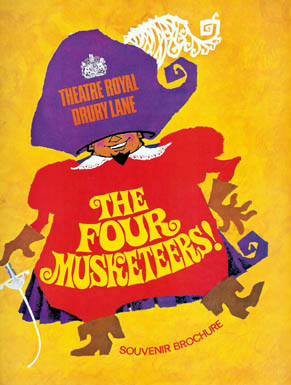 |
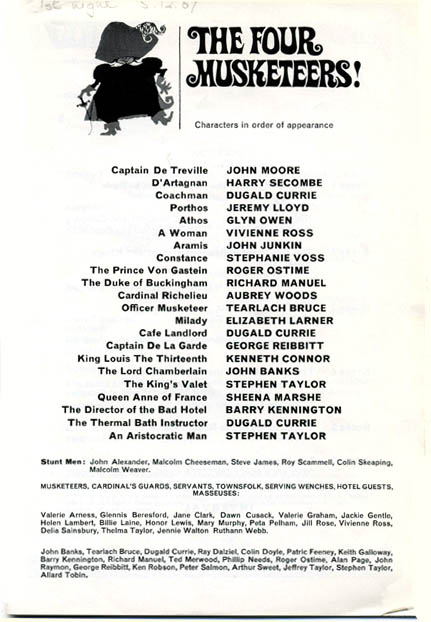
|
HARRY SECOMBE QUOTE: "Anyone who, for 25 years, has built a career on such tenuous foundations as a high-pitched giggle, a raspberry and a sprinkling of top 'Cs' needs all the friends he can get."
|
|
|
Tom Arnold was presenting Danny La Rue in pantomime at the Golders Green Hippodrome. He asked Bernie if I would go and see it, and let him know if I thought it was good enough to transfer into the West End. I saw the show and had a very pleasant meeting with Danny. I told Tom Arnold I thought the show was very good, but since he was using in the main, old recycled pantomime scenery which looked a bit tatty, I said it should be taken off, redesigned and presented the following Christmas. Tom agreed with this and we booked it into the Saville to open in December of that year. Danny was disappointed that he couldn’t transfer immediately, but went along with it.
Born Daniel Patrick Carroll on 26th July 1927, he lived in London as a boy, and was brought up in Soho. He left school at fifteen and worked in a fashion store. He joined the Navy in 1944, and became part of a concert troupe on board the ship.
One of his first parts was playing the native girl Tondelao, in a send-up of ‘White Cargo’. He found he could get laughs by sending himself up. After he was demobbed, he went back to his old job as a window dresser in a department store. He enrolled in a drama group at the YWCA, and then joined the chorus of a drag show called ‘Forces Showboat’. In 1953, he did his first pantomime 'Aladdin'. In the pantomime there were six boys and six girls - one of whom was Danny. The boys were in drag and apparently looked a lot better than the girls.
In between jobs he returned to his job as a window dresser at Huttons, the department store. Whilst there, he was approached by Ted Gatty to appear at the Irving theatre, just off Leicester Square. This was up a long flight of stairs and seated about seventy-five people. It was here that Ted Gatty thought Daniel Carroll wasn’t a very good stage name, and suggested instead, Danny La Rue.
Later, Danny joined Churchill’s night club where he was given a solo number, and stopped the show. His act gradually got bigger, and then Davy Kaye then persuaded him to go into pantomime as one of the Ugly Sisters, (he wasn’t ugly of course), with Alan Haynes. Tom Arnold saw him, and offered him a five year contract to appear in his pantomimes.
He then moved to Winston’s in 1957. He became so successful, he opened his own club in Hanover Square in March 64; it became an enormous hit and was packed every night. He made his West End debut in a musical ‘Come Spy with Me’ at the Whitehall.
Bernie and Harold Fielding had acquired the rights to ‘Hair’ which was a big hit in America. After I read the book and listened to the score, I said I loved the music, but the script would be impossible, since I was sure the Lord Chamberlain who was still in office, would object to it, but I said, ‘Let’s try it on for size anyway - I’ll submit it to the Lord Chamberlains office’. I don’t think anything quite like it had ever been submitted before. They didn’t know where to start with the blue pencil, but they finally got stuck in and requested 157 cuts. The script was rubbish anyway, and with the cuts, the Lord Chamberlain demanded it would become incomprehensible rubbish.
Shortly after, whilst Bernie was away in the South of France, the American management wanted to change the agreement between us, to terms more beneficial to them. I considered this to be the straw that broke the camel’s back. I phoned Bernie and told him what I thought. In view of all the problems, he asked me to phone Harold Fielding, and if he was in agreement, we would drop the show. Harold was - and we did.
Robert Stigwood took up the rights, started to cast it and rehearse. Shortly after, news then came through that the theatrical censorship of the Lord Chamberlain’s office was to be abolished within months.
At great expense, Robert Stigwood put the whole show on ice, (not literally) and decided to wait for the demise of the Lord Chamberlain’s office. As soon as the censorship finished, Robert presented the show, but he was still at great risk, because any private citizen was, and still is, entitled to bring proceedings against a theatrical show, under the Offences of Public Decency Act.
This still had to be tested; there was a possibility that all sorts of nuts would come out of the woodwork, resulting in dozens of prosecutions. (This actually happened some years later when I was on the Board of the National Theatre). So Robert had got a tiger by the tail. He’d got a ‘happening’ - with a very dodgy script which could be considered blasphemous in parts – the possibility of being prosecuted - and a big bill for freezing the production. But he held his nerve, and when it opened on 27th September 1968, it was an enormous hit. Robert Stigwood’s courage was rewarded.
No-one challenged ‘Hair’ in the courts, despite the fact that it was the first time in the annals of theatrical history, that an entire cast had appeared naked - albeit in discreet lighting. There was a danger that we could have had egg on our face for turning down a chance to present ‘Hair’, but we wiped off the possibility by booking it into our theatre, the Shaftesbury, and we, as well as Robert made a great deal of money.
The show ran for a number of years, then, eventually it started to lose a bit of steam. We were anxious to get it out of the theatre, to make way for something else. Stigwood however was adamant that we should stick to the letter of the agreement between us, until the show fell below its break figure (the agreed amount of weekly takings that the show has to fall below, before notice can be given). The argument went backwards and forwards, until one night there was a divine intervention. Part of the auditorium ceiling fell in, and the show had to close. Apparently, the continuous pounding of the percussive music in the show caused all the plaster to fracture; fortunately, there was no-one in the theatre when it happened. I think Stigwood believed that Bernie and I had deliberately weakened the plasterwork to get him out of the theatre.
Bernie having been given an open cheque by EMI to enlarge the entertainment division, decided to try and buy the Blackpool Tower Company. This consisted of among many other things, the enormous complex containing the vast Opera House theatre, the smaller Winter Gardens theatre and the Ballroom, in which many conferences were held, including the Labour Party’s. There was also the Grand theatre, several shops on the seafront, and the jewel in the crown - the Tower itself, which contained among other things, a circus housed in the base of the 520 ft. tower, (the ring of which could be changed into an aqua spectacle arena, by being flooded with water), the famous Tower Ballroom, an aquarium, a zoo, and many other entertainment facilities.
Since Bernie didn’t wish the story of the possible acquisition to leak out, which might have attracted counter bids, he would meet Dr. Badman, the Chairman of the company, in the tea room on Crewe station, to drink copious cups of tea and presumably to eat the odd dodgy pastry. The purchase was finally agreed at a figure of just below £5m.
Peter Charlesworth came to see me in the office asking if I could think of a West End theatre that might be available to take a musical he was presenting at Billingham, called ‘Lady Be Good’ starring Aimi MacDonald and Lionel Blair. I told Peter that I didn’t think there was any hope, since all the suitable theatres had shows in them, and I couldn’t see any possibility of anything closing in the immediate future. Peter asked; ‘Are you sure?’ ‘Yes’, I said. ‘Absolutely?’ he asked. ‘Yes,’ I said. ‘Because,’ he said, ‘Aimi MacDonald’s boyfriend is a multi-millionaire arms dealer - his name is Geoffrey Edwards, and he will pay anything to get Aimi into the West End’. ‘Anything?’ I asked. ‘Anything’, he replied. ‘Well it just so happens I might be able to come up with something’, I said.
I shot off to see Tom Arnold, who was presenting the musical ‘The Dancing Years’ at our theatre, the Saville, and suggested to him that if he took the show off he would receive a great deal of money, which would net him far more than if he continued with ‘The Dancing Years’, which wasn’t doing very well. He agreed with alacrity. Everybody, including Geoffrey Edwards agreed with alacrity. ‘There is just one problem’, I said to Peter, ‘How do we know that Mr Edwardes won’t go back on his word, and the money won’t be forthcoming. It will then be too late, because all the wheels will be in motion’. ‘No problem’, said Peter, ‘we’ll get the cash in advance’.
Peter arranged for Geoffrey Edwardes to give him a banker’s draft. I accompanied Peter to the Midland Bank in Piccadilly, and we drew out an enormous sum of money in five pound notes; it filled two briefcases. We took this, deposited it in Tom Arnold’s bank - everything went as planned - everybody was very happy. Peter Charlesworth - because he’d done the best for his clients, Aimi and Lionel - because they were going to appear in the West End, Geoffrey Edwardes - because he’d given Aimi the opportunity, Tom Arnold - because he’d got the money and, Bernie and I - because the theatre had received a bit of Tom Arnold’s money and we had a new show.
Unfortunately, ‘Lady Be Good’ didn’t capture the public’s imagination, although it was a pleasant show, and Aimi and Lionel were very good in it. It had a modest run of a few months, and was then replaced by Danny La Rue’s pantomime, which I had seen at Golders Green earlier in the year, ‘Queen Passionella and the Sleeping Beauty’ which opened on 21st December.
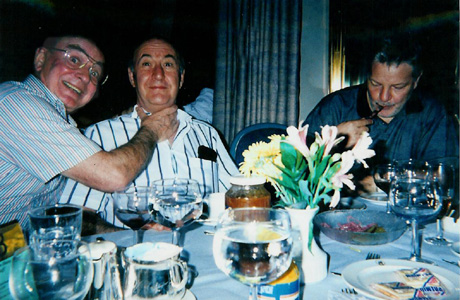
Many years later - me finally giving Peter Charlesworth his just desserts
Earlier in the year, Hillard Elkins, the American agent and entrepreneur, asked us if we’d like to present Sammy Davis in the musical, ‘Golden Boy’, music by Charles Strouse, lyrics by Lee Adams, original Book by Clifford Odets and William Gibson, with a mainly black cast. This we were very happy to do. We arranged that we would open it, instead of doing our normal summer show, at the London Palladium. It was the first time a musical was ever presented at the Palladium.
Whilst setting it up, once again I encountered the intransigence of the Musician’s Union. Sammy wanted to bring over from America, his musical director and his cornermen (the four leading instrumentalists). The Musician’s Union said they wouldn’t allow this. Sammy Davis said ‘No cornermen - no Sammy Davis’. We were in a deadlock. In a meeting with the Musician’s Union, I offered to pay four British musicians to just sit there in the pit, whilst the four Americans played.
The union wouldn’t agree to this either. We had further meetings to try and break the deadlock. This time I brought in Hillard Elkins, Arthur Lewis and Leslie McDonnell, who ran the London Palladium. There was just one man, the union leader representing the Musician’s Union.
We tried everything we could to get him to agree. Leslie McDonnell, to help break the ice, even performed some magic tricks with a deck of cards. But, at the end of the meeting, it still hadn’t been resolved. Before the leader of the Musician’s Union left, he leant over, took the deck of cards saying to Leslie, ‘By the way – have you seen these tricks?’ and proceeded to deflate Leslie by performing some card manipulations, which were much better than the ones Leslie had shown. The brinkmanship, which is what it was, went on for another couple of days, and the Musician’s Union eventually agreed with my proposal, since they finally decided Sammy Davis wasn’t bluffing.
Hillie Elkins, the agent turned producer, was a bit of a cheeky chap. While we were rehearsing ‘Golden Boy’, we gave him an office in the Prince of Wales theatre. He asked Bernie if he might use the phone to make the odd call. ‘Of course’, replied Bernie. After the show had opened, and Hillie had gone back to America, the phone bill arrived for several thousand pounds. He appeared to have spent most the rehearsal period on the phone to America, (transatlantic calls were quite expensive then), but he was such a likeable rogue, that Bernie let it pass.
The show opened at the Palladium on June 4th. Prior to the opening night, I sold ten charity previews which were fully booked. This seemed to augur success for the show, but it was not to be. It only ran until September. The press was okay, but it was a very large theatre to fill, and I assume the majority of the public wanted to see Sammy do his act, rather than playing a serious role as a boxer in a musical. He missed one or two performances early on, because of a sore throat, and when he heard that Robert Kennedy had been assassinated on June 5th, he refused to perform that evening, as a mark of respect for his friend.
My relationship with Vivienne Martin was drawing to a close, but before we finally split up, I thought it would be a good idea if she changed her agent. I introduced her to Michael Sullivan, who was very happy to take her on. After a few weeks, the leading lady of ‘Golden Boy’, Gloria de Haven, who was coming to the end of her working permit period, had to be replaced. ‘I’ve got just the girl for you’, I told Sammy. I organised an audition for Vivienne.
I had arranged for Sammy to be in the stalls at the Palladium, and I escorted Michael and Vivienne to the theatre. Michael Sullivan said to Vivienne, ‘Let’s be late – let’s keep him waiting. It will impress him’. I said, ‘that’s no way to impress Sammy Davis – we’ll go in to the theatre, spot on time. I went down to the stalls and sat with Sammy. Vivienne did her stuff on stage.
She was very good, as I knew she would be, and Sammy was happy that she should be given the part. He never actually spoke to Vivienne at the audition. She joined the company, and started rehearsing with Sammy’s understudy. It got close to the opening and she still hadn’t met Sammy. The day before the opening, the Company Manager said, ‘I think it would be a good idea if you met Sammy’. Vivienne replied, ‘Well I am here, if he wants to come and see me’. He didn’t.
The first time they first met or spoke to each other, was in the first scene on Vivienne’s opening night. But this was no problem as far as Sammy was concerned. He just didn’t like rehearsing. She didn’t have the part for very long however, because the show only ran for a total of 118 performances.
|
|
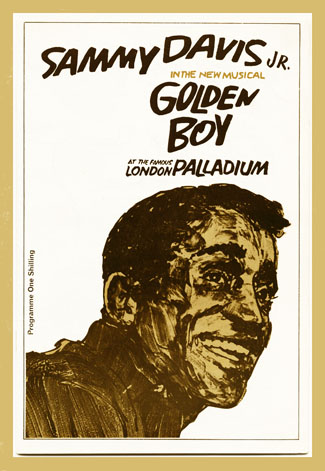 |
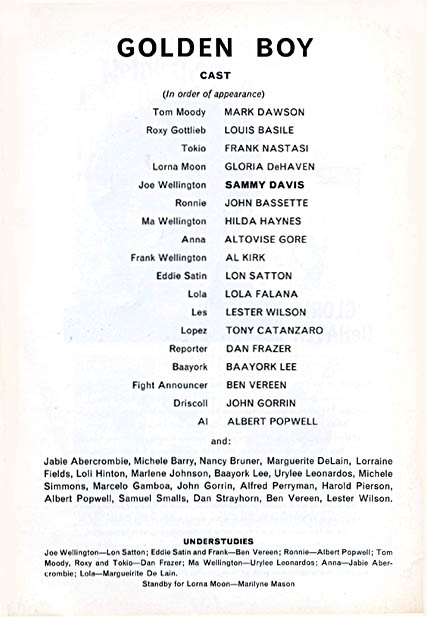
|
SAMMY DAVIS JNR QUOTE: "Being a star has made it possible for me to get insulted in places where the average Negro could never hope to go and get insulted."
Mr Edwardes, the arms dealer, was once again very happy because Aimi MacDonald and Lionel Blair appeared in an excerpt from ‘Lady Be Good’ with dancers, in the Royal Variety Performance. Among many others, we had Diana Ross and The Supremes. Miss Ross interwove into her act a tribute to Martin Luther King, who earlier that year had been assassinated.
Diana Ross also appeared with The Supremes at the Talk of the Town that year. Other appearances there were: The Seekers, Dusty Springfield, Engelbert Humperdink and most disastrously, Judy Garland.
Judy opened on 30th December, in front of a star packed, sold-out audience. She had kept them waiting, but eventually when she made her appearance, she received a tumultuous welcome. She was hesitant and rambling in-between songs. Her voice was certainly not what it was, and at one stage, when she looked as if she was going to crack up, she dragged Danny La Rue onto the stage to help her. He responded like a great professional, singing On Mother Kelly’s Doorstep, while she recovered her composure. It was something that could have gone very wrong, but, thanks to Danny – it didn’t.
But none of this mattered. We were in the presence of a great star, singing a remarkable selection of hits with which she was associated. ‘The Man That Got Away’ - The Trolley Song’ - ‘Rockabye’ - ‘You Made Me Love You’ - ‘Over the Rainbow’. The audience nearly took the roof off – they shouted, stamped, whistled and applauded. The first night was a triumph.
Unfortunately, thereafter her performance went even further downhill. She was late, her voice cracked and she forgot her lines. One night, when she was over half an hour late, the audience started hand clapping, and there were boos and jeers. When she finally appeared, she was very unsteady, stumbling about the stage. Her speech was slurred - her voice was almost non-existent. It was so bad, that she lost the audience completely. They started to throw things at her – napkins, cigarette packets, rolls and eventually, she staggered off the stage.
The next day, Bernie gave her an ultimatum. He said he didn’t think she was fit to perform; he wasn’t going to allow her to go on unless she produced a doctor’s certificate, confirming she was fit. This made the newspapers, and Bernie was accused of wrecking Judy Garland’s career. Nevertheless, he was determined to stick to his guns, and then, out of the blue, a doctor’s certificate arrived, stating that she was fit enough to perform. Bernie had to allow her to continue, but most nights were a fiasco, with people occasionally having to stand in for her. It was a great tragedy, to see such a star brought down by drink and drugs. She died on June 22nd 1969 in London, at the age of forty-seven from Barbiturate poisoning - an incautious overdose of sleeping pills.
|
|
|
Bernie and EMI were still looking for acquisitions. The next company which Bernie had his eye on, was the Associated British Picture Corporation, which owned 50% of Thames Television, 350 cinemas, Elstree Studios, bowling alleys and squash courts etc. His first step was to purchase the shares which Warner Brothers owned, which he did for just over $20m. He then arranged a bid of just over £60m, for the remaining 25% of the company.
This was a hostile bid which the ABC directors resisted, but the shareholders accepted. Since Bernie was now in charge of running ABPC, it meant leaving the Prince of Wales theatre, and moving to the ABPC building in Golden Square. So Bernie, his secretary Mrs Gaston, Douglas Harrison and me, left the rest of the organisation at the Prince of Wales, and moved to Golden Square. Leslie Grade moved into Bernie’s office at the Prince of Wales.
Bernie became totally involved in the film production side, first of all buying up Nat Cohen’s company, and installing him as Chief Executive of EMI films. He then appointed Bryan Forbes to head up Elstree Studios, to create his own film programme, separately from Nat Cohen. Bernie left me alone, to get on with the running of the theatres and West End shows, since he had more than enough on his plate, elsewhere.
His profile became so high, that his name was found on the death list of Carlos the Jackal. Bernie said he was quite flattered to be on the list with other well known names, and wondered what he’d done to upset Carlos. ‘Perhaps he didn’t like one of my shows’ he mused.
Shortly after the acquisition, the Independent Broadcasting Authority became concerned that EMI were now owners of: 50% of Thames Television, film studios, film production companies, 350 cinemas, theatres and the largest agency in Europe. In other words, no matter which way you turned in the entertainment business, be it film, theatre or television - EMI were involved. This was considered this a bridge too far by the powers that be.
In order to overcome the objections, Bernie had to reduce our holding in Thames Television to under 50%, and dispose of the agency. He arranged a scheme whereby the agency was bought by Laurie Evans, Dennis van Tahl, Billy Marsh and Michael Grade, at a reasonable price. Before doing this, he did offer Billy Marsh the opportunity of staying with him and leaving the agency. Billy decided he would stick to what he did best, and that was being an agent, but he would continue to book the headliners at the Talk of the Town, subject to the approval of Bernie and myself.
Leslie Grade decided to retire, and take it a bit easier at this time. In my discussions with Bernie about the reshuffle, I said, ‘This is going to leave a big gap in the organisation. Who’s going to take Billy’s place for the organisation of all the pantomimes and summer shows?’ Bernie looked at me, and said, ‘You are – and I am going to make you Deputy Chairman and Chief Executive of the theatrical side of the company. Billy, for the time being, will assist you with the booking of some of the light entertainment shows’.
Although I knew a certain amount about the light entertainment side, (some of which I had picked up whilst I was briefly with Billy), I was by no means a leading expert, so I thought I’d better learn fast. Bernie then said, ‘The next question is salary’. I replied I was happy to leave that to Bernie to pay me whatever he thought was appropriate - but I did want two things: a Rolls Royce and a chauffeur. Bernie quizzically lifted an eyebrow. I said, ‘If I am to deal with all these stars, most of whom have Rolls Royces, I don’t want to be seen as a poor relation’. Bernie nodded, and the deal was done.
I moved back to the Prince of Wales theatre and occupied Bernie’s old office; Douglas Harrison moved back to his office, and I commenced probably the most enjoyable ten years of my career. There I was, in my late thirties, single, with a flat in Wimpole Street, a Rolls Royce, a chauffeur, and I was head of the biggest theatrical company in the country. It meant that I had to severely curtail my poker playing activities, which would have taken up too much of my time, but it did allow me to pursue my second favourite activity - chasing girls – and boy, did I chase them. My friend the ballet mistress continued to arrange introductions to various dancers – talk about having it easy!
Earlier in the year, Bernie asked me to meet up with David Frost, who was involved with a group called ‘The Scaffold’. He wanted me to see them, and let David know what I thought. They were excellent. David was a charming and amiable host; I met him at his house, and we talked about a variety of subjects. One subject I didn’t bring up was that I was seeing a lovely actress, Jenny Logan, who he had been with for several years and had just broken up with.
Arthur Lewis had left us the previous year in order to concentrate on his career as a film producer, which he did successfully. Danny La Rue’s pantomime which had opened at the end of December, continued to play to capacity, and ran until June 26th. We could have continued, but unfortunately Danny had a prior commitment.
At the beginning of the year, we were planning the presentation of ‘Mame’ with Harold Fielding so I went to see Prince Littler, who controlled the Theatre Royal, Drury Lane. He said, ‘Under no circumstances will I enter into a contract with Harold Fielding. I am happy to have the show in my theatre, but only if the contract is with you’. I was extremely surprised by this, but I subsequently found out, that Prince didn’t trust Harold.
Some years earlier, at a meeting of the Society of West End Theatre Managers, it was unanimously agreed, with Harold present, that the latest excessive demand from the Musicians Union would be rejected, and they wouldn’t enter into any fresh contracts with them. Apparently, as soon as the meeting was over, Harold went to the Musicians’ Union offices and immediately struck up a deal with them for a show he was due to open – ‘The Music Man’. Prince immediately put him on his black list. I suppose it was easy to criticise Harold, but he did have an enormous investment to protect. However, he should have come clean about it at the Society meeting.
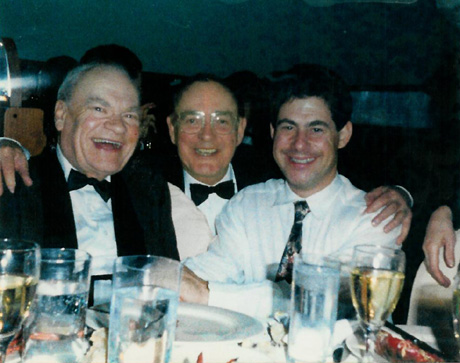
Harold Fielding, me and Cameron MacKintosh
I signed the contract, and on 20th February in association with Harold, we opened ‘Mame’ starring Ginger Rogers - a musical based on the novel ‘Auntie Mame’, book by Jerome Lawrence and Robert E. Lee, music and lyrics by Jerry Herman. We decided to make a big publicity splash, and her two dressing rooms were totally refurbished in the style of the 30s. A special train was arranged to meet her off the boat in Southampton, with all the press to join her on the journey. Naturally enough, we received enormous coverage, since Ginger had been an enormous star of the 30s and 40s, although she had waned a bit in the 50s and 60s.
Ginger Rogers was born on 16th July 1911 in Missouri. Later on she won a Charleston competition in Texas, which led to vaudeville engagements. Her first play was in 1926, and in 1929, she made her Broadway debut at the 46th Street Theatre, in a play called ‘Top Speed’. In 1930 she started her film career, making some eighty pictures, several of them with Fred Astaire, including: ‘The Gay Divorcee’, ‘Roberta’ and ‘Top Hat’. She also made dramatic films like ‘Kitty Foyle’, for which she won the Academy Award in 1940. During the 60s, she toured as Annie Oakley in ‘Annie Get Your Gun’, played Gillian Holroyd in ‘Bell, Book and Candle’, played Molly, in ‘The Unsinkable Molly Brown’ and took over from Carol Channing in ‘Hello Dolly’ - a staggering list of credits. She was married five times, and probably had as many facelifts.
When she appeared at Drury Lane, she was in her late fifties, but her performance on stage didn’t mirror that - she sang and danced like somebody thirty years younger. She was a pleasant, charming person, quiet, slightly withdrawn and no trouble. All round perfection you might say, except she did have her Achilles heel. When Christmas came, she was told that it was customary to give presents to the members of the orchestra. She bought them a bottle of boiled sweets. The show was a moderate success, running for 442 performances, but we didn’t make a big profit.
|
|
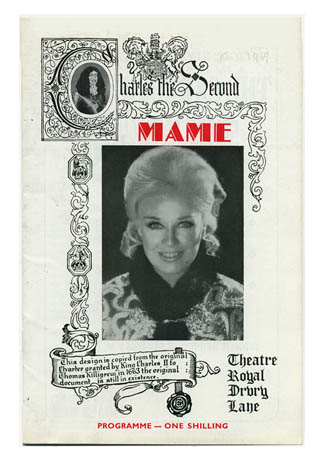 |
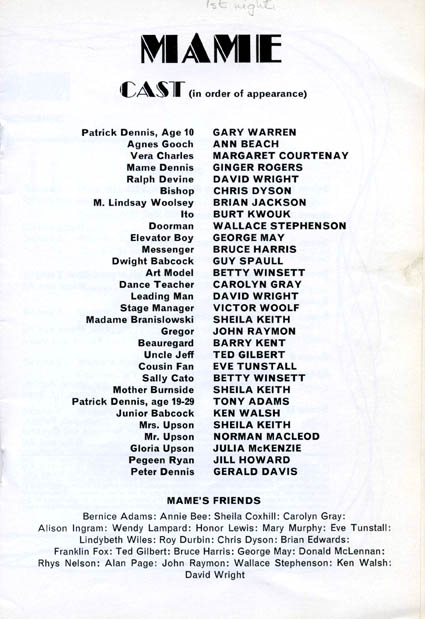
|
GINGER ROGERS QUOTE: "The only way to enjoy anything in this life is to earn it first".
At the Palace theatre we booked in ‘A Tale of Two Cities’, a musical starring Edward Woodward – not a success. It was followed on April 30th by ‘Belle Starr, starring Betty Grable, who, like Ginger Rogers, was a charming lady with masses of film credits, but she couldn’t cut it as well as Ginger on the stage. Another failure.
Back at the Prince of Wales we were going to co-present with Binkie Beaumont ‘Cat Among the Pigeons’, a Fedeau farce, translated by John Mortimer. When I went to see Binkie in his tiny office above the Globe Theatre to negotiate the theatre contract for ‘Cat Among the Pigeons’, he was delighted to see me. He remembered that back in the late forties, I was one of the trainees or ‘babies’, on the technical side, as they were known then.
He was thrilled to see that his investment, in at least one of his trainees had paid off. I, for my part, was rather sad to see the once king of the West End theatres, in a slightly run down state. Binkie was frantically chewing gum, (at that time he was trying to give up smoking). He had lost some of his debonair looks, and was by no means as immaculately turned out as he had been twenty years earlier when I first met him. Nevertheless, we had a most enjoyable chat reminiscing about old times, but it was sad to see someone who had been the greatest theatrical power in show business history, in a slightly dishevelled state.
In order to understand how Binkie had once reached his peak, it is necessary to wind the clock back to the early forties, when a tax existed on entertainment. This tax was levied on every ticket sold in the West End, and at one stage, was also levied on the face value of tickets which were even given away. I believe this tax was as high as 25 or 30%.
There was however a loophole in the law which Binkie spotted and very cleverly, turned to his advantage. This was: if a theatrical company presented plays which were educational and non-profit making - that is no profits were distributed, (they were merely ploughed back into the business), then no entertainment tax would be levied. Binkie's way of taking advantage of this was: to form alongside his commercial company, another company, which would be non-profit making.
Although this new company was not allowed to distribute profits, it was allowed to charge, by way of a management fee, some genuine running costs. Binkie was therefore able to charge a management fee on each and everyone of his non-profit making plays. This went to help pay the cost of the rent, heat, light, and the salaries of all the various people employed in the offices and stores of H.M. Tennent, who were also engaged in presenting plays for the profit making company. Additionally, part of the cost of the scenery and electrical stores could be charged. All the lighting equipment purchased for use in the non-profit making shows, could be used for a nominal fee, by the profit-making shows.
By far the most important asset of having these two companies was that he was able to keep control of all the best theatres, by using his non-profit making company to employ all the finest actors and actresses to appear in these theatres; then, switching profit-making plays into the same theatres when it suited him. It meant that he was always able to retain a firm hold on the best theatres, actors, actresses and playwrights, by continually switching them backwards and forwards between the two companies. This made him the king of the London theatre world. At the height of his powers, he had up to thirteen productions running in the West End plus innumerable tours.
This cosy state of affairs raised the ire of several important impresarios, who felt that they were being disadvantaged by this situation - which of course they were. They lobbied the government; questions were asked in the House of Commons - but all to no avail. Binkie continued on his merry way.
Much later when the entertainment tax was abolished, once again, the West End became a level playing field. By this time, it was too late. Binkie was a juggernaut, who could not be stopped for several years, but eventually, time caught up with him. His empire slowly disintegrated until it finished up with Binkie just doing the odd play in the West End. Agents no longer sent their scripts only to Binkie; they also sent them to all the new up-and-coming impresarios, and of course, to the National Theatre at the Old Vic. It was at this time that I was negotiating with Binkie for ‘Cat Among the Pigeons’. It was sad to see the erosion of such great power, but then show business is littered with similar events.
Very few impresarios were still reigning supreme at the time of their demise: Flo Ziegfield, CB Cochrane, Harold Fielding etc, etc. The ones who did survive, were usually ones who ploughed their money into bricks and mortar like Prince Littler, Emile Littler, the Alberys, Bernard Delfont etc.
‘Cat Among the Pigeons’ was not a success, but it was an enjoyable interlude being associated once again with the man who gave me my very first job.
|
|
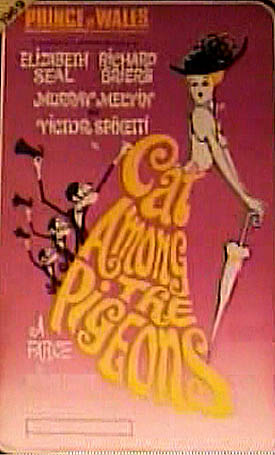 |
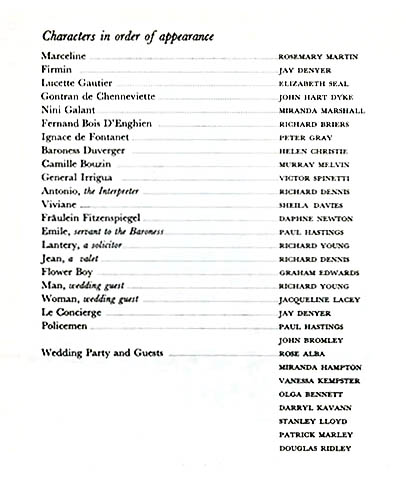
|
| |
|
At the Saville, following Danny’s pantomime we booked in ‘The Resistible Rise of Arturo Ui’ by Bertold Brecht, directed by Michael Blakemore, presented by Michael White and starring Leonard Rossiter as Arturo Ui.
I was at the first night on my own; in the interval I bumped into an actress who was also on her own. She was one of the two young ladies whom I had worked with fourteen years earlier on the play ‘Three Times a Day’, who’d jumped into bed with me to try and teach me a lesson. I had not seen her from that day to then. She said, ‘We’ve got some unfinished business’. She came back to my flat and spent the night with me. Before she left, I invited her out again but she turned me down, saying, ‘No, it was just a one-off and it seemed like a good idea to get it out of the way after fourteen years’. I’ve never seen her since – but a very charming lady.
Went to see ‘Dames At Sea’ at the Duchess theatre. A young blonde girl in the show had made a great impact with the critics. She was such a success in the show that they asked her to star in the Paris version. She first of all refused to do this, because as she explained, she couldn't speak a word of French. She producers overcame this problem by asking her to learn it phonetically and then just speak when the person she was playing a scene with stopped talking. This strangely enough, worked incredibly well, and she became the toast of Paris.
She had also made a great impact on me personally - as a performer that is. I didn’t realise she’d worked for me as a sixteen year old on ‘The Roar of the Greasepaint’ - I wasn’t going to find out about this until much later. Her name was Sheila White. I was to bump into her again.
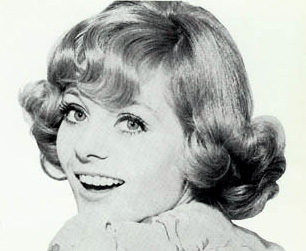
Sheila White in 'Dames at Sea'
|
|
.....................................Dames at Sea - French poster
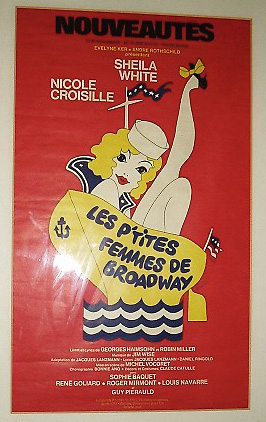
|
...............................Dames at Sea - English cast
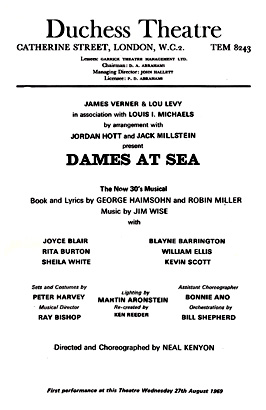
|
Sheila decided to stay on in Paris. She performed in films, television shows and cabaret. James Green got to hear of her success and published the following article in the London Evening News.
|
|
|
We arranged with Binkie for another of his shows which he was co-producing with David Merrick, to take the place of ‘Cat Among the Pigeons’. This time, not only was I dealing with Binkie, but also with David, who was the toughest and most ruthless of all the Broadway impresarios. In 1961 when the New York critics condemned one of his shows, 'Subways are for Sleeping', he went through the phone book and found people with exactly the same names as the critics. He then approached them and got them all to give favourable quotes on the show, which he then pasted all over the front of the theatre. I can’t recall what the final outcome was, but it certainly created a great deal of publicity.
The show we were negotiating for was ‘Promises, Promises’, based on Billy Wilder’s film, ‘The Apartment’; book by Neil Simon, lyrics by Hal David and music by Burt Bacharach. This was well received by the press and ran for 570 performances.
|
|
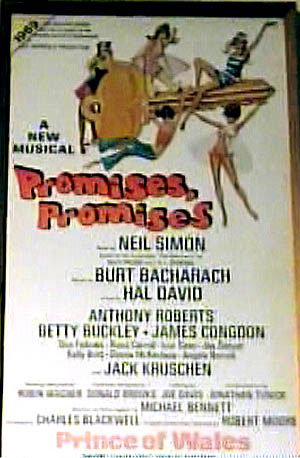 |
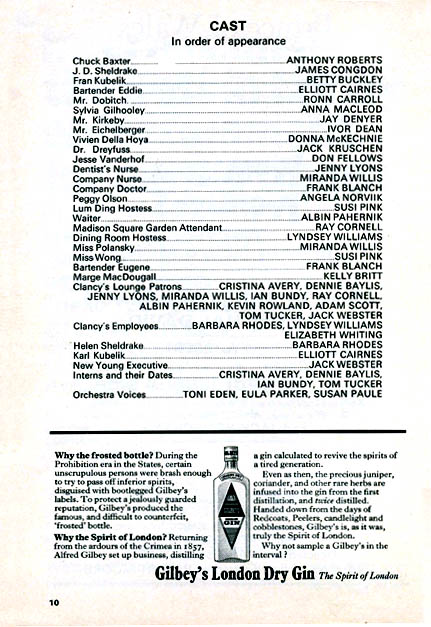
|
BURT BACHARACH QUOTE: "Never be ashamed to write a melody that people remember."
In September a young man came to see me in my office. He told me he was going to present Cole Porter’s ‘Anything Goes’, starring Marian Montgomery as Reno Sweeney, and he wanted to rent the Saville theatre for it. He looked so young - I guessed about twenty-one - twenty-two, that I had serious doubts about his ability to accomplish what he’d set out to do. I questioned him about his ability to produce a musical at such a tender age, asking what experience he’d had. He told me he’d started as a stagehand on ‘Camelot’ at Drury Lane, was then an assistant stage manager for ‘Oliver’, worked as a Deputy Stage Manager for an Emile Littler show, co-produced a season at the Kenton theatre in Henley-on-Thames, and formed a touring company for small cast plays.
What he told me didn’t exactly make him the Flo Zeigfield of experience, - but he certainly had a lot of confidence. I then asked the most important question of all. ‘Can you raise the money?’ ‘No problem’, he said. But there was.
What most people don’t appreciate about funding a show is that you don’t just fund it to put it on; you have to make sure you’ve got enough money to take it off, if it's not a success.
In order to close it you have to fall below the ‘break figure’ which you have agreed with the theatre, for two consecutive full weeks. This usually means that two and a half weeks have gone by, (since invariably one opens in the middle of a week). You then have to work out two week’s notice, which means that if the show is a disaster, there is very little money coming in. Going out, is the cost of the theatre rent, staff in the theatre, heat, light and a myriad of other things which go to making up what is known as the ‘contra’, which the producer has to pay. On top of that, you have to pay the cast for four and a half weeks. All this adds up to a considerable sum of money - sometimes more than it costs to put the show on in the first place.
I arranged a deal with the young man and the show opened on 28th December. We had no advance bookings, and the notices were terrible. On the second night, in the stalls bar of the Saville theatre I saw him in tears. ‘What am I going to do?’ he asked. ‘Well, come and see me in my office tomorrow and we’ll talk about it’.
At our meeting the next day, I told him we would waive all our contractual rights with regard to the notice period, and he could, if he so desired, immediately give us twenty-four hour’s notice. We would not charge him for anything, but we wouldn’t give him back his deposit, which I think was about £4,000. He pleaded - but I was adamant. ‘We’re saving you tens of thousands of pounds. We’re going to have a dark theatre - we must have some recompense’, I said. He was still heartbroken. I said to him, ‘You know all this is not wasted. At a very young age you have amassed a tremendous amount of experience, particularly of the downside of the business. If you can fight and overcome this adversity, you will probably be able to overcome anything in the future, and go on to great things’. He did. His name was Cameron Mackintosh.
|
|
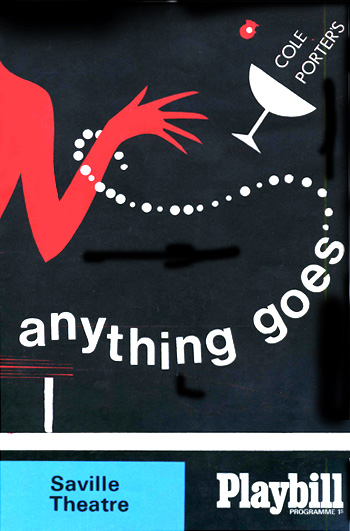 |
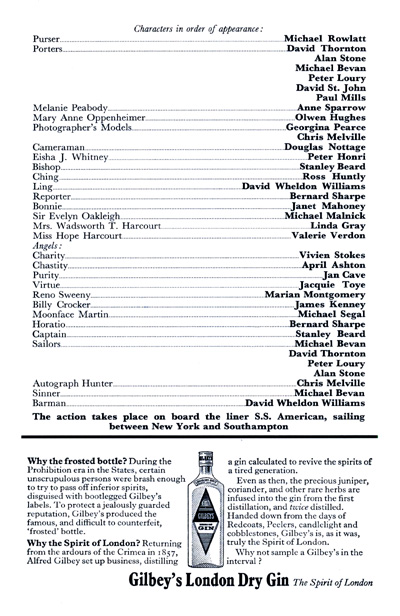
|
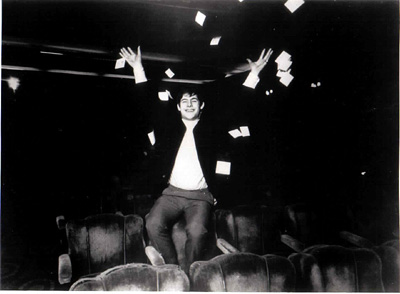
Young Cameron MacKintosh at the Saville theatre -
I'm not sure if he is throwing up in the air
complimentary tickets or his money
In the following years, he presented many shows and did extremely well, but the real turning point of his career was when he presented ‘Cats’ at the New London theatre. It was an enormous success. I remember I used to phone him up about once every four weeks and ask, ‘Have you recovered the production costs yet, and are you nearly wealthy?’ ‘Not yet’, was always the reply. But then one day, he said, ‘We’ve recovered the costs’. ‘Good’, I said, ‘Now you can concentrate on being wealthy’. I didn’t realise at the time, quite how wealthy he was going to be.
Years later in the 90s we did a calculation together. We worked out that for every dollar taken in America, fifty cents of it was coming to Cameron via his shows - ‘Cats’, ‘Phantom’, ‘Les Miserables’, ‘Miss Saigon’ – not just on Broadway, but from several touring productions of each throughout America. Cameron has made a fortune, but he has ploughed an enormous part of that back into the business by his mega refurbishment programme of the theatres he controls.
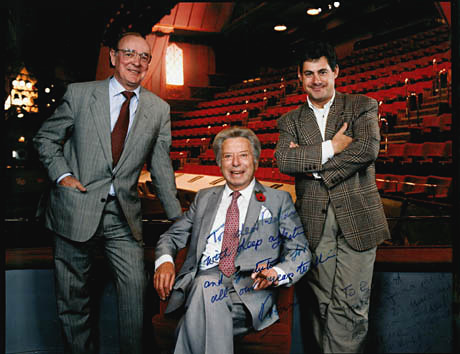
Me with Bernard Delfont and Cameron MacKintosh when
he had become the most successful producer in the world
At the Talk of the Town, Sammy Davis played two weeks late summer, at what was probably one-twentieth of his normal salary. He just wanted to do it. I have never had such an avalanche of requests for help in arranging tables for people. I had arranged a table for twelve in the very best position. Peter Charlesworth, who was one of my guests, remarked to his girlfriend Penny Meredith: ‘We’ve got this table because Richard has a little weight here’. I was incensed. ‘A little weight?’ I said, ‘You have to have a bloody big weight to get this table!’
We booked a Harold Fielding musical into the Palace which was called ‘Phil the Fluter’; book by Beverley Cross and Donald Giltinan, lyrics and music by David Henniker and Percy French, starring Stanley Baxter and Evelyn Leigh. It opened on 13th November. We half hoped it wouldn’t be too successful, since we had other plans for the theatre.
At the Talk of the Town this year, besides Sammy Davis, other artists appearing were: Frankie Vaughan, Matt Monro, Bruce Forsyth, Vic Damone and Billy Eckstein.
At the Royal Variety Performance this year, we had among the stars: Tom Jones, Frankie Howerd, Ronnie Corbett, Ginger Rogers and the cast of ‘Mame’, Cilla Black, Harry Secombe and Danny La Rue, (who was the particular big hit of the evening). At the presentation afterwards, The Queen said to him, ‘Your costume changes were very fast - I only wish I could dress as quickly!’
|
|
|
During this year, I was made a director of the EMI Film & Theatre Corporation. It was Bernie’s idea that all the various branches of the entertainment side of EMI should get together to exchange notes, to see if there were any areas that were mutually beneficial to all parties. The companies represented were: EMI Music, EMI Records, the film companies, a representative from Hughie Green’s Opportunity Knocks, Philip Jones, representing Thames Television and me representing live entertainment and theatres.
We spent an inordinate number of hours discussing the possible cross-fertilisation of artists between the various companies, but with one or two minor exceptions, relatively little came of it; but at least we all got to know what each other was doing.
Following Danny La Rue’s successful run with the pantomime at the Saville, we planned a revue with him, to be co-presented with Emile Littler. It was to be titled, (subject to the fact that we could present it at the Palace Theatre), ‘Danny La Rue at the Palace’, written by Barry Cryer and Dick Vosburgh, special material by Brian Blackburn, and directed by Freddie Carpenter. Among the cast were Roy Hudd, Toni Palmer, (the lady who paid my electricity bill at Thayer Street years ago), and Jenny Logan. I employed Lionel Blair to do the choreography, with the proviso that he used two of the excellent dancers from ‘The Four Musketeers’ - Jackie Gentle and Val Arness.
When Danny heard of my idea to appoint Lionel Blair, he cracked the old gag about Lionel forming a double act with Fanny Craddock, and calling it ‘Butch Casserole and the One Dance Kid’.
‘At the Palace’ opened in Birmingham, and played for a couple of weeks. (Lionel Blair was not exactly the best of friends with the two dancers I had foisted on him, although they were probably the best and prettiest dancers in the show). Freddie Carpenter was so impressed with Jackie; he gave her a solo spot in the show.
We hadn’t got a theatre, but we were rather hoping that Harold Fielding’s show, ‘Phil the Fluter’, wouldn’t work, so we could put Danny into the Palace. It transpired that ‘Phil the Fluter’ wasn’t particularly successful, and much to Harold’s chagrin, Emile gave him notice. We opened on 22nd April, and were an immediate sell-out running very successfully for two years.
Realising what an enormous success Danny and his show might be, Paul Raymond decided he would try and cash in, so he devised a drag show, ‘Birds of a Feather’, for the Royalty theatre, opening just before us in March. He spent an absolute fortune on it - beautiful costumes and magnificent scenery.
During rehearsals, a girl dancer friend of mine who had a great sense of humour, was asked by Paul if she would dance nude. ‘If the money’s right’, she said. And it was – so she did. In the middle of the dance routine, she was also asked, if, with four of the boys, she would perform a particular lift known as ‘the star’, where the four boys took her arms and legs, spread her out and circled. She said, ‘No thank you. I know what the next step will be. You’re going to have the flags of all nations flying out!’ Maybe if they’d had the flags of all nations flying out, it might have succeeded - but in spite of all Paul’s efforts - since it didn’t have Danny - it didn’t work.
It was during the run of Danny’s show, that Jackie decided she didn’t want to be a dancer all her life. She wanted to get married and have a family. Our relationship had cooled off and she’d met someone else. I released her from her contract so she could get married. However, I was to see her again.
One night, I was in the restaurant at the White City with some golfing friends, who’d had a little too much to drink. Two of them challenged each other to a race, on the dog track. When the last race is over, the lights are left on the track, until such time as the stadium has cleared. The arrangement was, that they would climb over the wire and onto the track after the last race, and race each other before the lights were turned out. Sitting at a table nearby, was Jackie and her new husband.
During ‘The Four Musketeers’, Jackie and the six stunt men, used to stand on the parapet of the roof of the Theatre Royal, and they would throw Jackie backwards and forwards. That wasn’t quite dangerous enough for her, so when nobody was about, she would climb to the top of the scenery towers, (about twenty-five feet), and do the same falls as the stuntmen had done, onto mattresses onto the stage below – a real tomboy.
Knowing that she was game for anything, I thought to myself - here’s a way to have a laugh on my drunken friends. I said to them, ‘I don’t think you two can run at all. I bet I can get a girl to beat you’. They accepted my challenge. I wandered over to Jackie’s table, and said, ‘Jackie, will you do me a favour? Will you go down on the dog track and race against these two idiots?’ As I expected, she agreed.
The last race finished - the three of them made their way down to the track – Jackie took her shoes off – they climbed over the wire and set off. By the time they reached the first bend, she was twenty-five yards in front – at the second bend she was fifty yards in front - when one of my friends stopped halfway up the back straight - she was seventy-five yards in front. The other one then gave up. Jackie just kept running - completed the lap - jumped over the fence and came and sat demurely at her table.
My two drunken friends, totally out of breath, staggered up the stairs. I went over to Jackie’s table, and said, ‘Thanks Jackie’. Her husband Ian, said, ‘She wouldn’t do that for me you know’.
They subsequently had two daughters and moved to Florida, where she became a real estate agent. They divorced, and years later, when the girls were in their late teens, she brought them to see me in my office at the Prince of Wales. We got on very well together. The girls asked; ‘Why didn’t you marry Richard, Mum?’ And Jackie said, ‘He never asked me’; I said, ‘Well if I had done, you two wouldn’t be here for a start’. But I digress.
Shortly after she got married, Jackie introduced me to a friend of hers, Patricia Caveill. Patricia who had been widowed at an early age was a nursing sister, who was in charge of the operating theatre in a North London hospital. We hit it off, and she remained my girl friend until she finally decided to give up on me in 1980, and moved to America, where she married a distinguished cosmetic surgeon, Dr Ed Truppman, to whom she had been introduced by Eve Taylor. For many years she ran his very successful practice in Miami.
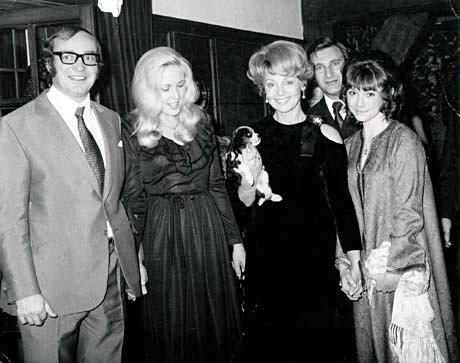
Me with Patricia, Dany Robin, Ian Nairnsey and my ex-girlfriend - Jackie
- now Mrs Nairnsey
|
|
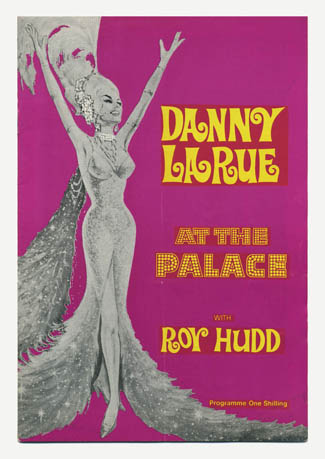 |
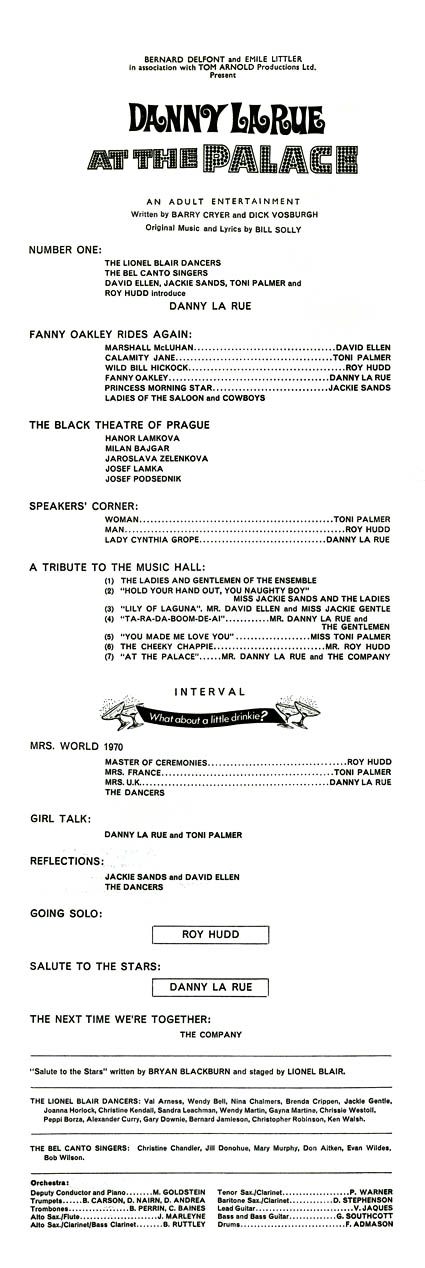
|
DANNY LA RUE QUOTE: "There are very few one-offs in show business; I am unique because I am the only man in a glamourous frock who has become a major star, not only in Britain, but also in Canada, Australia and New Zealand. There has never been anyone like me before."
Earlier in the year, Bernie received a phone call from the American agent, Sol Shapiro, who represented many stars, asking if we would like to present Carol Channing for a limited season in London.
As a little girl, Carol did impressions, sang and danced; she always wanted to be a performer. When she was sixteen, and packing to leave to go to Bennington College, her mother announced to her that she was part Negro, explaining she was only telling her this because, she could easily have a black baby. This came as a surprise to Carol, since her father’s skin was not black - it was white. This didn’t faze Carol in any way; she was delighted to have African blood in her. It meant that she was closer to gospel and jazz, which she loved to sing.
Carol made her debut as a singer in New York at the Center Theatre, in ‘No for an Answer’, at the age of twenty. Her next job was understudying Eve Arden in ‘Let’s Face It’. She jokes that one of the reasons she got the job, was that Eve Arden’s costume fitted her. Later on, when Eve Arden took over Carol’s part in ‘Hello Dolly’, she said the only reason she got the part, was because she fitted Carol’s costume.
Among Carol’s many credits were various cabaret and night club engagements; a Drama Critics award for ‘Lend An Ear’, creating the role of Lorelei Lee in ‘Gentlemen Prefer Blondes’, playing Eliza Doolittle in a tour of ‘Pygmalion’, (that must have been interesting), performing the title role in ‘The Millionairess’, and creating the role of Dolly Levi in ‘Hello Dolly’, for which she received a Drama Critics and Tony award. Carol played this role all over America,for 1,272 performances.
Sol told us that she wanted to appear in London with her show, ‘Carol Channing and Her Ten Stout Hearted Men’ – a musical frappe conceived by Joe Layton. Carol and her husband Charles Lowe, were going to put up all the money. Knowing of Bernie’s reputation, Charles had asked Sol to approach us. Naturally we agreed, but we hadn’t got a theatre.
The Prince of Wales would have been the perfect venue, but it wasn’t available. I shopped around for a medium-sized theatre, but there wasn’t one. I knew that the Theatre Royal, Drury Lane was going to be available, and asked Charles Lowe if he’d like to take a chance on it.
It was really too big for this sort of show, having 2,250 seats with an enormous proscenium opening of 42 ft. and a depth of 80 ft. In fact, the stage is so large you could put the entire Fortune theatre on it, with six double-decker buses on top - and there would still be a bit of room left over.
Charles said, ‘Not to worry. Carol is a big enough performer to project in any theatre no matter what size’. I arranged the deal with Prince Littler, head of Stoll Moss theatres, and Toby Rowland, who was now his right-hand man.
Although I had spoken to them on the phone, neither Bernie nor I had met Carol or Charles. As soon as they arrived at their hotel in London, we arranged to collect them and take them out to dinner. We pondered long and hard as to which restaurant we should take them to, since undoubtedly, in all her years as a star she had experienced the finest cooking throughout America. We plumped for The Tiberio, a very up-market Italian restaurant near their hotel.
We picked them up and took them to the restaurant, where we were greeted with great ceremony by the Maitre D’. The menus were produced and we were told all the recommended dishes. We all solemnly gazed at the menus for five minutes, then the waiter arrived to take our order.
‘What would you like Carol?’ I asked. ‘I’ll have two clean plates, a knife and fork, and an empty glass’, she replied. Laughing at my surprise, she said, ‘For twenty years, I have never eaten anything that I didn’t cook myself, or that wasn’t prepared under my supervision - and I only drink Montana spring water. I’m happy to say, I haven’t had a day’s illness in years’. I could well believe this, since I knew that she had starred in ‘Hello Dolly’ on Broadway, and all over America for years, and out of over one thousand performances, she never missed one.
She was very tall, extremely striking looking, with an indescribable throaty voice, but she sat there very quietly, saying very little, whilst Charles her husband did most of the talking. I thought to myself, how quiet she is; so ‘unstar’ like.
Charles drew her into the conversation. It was as if he had thrown a switch. She was on. I felt as if I had been hit by a bolt of lightening. The charisma - the overwhelming magnetism! It was as if I was held in force field of static electricity, with powerful searchlights focused on me.
After mesmerising me and Bernie for twenty minutes, she seemed to throw another switch, and everything turned off. She just went back to being a quiet, charming lady, listening to us talk. I had never, and have never experienced such sheer magnetism from anybody. She seemed to have the ability to turn it on and off as it pleased her – or, when Charles thought it would be a good idea.
Whilst we were rehearsing her show, I received a call from a Customs Officer at London Airport, saying, ‘We have something that seems suspicious, addressed to you. Would you mind explaining it?’ ‘What is it?’ I asked. ‘It’s forty gallons of water’, he replied. I thought for a moment, then I realised it was Carol’s Montana spring water - the only thing she ever drank; this was to top up her supply whilst she was in London. I explained this to the Customs Officer, and he agreed to release it.
We opened on April 22nd 1970. The first night was a resounding success, and we held a party at the Savoy hotel. Charles and I escorted Carol to the party. As the three of us entered through the doors to applause from the guests, I felt a strong pressure pulling back on my elbow. It was Charles Lowe. Stupid me; I’d forgotten that the star should be on her own to take the applause; it was Charles reminding me to let her go forward alone.
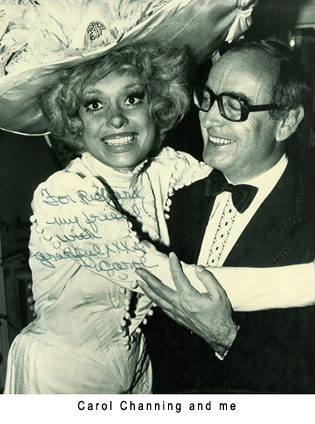
The show was a total vehicle for Carol. Her ‘Ten Stout Hearted Men’ were not your usual tall, dark, handsome dancers/singers who backed a star, but an assortment; tall, short, bald, fat and thin men. However, they all had one thing in common – they were all supremely talented. The show was in two halves, during which, Carol never left the stage. She had many costumes; the changes were done behind a screen on stage, and although you couldn’t see her, she continued to perform with the use of a radio mike, while changing.
These were very early days for this equipment, and she had brought her own. We had already experienced problems with a radio mike, when Ethel Merman brought hers over. Here, the problems started again. About ten days into the run, we started to get spasmodic interference on Carol’s mike. We brought the experts in, did all the tests, but there was no explanation.
Then a couple of nights later, there was a complete wipe-out of the sound due to static. The Stage Management team thought very quickly, and passed her a cable fed hand-held mike. This was fine, but it created a great deal of problems during her dance routines, and also, when she was off-stage speaking, and changing behind the screen at the same time, someone had to keep the mike in front of her face - no matter which way she was turning. Being Carol, she managed to carry the whole thing off with aplomb.
Once again the experts were called in - no explanation. I was in the theatre when they were carrying out the tests. After they were over, I left the theatre by the stage door, and noticed just up the road, there was a mobile X ray van, which was holding tests for anyone who cared to call in. I looked at it - the penny dropped. I went up to the van, and asked them how long they’d been there. It transpired they had arrived at the time our troubles started - the X ray signals were interfering with Carol’s radio mike.
We were able to reach a compromise with their location, and the problems stopped. The show ran for its allotted span of a few weeks, plus an extension, since it was so successful.
It was about this time that Laurence Olivier decided that he wanted to present ‘Guys and Dolls’ at the National Theatre. He was to play Nathan Detroit, and he announced that he wanted a Carol Channing type to play Adelaide, opposite him. Carol read about this in the newspapers - went round to his dressing room in the Old Vic theatre - and said to him; ‘Why do you want a ‘Carol Channing type’ - you can have Carol Channing. Here I am! I’d love to do it with you’. Unfortunately, the production with Olivier never happened, but Carol Channing as Adelaide, would have been an inspired piece of casting.
|
|
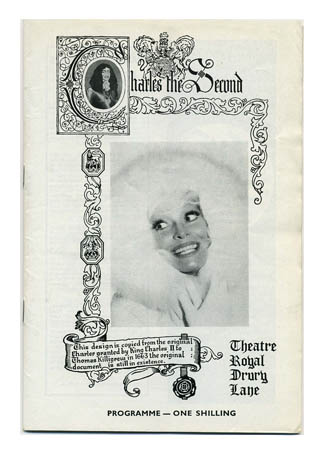 |

|
CAROL CHANNING QUOTE: "Laughter is much more important than applause. Applause is almost a duty. Laughter is a reward."
|
|
|
‘Danny La Rue at the Palace’ continued to play to capacity. Danny decided he wanted to do even more comedy, but the only way to accommodate this, was to shorten Roy Hudd’s act. I wasn’t very happy about it, but rather than cut Roy’s time, I thought it might be an idea, to see if Roy would like to leave the show. So, I approached Maurice Aza, his agent, and asked if Roy would be interested in coming out of the production, and instead, do a series of pantomimes for us. Roy was happy to agree. I think he felt he was probably getting a bit stale, doing the same thing night after night.
Towards the end of the previous year, Eric and Blanche Glass, the agents, asked if I would look at a play they represented called ‘Kean’. It was written by Jean Paul Sartre, which he had adapted from the play by Alexander Dumas. The translation was by Frank Hauser, who also directed it. It had opened in September at the Oxford Playhouse, which was administered very successfully by Frank.
I went to see it and was thrilled. We immediately acquired the rights, and I arranged for it to open on 28th January 1971, at the then, Globe theatre – now the Gielgud. Among the cast were: Philip Voss, Lisa Daniely, and playing Anne Danby, was a relative newcomer, Felicity Kendal.
In the play, when Anne Danby auditions for Kean, the actor tells her that she is ‘worse than very bad’—she is “quite good” - at least with very bad, the audience would be paying a lot of attention to you’. Towering above everyone, playing Edmund Kean was Alan Badel. He was magnificent.
Alan had studied at the Royal Academy of Dramatic Art in 1939 until 1941, winning the Bancroft Gold medal. His first appearance was at the Repertory Theatre Oxford in August 1940, and played various parts before being called up. He served as a sergeant with the Parachute Regiment, 6th Airborne Division, and was one of the paratroops dropped at Arnheim, where he suffered minor injuries, particularly to his hearing in one ear, when he was blown up.
After he was demobbed, he resumed his career playing diverse roles until joining the Memorial theatre, Stratford, where he played Richard III. Among many other roles, he played the Dauphin in Henry V, Hamlet and Othello. He was a truly remarkable actor; one of those who could make bricks without straw and he was totally unassuming.
On the first night of ‘Kean’, I escorted his daughter, Sarah Badel, (an extremely talented actress with a mass of theatrical credits). After the show, I took Alan and Sarah out to Genneros, an Italian restaurant. I was on a total high; thrilled by the magnificence of Alan’s performance; all I wanted to do was talk about it. Every time I tried to do so, he deflected me, talking about his garden, which he said was the only thing he was really interested in; his roses, and the moles which were destroying his lawn. It was extremely frustrating. There I was, trying to pay homage to his great talent, when all he wanted to do, was talk about how to tend roses.
We got on very well together, and a few weeks later he invited me over to his London house to meet his delightful wife, Vonnie, and Sarah. After a great fun evening, at which we probably all had a little too much to drink, I said that I should be making my way home. ‘Oh, don’t do that’, you’ve had too much too drink’, he said. ‘You can stay here’. ‘Have you got a spare bedroom?’ I asked. ‘Well, no’, he said. ‘We’ve only got one bedroom. When Sarah stays here, she sleeps on the floor in front of the fire. You can sleep there as well, if you like’.
Tempting as the offer was, I declined the invitation. I did however take Sarah out on two or three occasions. A lovely lady, but there was no magical chemistry between us. I think Alan may have been a bit disappointed, since he may have seen me as a prospective son-in-law.
On the last night of ‘Kean’, I accompanied Sarah once more. Alan made his first entrance then totally lost the plot. No matter how he tried, he couldn’t get back on track. After three minutes, he turned to the audience, and said: ‘Oh bugger it. Do you mind if I go off and start again?’ They didn’t, he did, and proceeded to give yet another magnificent performance.
Alan, the totally unassuming man, was not interested in the trappings of stardom - he just wanted to play leading roles. In Hollywood, he played the part of John the Baptist in ‘Salome’, with enormous success, and was immediately offered a Hollywood contract; but Alan refused, saying he didn’t wish to live in that synthetic world, much preferring his domestic bliss in England with his roses.
Alex Cohen saw him in ‘Kean’, and said to me, ‘We have to do this in New York. Please will you bring him, and the show over’. The idea greatly appealed to me, so I asked Alan if he would do it. ‘No’, he said. ‘I’ve already appeared in New York’, and I was homesick for most of the time’. Alex was extremely disappointed, and asked me if I would ask him again. I did. Alan being well disposed towards me, and not wanting to cause me disappointment, said: ‘Look, I don’t want to do it, but I’ll do it for you, but only for three months’.
This unfortunately was not a viable proposition, since it would have been impossible to recover the costs in twelve weeks; so the idea was dropped. Alan went on to win the Variety Club of Great Britain award for his performance as Kean. Unfortunately, I never had the pleasure of working with him again, but I did with Frank Hauser. |
|
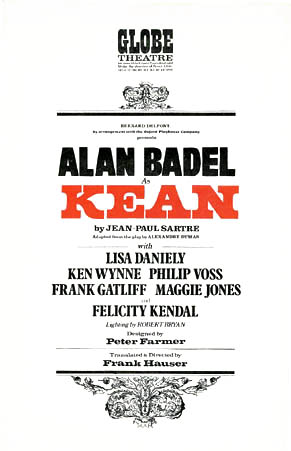 |
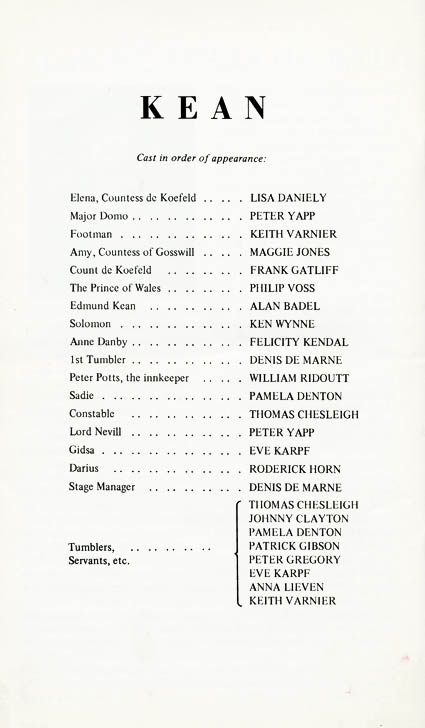
|
JEAN-PAUL SATRE QUOTE: "Only the guy who isn't rowing has time to rock the boat."
Went to the Dublin Festival and saw the lovely Yvonne Mitchell in ‘Children of the Wolf’, and immediately transferred it to the Apollo, where it opened on 31st March 1971; not a success, and it closed after a short run.
|
|
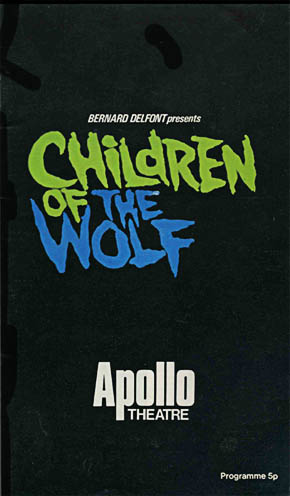 |
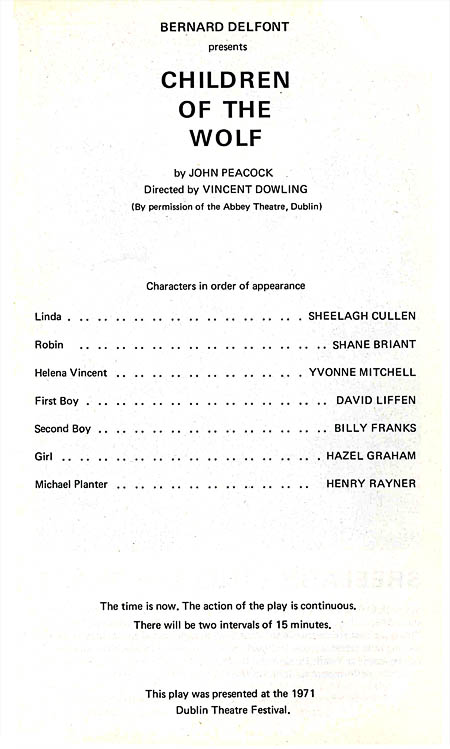
|
YVONNE MITCHELL QUOTE: "Being kind and gentle should be a way of life."
Harold Fielding had asked us to join him in producing a revival of ‘Showboat’, which opened on 29th July at the Adelphi, starring Cleo Laine and Lorna Dallas. I talked Bernie out of it, on the basis that it was going to be very expensive, and I didn’t think we would get our money back. It was an artistic success, and Bernie wasn’t very happy with me for turning it down, but thankfully I was vindicated, since it didn’t make any profit.
I wasn't having a very good time with my bookings at the Prince of Wales. Jack Good's production of 'Catch My Soul'; the rock Othello which was a very interesting and intriguing concept ran for only 180 performances.
'The Avengers' was next, which was not a success and then came 'Big Bad Mouse' opening on 14th September, presented by Paul Elliott, Louis Michaels and Duncan C. Wheldon, starring Jimmy Edwards and Eric Sykes, who, early on in the run, had dumped most of the book, and used the play as a vehicle for all sorts of slapstick and inventive comedy business very successfully. It ran for 153 performances, during which time, I suggested to Paul and Duncan, it would make a very good television show. They agreed, but not being experienced in television packaging, gave me carte blanche to arrange a deal, which I did, with Thames Television. We shot it in the theatre in front of an invited audience, and it turned out very successfully.
I then became fully involved for the first time with the total responsibility for the casting and presentation of our Summer Shows, (with some assistance from Billy Marsh).
Prior to the fifties, most of summer season entertainment consisted of concert party ‘pierrot’ type shows. The fifties until the eighties were the halcyon days of summer season light entertainment; the accent was now on star names, from variety, radio and later, television. High quality variety shows spread all over the seaside resorts of England and Wales.
In the forefront of the impresarios, was Bernard Delfont, who obtained some of the best dates, by turning the traditional theatre deals round. Instead of seeking a guaranteed fee from the theatres, Bernie guaranteed the theatres that he would pay them a fee. Also, if the box office receipts were exceptional, the theatre would receive an additional payment. The shows were always twice nightly, six days a week, so the performers really earned their money, but they were well paid.
Early on in his career, Bernie’s top venue was the North Pier Blackpool, which had a reputation for providing the best of light entertainment. Imagine the scene: the end of a pier - a quarter of a mile out in the middle of the Irish sea - a rickety wooden theatre seating 1000 people - early October - the second house audience staggering up the pier in lashing wind and rain, then seating themselves in the theatre - the waves are crashing beneath them. As they start to slightly warm up and dry out, a faint cloud of steam rises above them. (I won't say it was very damp, but occasionally when the front of house spots were on, a rainbow could be observed. I spent many hours digging up the floorboards, but I never found the crock of gold. It was rumoured that Dave Forrester had a clause in his artists' contract that if they found the gold, they had to pay him commission). Only joking. But I digress.
The curtain goes up - the audience have to be entertained. The comics come on and do it. They really had to be good, after all the poor audience had been through – and they are – when the show is finished, the audience make their way back through the wind and rain to the mainland - lots of happy smiling faces.
The artists follow shortly after. They, who have to do it night after night, are not so happy and smiling, in the teeth of the wind and rain. One year, the wind was so strong at the North Pier, it blew Hetty King, (the famous old-time music hall performer), off her feet and she broke her leg.
I was now presenting shows at diverse theatres, stretching from the Theatre Royal Drury Lane to the North Pier Blackpool. I found it to be quite a theatrical leap – from the Theatre Royal Ftuty Lane to the North Pier.
Jimmy Tarbuck once performed at the North Pier in 1962. Some years later, I tried very hard to persuade him to do another season there. ‘The money’s very good’, I said. He said, ‘Is it? May to October – twelve shows a week – up and down that bloody pier in all weathers’! ‘Yes, I replied’. ‘Would you?’ he asked. Reluctantly, I conceded. ‘No I wouldn’t’. Perhaps not, but some of the greatest did.
Went to see Les Dawson in a show on a pier. It was not one of our shows; it was not very successful. When I went backstage to see Les after the second house, I asked him how business was. ‘Not very good’, he said. ‘All that came in on the first house was the tide’!
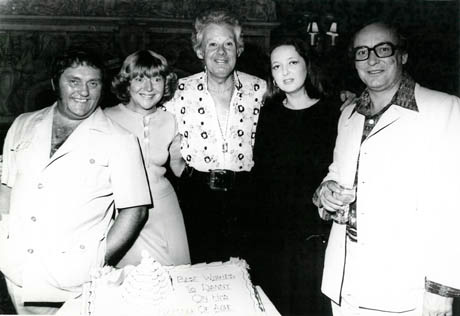
Left to right - Les Dawson, Dora Bryan, Danny La Rue,
Ann Zahl (Danny's agent) and me
|
|
|
Everything at the start of the year seemed to be going smoothly, until I received a phone call from Louis Benjamin. Louis had started as a messenger boy with Moss Empires in 1937, and worked his way up, to eventually being the Chief Executive of Stoll Moss Theatres Ltd. Prior to that he was Chairman of Pye Records Ltd, and a founder member of ATV Music.
I first met Louis when he was appointed Managing Director of Moss Empires in 1970. He asked to have a meeting with Bernie and me, at the London Palladium during an evening performance. We met in the annexe of the Royal box, and had some drinks from the splendidly stocked bar. Louis was accompanied by Jack Gill, his right hand man, and the Chief Accountant of ACC. Louis said that the purpose of the meeting, was to acquaint Bernie and myself with the fact that, the old days of us presenting shows at the Palladium, in association with Leslie McDonnell, who was the previous Managing Director, were over. Louis who had taken over from Leslie was now going to present them himself.
Bernie and I were taken aback, because although we considered Louis to be very capable as Chairman of Pye Records, we thought he knew a lot less about putting on shows than Leslie McDonnell, with whom we had previously been dealing, and that he would soon be back to us seeking our help. This was not to be the case.
Louis threw himself into the task with great energy, and a great deal of success. After Prince Littler died in 1973, there were now two people running Stoll Moss Theatres; on one hand we had the urbane Toby Rowland, who looked after the legitimate theatres, and on the other hand, we had Louis, the chirpy, cockney-type, wheeler-dealer, looking after the light entertainment theatres. It was definitely a case of chalk and cheese. Louis asked Toby to tell him about a play by Joe Orton, called ‘Loot . Toby said, ‘Well, I suppose the best way to describe it, is as a black comedy’. Louis said, ‘Oh, I didn’t know the cast was all coloured’.
However, Louis was incredibly astute, and he soon got his teeth into me. We had a contract to present the pantomimes at all the Stoll Moss Theatres, in the provinces. They were mammoth pantomimes, which we had taken over from Tom Arnold, who in turn, had purchased them second hand, from the London Palladium.
In those days, unlike today, when pantomimes are much smaller, we used to have to run them from Christmas into March, in order to stand any chance of getting our production costs back, and make a profit. The problem with the pantomimes, was that one failure could wipe out the profits from three successes, so it was a very fine juggling act. In order to keep the running costs down, we couldn’t afford to have the same size cast which had been in the Palladium productions.
I was minding my own business, (or possibly other people’s), when the phone rang one day. It was Louis. He said, ‘Oh, I’ve just been up to see the pantomime in Nottingham’. ‘Oh yes Louis’, I said. ‘Did you enjoy it?’ ‘Yes, it wasn’t bad’, he replied; ‘But I’ve just been looking at the theatre contract we have with you’. ‘Oh yes’, I said – thinking Christ, what’s coming now. He said; ‘It says in the contract, there will be a minimum of twenty-seven performers on stage, and I counted them, and there are only twenty-six’. First of all, I said something like ‘piss off’, but he persisted.
I thought very rapidly, and a flash of inspiration came to me. I said, ‘you’ve miscounted Louis. We’ve got an act in the show called Rupert and his Kissing Bears and you haven’t counted the bears – there are five of them’. (The culmination of the act consisted of the bears, each in turn kissing their trainer Rupert, full on the mouth. This might be described as a hurricane of halitosis twice a day). There was a long pause at the end of the phone, and then Louis came back with: ‘Thank God you haven’t got a performing flea circus - otherwise we’d have a cast of thousands’. I gave him best.
Louis and I became great friends. I always tried to avoid business lunches, but about once a fortnight, Louis used to come to my office at lunchtime, and we’d have salt beef sandwiches, fresh green cucumbers, play backgammon, and gossip about the theatres.
It was always a competition as to which one of us could get more information out of the other, particularly as to what the box office receipts were in our respective theatres. I think, on balance we were quits.
Whenever I went to one of Louis’ theatres, I was always treated like royalty. He would usually arrange for the charming John Avery, (he was their number one theatre manager and social greeter), to look after me with champagne and canapés, and if it was at Drury Lane, I would be escorted by one of the liveried footmen, to the annexe of the Royal box. Of course, I reciprocated whenever Louis visited one of our theatres, (but not with liveried footmen).
‘Danny La Rue at the Palace’ finally came to an end in the early part of this year. Trying to capitalise on its enormous success, Danny and I agreed that it would make a great TV show. I sold it as a television special, which was filmed in the theatre. When it was transmitted, it got enormous viewing figures, which was very satisfying, as was the large fee we received.
Tommy Steele had a beautiful house on top of the hills in Ocho Rios, Jamaica. He offered it to me complete with staff, free of charge, for two weeks with any guests I chose to take. I took Patricia my girlfriend, my friend Derek Stoller, and his girlfriend, Josephine. We flew to Jamaica, and after a long drive from the airport, we arrived at Tommy’s house.
It was now dusk, and all sorts of strange tropical insect noises were almost deafening. We went into the house and were greeted by the staff. One of the first things we noticed was a lizard scuttling along a wall, which made Patricia jump. We went out onto the balcony; it was now dark, and we heard this loud croaking. We looked around to see where it was coming from, and there, on top of a fountain, a bullfrog was sitting – the size of a small dog, croaking his heart out.
Patricia retreated rapidly. At that moment, giant moths, the size of saucers, started fluttering around us. I’d heard the expression “gibbering with fright”, but this was the first time I’d actually seen it happen. Patricia became almost hysterical. ‘There is no way I’m staying here – I’m going back on the next plane in the morning’, she stammered. At first I thought she was joking; but she was serious. After going inside and giving her a large drink, we finally managed to calm her down, and to agree that she would review the situation in the daylight.
It is strange, isn’t it, that here was a nursing sister, in charge of an operating theatre, up to her knees in blood and bits of bone several times a day, not turning a hair; yet terrified of a few moths – albeit large ones. But no matter how brave, I suppose we all have a phobia of some sort or another. We got her off to bed; Derek and I were being mildly patronizing about it. He went to the fridge to get himself a coke, and as he opened the fridge door, a moth, the size of a dinner plate, flew out between his legs. (I guess it was chilling out). He leapt about three feet in the air, and we weren’t patronizing anymore.
Derek and I went to play golf at one of the nearby courses. We had a buggy and two black caddies, who always went on ahead to spot the balls. It seemed we could do no wrong; we always managed to avoid the rough and the trees. After quite a few holes of this, I suddenly realized our caddies were kicking the ball out of the rough, onto the fairways. When I asked my caddy what he thought he was doing, he replied with a broad smile; ‘Well you want to enjoy your game, don’t you?’
One of the most exciting things I did was learning to scuba dive. Derek and I had our first lesson in a swimming pool, in order to get accustomed to the equipment. After three quarters of an hour, our instructor took us and the two girls, out in a glass bottomed boat, and we anchored it above a coral reef. I was in the process of strapping on the equipment, when Derek said, ‘I’ve had a change of heart – I don’t think this is for me’. I went down with just the instructor. I did reasonably well, until the instructor signaled me to take the tube, with my air supply, out of my mouth, and exchange it with his. This was a step too far for me in my first lesson, so I declined.
It was the most magical experience; warm, crystal clear water, teeming with multi-coloured fish and coral. It was like being in a different world - well I suppose it was really. If I had my life all over again, I think I would probably be a scuba diver, seeking sunken treasure, in warm, clear tropical waters. It was probably the best experience I’ve ever had, outside of sex, except with scuba diving, you could keep going for as long as the air in the tank lasted, and then you could have a refill.
My love affair with the warm waters of the Caribbean was to continue in later years. I scuba dived in Curacao and sat on the ocean floor and out of a pouch fed giant stingrays which swarmed all over me. Their backs were rough but the underside, incredibly smooth. They had very soft and gentle mouths in taking the food from my fingers. I then moved to a different location, and still under water, fed giant turtles, the size of dinner tables. Their jaws were incredibly strong. (I think if they had chosen to they could have taken your hand off). Of course they are extremely docile but nevertheless, so you had to be rather careful on how you fed them. It was then on to the final underwater venture – feeding sharks. This I hasten to add, was done through steel netting.
I have played ball with a sea lion in a pool and I’ve been towed by two dolphins at great speed through the waters of the Florida Keys. The magic of these experiences is difficult to convey, but they are among my fondest memories. If only the sea around Britain was not cold, grey and featureless, I think I’d spend most of my time in the water.
We were not having a particularly good time at the Prince of Wales theatre. We booked Bertold Brecht’s ‘The Threepenny Opera’ which was presented by Michael White, starring among others: Vanessa Redgrave, Hermione Baddeley and Barbara Windsor. This closed after seventy performances. Following that, we had a variety bill with Sacha Distel and Olivia Newton-John, which ran for over one hundred performances.
In spite of Bernie’s and my reservations, Leslie Grade presented a musical entitled ‘Smilin’ Through’, adapted by, and starring John Hanson, which opened on 5th July. This ran for only thirty performances. In the meantime, Emile Littler with whom we were co-managing the Palace, decided he wanted to present one of his old previous successes – ‘ Maid of the Mountains’. He had already revived this at the Coliseum in 1942. It was now thirty years later, and Bernie and I considered that this wasn’t a very good idea. Not wishing to hurt Emile’s feelings, we were rather tentative at expressing our misgivings, just saying ‘wouldn’t it be considered a little old-fashioned?’ Emile, who by now was starting to lose it a bit, said: ‘Don’t worry - I’m going to totally modernise it’. Reluctantly we agreed.
Came the opening night on 29th April, and it soon became apparent, that Emile’s idea of modernisation was to equip all the bandits in the show with dark glasses. That was about as far as it went. Shows had moved on a bit since 1942, and since it wasn’t exactly ‘West Side Story’ it was not a success.
Harold Fielding asked us to join him in co-presenting ‘Gone With the Wind, at the Theatre Royal, Drury Lane. This was to be an enormous spectacle, including a scene depicting the burning of Atlanta.
Examining the size of the budget, we politely declined, but Harold nevertheless invited us to the first night, which for me, was very memorable for two things. The first was when Rhett Butler and Scarlett were being pulled on a horse and cart through the total destruction of Atlanta through conflagration.
The horse took fright at all the visual and clamorous effects, and promptly relieved itself all over the stage. Imagine the scene: the evacuation from the burning Atlanta, with all the boys and girls slipping and sliding about in mountains of horse manure! They finally cleared up the stage, and they moved into Act II, which was memorable for the appearance of a seven year old Bonnie Langford, as the daughter of Rhett and Scarlett, strutting her stuff - all teeth and smiles.
After the performance, Harold Fielding asked Noël Coward, who was in the audience, what he thought of the show. Noël replied, ‘I think you’ve got two major problems here - but you can solve them both at the same time’. Harold queried, ‘How do I do that?’ ‘You take the child and stuff her up the horse’s arse’, replied Noël. Incidentally, Bonnie tells this story against herself in her solo stage act, but explains that she is going to tell the clean version, which is “cut the second act and the child’s throat”.
Bernie asked me if I would go and see him in his office in Golden Square. When I arrived, sitting there were Tony Newley and Leslie Bricusse. Bernie told me they’d written another musical called ‘The Good Old Bad Old Days’ which Tony was to star in, and were asking us if we’d like to present it. The story was about the confrontation between God and the devil throughout history, comedically told, and sung. I listened to the music which I was very excited by. The book needed work, but I thought it could be fixed.
Young Cameron Mackintosh came to my office to see me, his wounds still bandaged from ‘Anything Goes’. He asked if we would like to take his new production, ‘Trelawny of the Wells’, which he was transferring from the Bristol Old Vic, into the Prince of Wales. I explained to Cameron that the theatre was already committed for ‘The Good Old Bad Old Days’ later on that year, but as I needed an attraction in the meantime, would he like to bring Trelawny in for a limited season? I said to Cameron, ‘You can’t lose either way. If it’s a success, other theatres will be falling over themselves to take it, if you decide to move it from the Prince of Wales. If it’s a failure, you’ll be closing it anyway’. On the face of it, this all seemed fine, and Cameron agreed with the logic.
'Trelawny' opened on 3rd August and received a fair press. The one thing we both overlooked, was the fact that there is a middle ground; where a show is not a failure - nor a big hit - but is something which is doing reasonably well, but not well enough to merit the expense of transferring it.
Unfortunately, Trelawny fell into this category. It was a very pleasant show - good book, good songs and well performed, but it just didn’t have that extra spark. Reluctantly, Cameron and his co-presenter Veronica Flint-Shipman, had to close it and not transfer, in order to make way for ‘The Good Old Bad Old Days’.
My ex-girlfriend Jackie Gentle, had a few years previously come to me with great excitement, and informed me that she was doing a hospital in-house radio show for the patients. One of the other disc jockeys had told her about a musical he had written, which Jackie wanted me to listen to. ‘Please Jackie’, I said; ‘Scripts of plays and musicals are pouring into my office, like an avalanche. I beg you, please don’t you start giving them to me as well, particularly at home when we are supposed to be relaxing’. She continued to be persistent. After a while, I capitulated, and said, ‘Alright, tell me more about it - what’s the title?’ ‘Jesus Christ Superstar’, she replied. ‘Please Jackie, do me a favour - I’ve never heard of such a ridiculous thing’.
Fast forward – it was presented in New York in 1971, and also in London in 1972, by Robert Stigwood. Although I was embarrassed by my dismissive attitude with Jackie years earlier, I managed to salvage some of my pride by booking it into the Palace theatre, where it opened on 9th August 1972; lyrics by Tim Rice, music by Andrew Lloyd-Webber, and starring Paul Nicholas, (the son of Oscar Beuselinck, the theatrical lawyer, as Jesus). It ran for many years and all parties made lots of money.
At the Roundhouse, we presented in association with John Gale, a musical, ‘Stand and Deliver’; book by Wolf Mankowitz, music and lyrics by Monty Norman, directed by Wendy Toye and starring Nicky Henson, as Jack Shepherd, the highwayman. Not a success.
Earlier in the year Alex Cohen had asked us if we would like to present Lauren Bacall in ‘Applause’. Although we’d got a very heavy workload, and the timetable was very tight, since ‘Applause’ was due to open in the West End simultaneously with ‘The Good Old Bad Old Days’ opening in Nottingham, we were very happy to agree. ‘Applause’, which had been a big hit in New York, was based on the film ‘All About Eve’; book by Betty Comden and Adolf Green, music by Charles Strouse, lyrics by Lee Adams, directed and choreographed by Ron Field.
We opened on 16th Novemberat Her Majesty's Theatre. To say that Miss Bacall was a handful, is an understatement. She made her first husband, Humphrey Bogart, look like Little Mary Sunshine. I won't recount the various reports about the reaction of the tough Covent Garden porters who were working as stage hands, or the reaction of some of her fellow artists and her dresser, Alex Cohen, our co-producer, or the producers of 'Woman of the Year', in which she subsequently starred in New York, but she was certainly not an easy lady.
I went to her dressing room to see her during the previews, purely as a matter of courtesy, and being what I envisaged, was my usual charming self. I was surprised, when she turned on me and said; ‘Don’t come in here, smiling and buttering me up. You’ve got a problem with me – you don’t know how tough I can get!’ Rather taken aback, I replied, ‘Madam, I have no problem with that. I will just never see you or speak to you again’. And I didn’t.
Later on, when we decided it was it was time to close the show, I didn’t tell Betty Bacall. I issued strict instructions to the Company Manager that under no circumstances was he to tell her. He was to merely place the notice on the notice board, where she could read it along with all the other members of the cast, to find out when we were closing. Miss Bacall was truly a great star, admired by many with a career now spanning seven decades, but I'm afraid she was a little too hot for me to handle.
Years later, I received a call from Leslie Bricusse, (who was not aware of my previous encounter), saying that he and his wife Evie, were taking Betty to the theatre, and would I like to be the superstar’s escort. He was rather surprised, when I told him I would rather gnaw my leg off. |
|
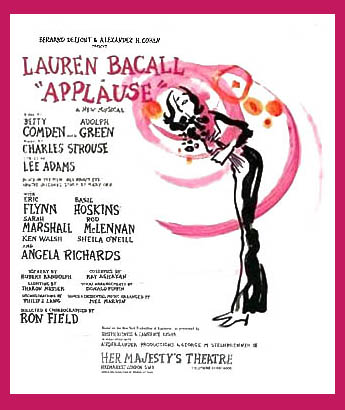 |
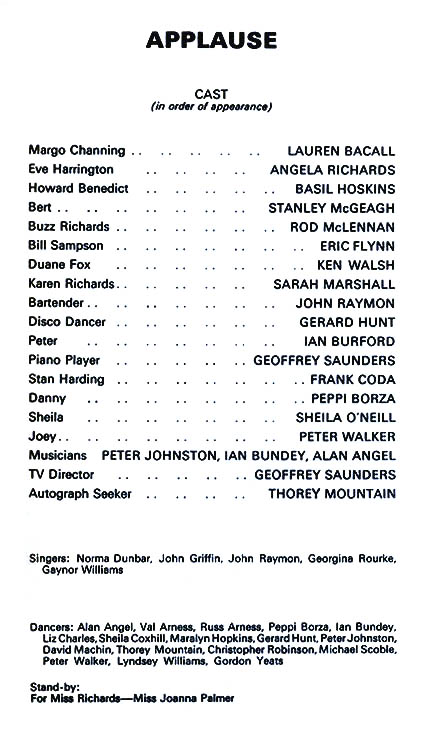 |
LAUREN BACALL QUOTE: "You know how to whistle, don't you, Steve? You just put your lips together and blow."
Working with Bernie over the years, I had taken pains to never have my name in the programmes of our shows, either as general manager, associate producer, or any of the other imaginative titles, bestowed on people having partial responsibility for shows.
My feelings were: I was grateful to Bernie for all the opportunities he had given me, and I didn’t wish to appear to be claiming from him, any part of the credit for putting the shows together. I figured, in any event, people involved in the business knew what I did, and that was all that was necessary.
Bernie asked me to go over and see him in his office at Golden Square. When I arrived, he told me he was very pleased with the work I had been doing since I joined him in the early 60s, and, as a reward, he was going to give me co-presentation billing on every show he presented in the future. I was quite overcome by his generosity, since it was something which I had never even considered lobbying for.
When Billie Marsh got to hear of it, he was absolutely furious. He wrote a letter to Bernie asking, why, over the years, he had never received co-billing on all the summer shows they had done together, (which I suppose was fair enough). Bernie’s response was, that although my co-billing would also be on all the light entertainment shows, it was given to me basically for my work; in running the theatres, the administration of the Talk of the Town, and my contribution to all the shows he had presented in the West End - which was something he, Billy, had never been involved in.
The first show I was to receive co-billing on was ‘The Good Old Bad Old Days. When we started to move ahead with the production, I persuaded Tony and Leslie to use Paddy Stone as choreographer. He subsequently made an enormous contribution to the show with his musical staging. No expense was spared on the scenery and costumes, which were designed by Disley Jones and Tony Mendleson respectively.
We were due to open in Nottingham, but the weight of the scenery was so great, that the grid holding it started to collapse. We had to postpone the opening whilst the grid was strengthened.
Bernie came up for the opening night and remarked to me; ‘I’m afraid we’ve the same problem we had with ‘Roar of the Greaspaint’. Great songs, great staging, but an indifferent book’. I together with Tony and Leslie worked very hard on it, and it had improved by the time we opened at the Prince of Wales theatre on 13th December.
Part of the alterations was re-allocating some of the songs to Tony, so he finished up singing approximately eighty per cent of the score. One of the casualties of this re-allocation was a pretty young actress, called Caroline Villiers. She was singing a song called ‘Yesterday’ which Tony appropriated – the feeling being that he could sing it better.
With hindsight, since Miss Villiers went on to star as Eliza in ‘My Fair Lady’ in Cameron Mackintosh’s production at the Adelphi theatre, I think we made a mistake.
During the run, two chorus boys were heard talking to each other on the side of the stage. One remarked, ‘Darling, thank God they’re not playing ‘God Save the Queen’ at the end, otherwise he’d be singing that too!’
We had a great first night, and a splendid party afterwards at the Playboy Club, which was organized for us by Victor Lowndes, who had an interest in the show via Leslie Bricusse. The notices were 60%cent good and 40% indifferent. The show ran reasonably steadily, but suddenly, after seven months, I got a message saying that Tony was ill; the understudy, Harry Dickman, went on.
After a few days, I bumped into somebody who said, ‘I see Tony’s not appearing at the moment’. ‘No’, I said, ‘he’s ill’. The friend replied; ‘Well, he looked pretty well to me when I saw him and his family loading his car up with buckets and spades, ready to go off on holiday’. I found out where Tony was, and sent him a message – If you’re not back in two days, the notice is going up. He returned. We ran a total of ten months. It’s the only show in my entire life that I ever personally invested in. I put in £2,000 and lost the lot.
In September, Danny La Rue was rehearsing the Coventry Birthday show for us, which was due to open at the end of October, in the bar of the Prince of Wales theatre. I received a phone call, to say the house which Danny had bought a year before in Henley, on which he had spent a whole year refurbishing, was on fire. I rushed down to the bar, and said, ‘Danny, I’m awfully sorry to have to give you this bad news, but your house is on fire’. He kept his composure, but dashed off to see what the damage was. Most of his antiques had been lost in the blaze, but the building was saved, and eventually, was habitable.
Danny was back at rehearsals next day, as indomitable as ever. I attended the house warming, (if you’ll pardon the expression), party approximately a year later, with my girl friend Patricia. Danny as always, wouldn’t let me go, but insisted I stay long after everybody else had left; this was one of the penalties for having his undivided loyalty.
Apart from Jack Hanson and his dresser, I was the only one who was ever allowed into his dressing room, when he was making up. Danny told me he always wanted people to see him either as a man, or as the character, but never during the period of transition.
Eventually Louis Benjamin made him an offer he couldn’t refuse - to play in Aladdin, at the London Palladium in 1979. Danny said to Louis; ‘OK but I’m only on loan. When this show finishes, I’m back with Richard’. But it never happened. We drifted apart - he went his way, and we went ours. He did work at the Prince of Wales again, playing ‘Hello Dolly’ for Triumph Apollo, in 1982. He was great, but it was only for a short season, because I was due to present ‘Little Me’ in the theatre, in March of that year.
Jack Hanson, Danny’s pillar of strength, manager, and long term companion for many years, died tragically in 1979, at the early age of sixty four. Danny has soldiered on over the years, but I know he has always asked himself, whenever something has bothered him – what would Jack have said?
The Royal Variety show this year starred among others: Danny La Rue, Carol Channing, The Jackson Five, Liberace and Elton John. During rehearsals, I noticed that Bernie had been a little short with Elton, in his desire to accommodate with reasonable rehearsal time, all the stars as quickly as possible. Elton went public in the papers, saying that Bernie had been rude to him at rehearsals, and he would like to punch him on the nose.
When Bernie read this, he immediately sent a telegram to Elton, saying, ‘Certainly you can punch me on the nose - if you make a contribution to the fund’. By return, he received a cheque for £1,500 - but no punch on the nose.
During rehearsals, one of the performers slapped Danny La Rue on the bottom, and said, ‘Wotcha mate’. It turned out it wasn’t Danny - it was Carol Channing who turned round to confront the offender. ‘I’m awfully sorry’, the performer stuttered, ‘I thought you were Danny La Rue’. ‘That’s quite alright’, Carol replied. ‘It’s one of the greatest compliments I’ve ever been given’.
|
|
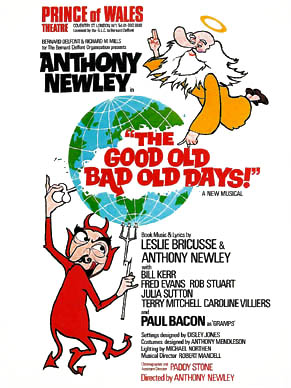 |
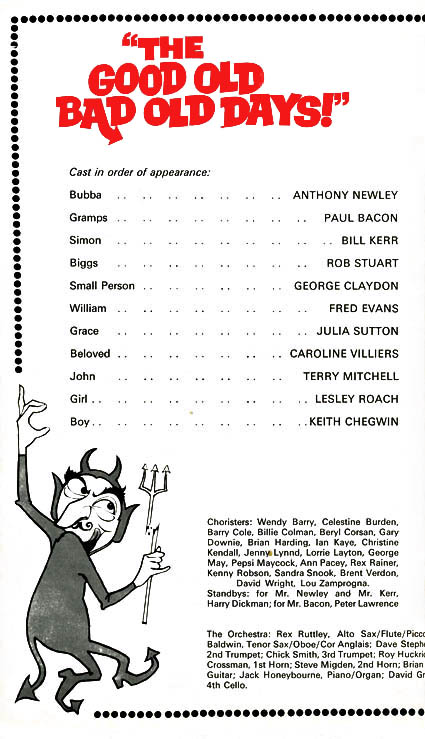 |
| ANTHONY NEWLEY QUOTE when asked if he'd watched Joan Collins on a recent television show: "No’, he said. ‘I spent too many years of my life watching her at home." |
|
|














































